Out and about at Surfside
Mr Walsh (Principal) & Mrs Patterson (Assistant Principal)

Out and about at Surfside
Mr Walsh (Principal) & Mrs Patterson (Assistant Principal)
Next week marks the half way mark of term 2 and the last week of Autumn. We have definitely seen colder mornings but have been lucky with days bathed in sunshine (very lucky for our campers to allow for a more positive experience completing outdoor activities). A big thank you to our year 6 team for their organisation and support of our camp crew and especially giving time away from their families.
A big thank you to our school community for supporting our Book Fair this week. It has been great to see so many students, parents and carers browsing the shelves and taking home so many reading and writing delights. A big thank you to Rachel, our Education Support staff and parent and carer helpers for organising and coordinating our event.
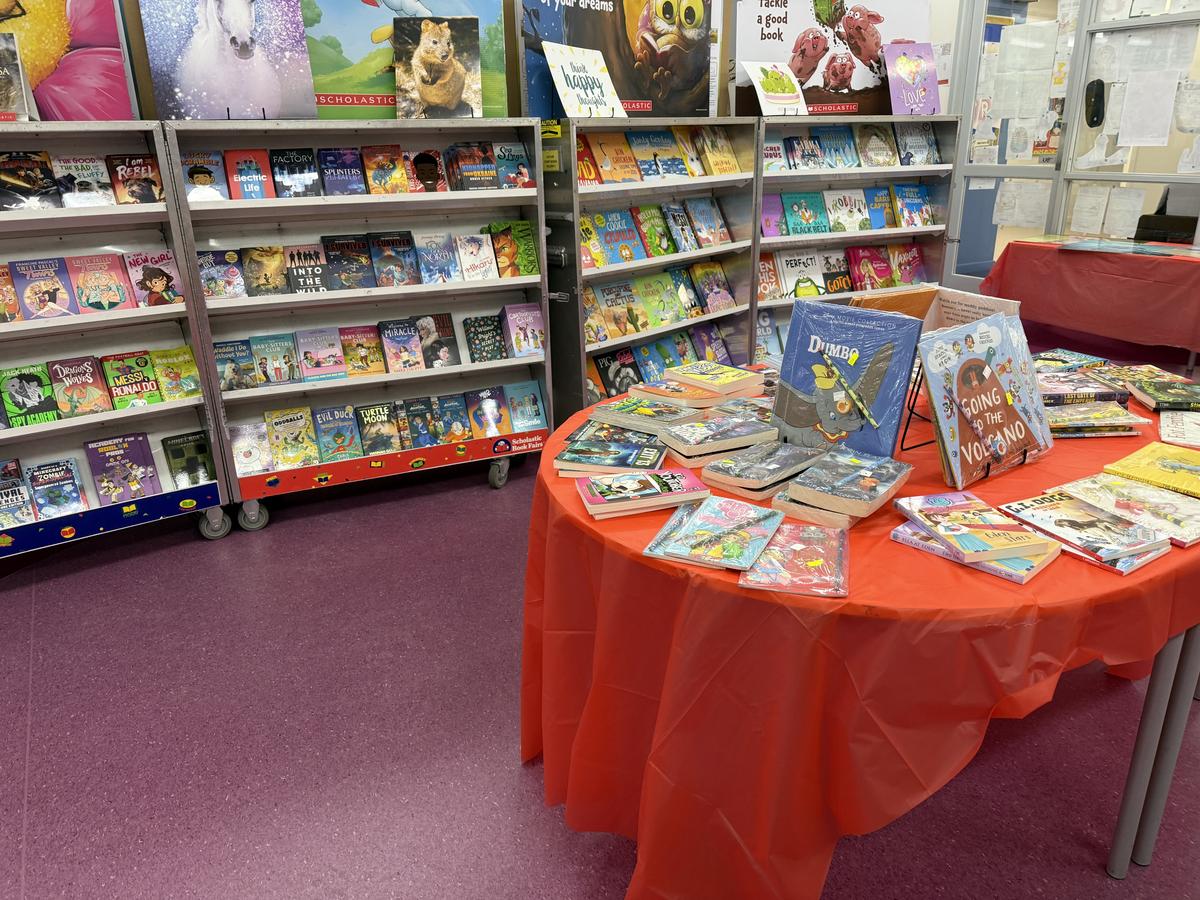
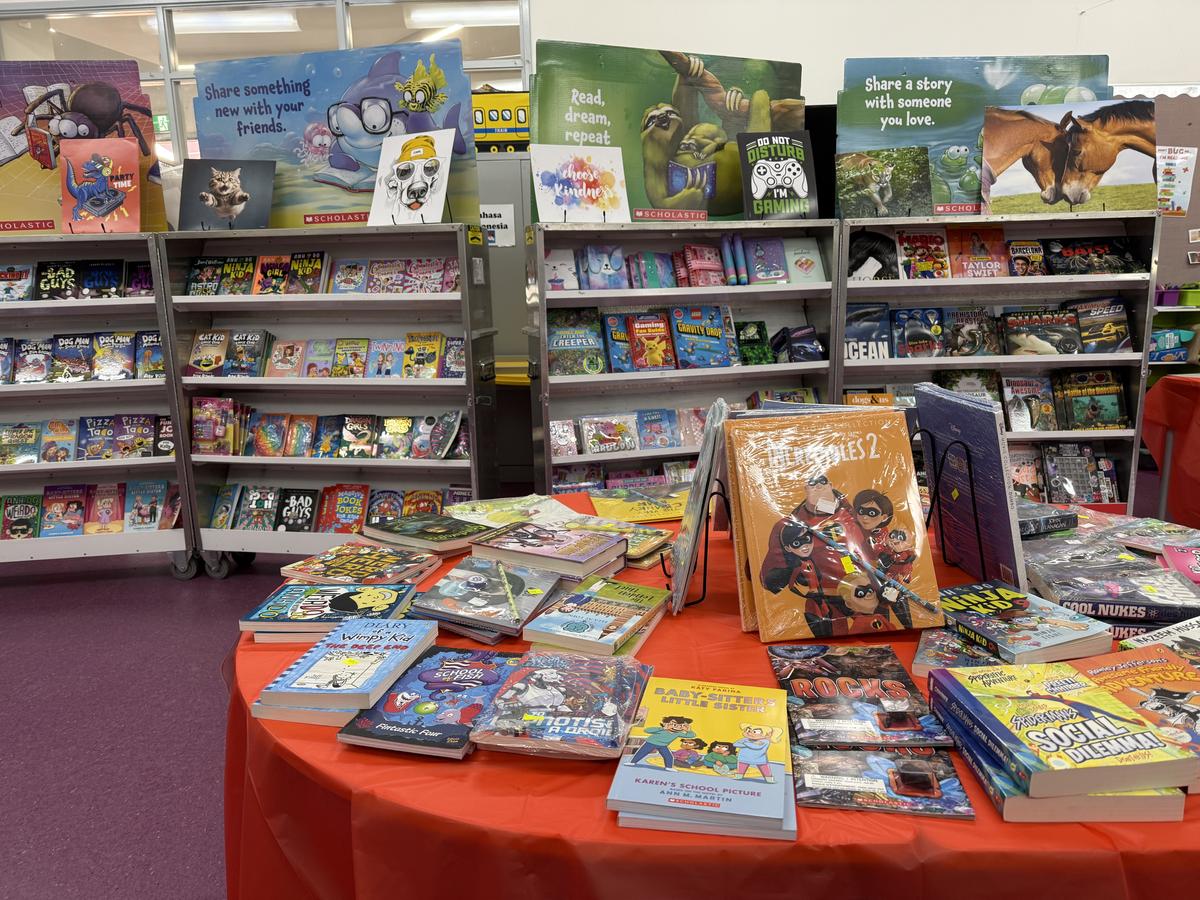


This week has been a very proud one for Surfside PS with the State Government and Department of Education's position statement outlining Victoria's approach to teaching mathematics and prioritising evidence-based practices aligned with how students learn. Surfside PS is grateful to have a dedicated and pasionate leadership and teaching and learning team who have been at the front of this change and Surfside has been undertaking and refining this form of evidence-based practice in both literacy and mathematics for the past 5 years. This practice is utilised in every class each and every day and has resulted in improved student outcomes over the last 3 years. A special thank you must go to Lynda Patterson, Trina Charleston and Adrian Chapman who have led and supported staff on this journey and it is rewarding to now be backed by the Department of Education. The leadership team and teaching staff will showcase this practice for 40+ school Principal's and Department leaders next week as part of Barwon South West Communities of Practice and will be presenting in the coming weeks to 90+ school Principal's and leaders at the Annual Victorian State Principal's Conference. The focus of our presentations will specifically be Retrieval Practice and Daily Review.
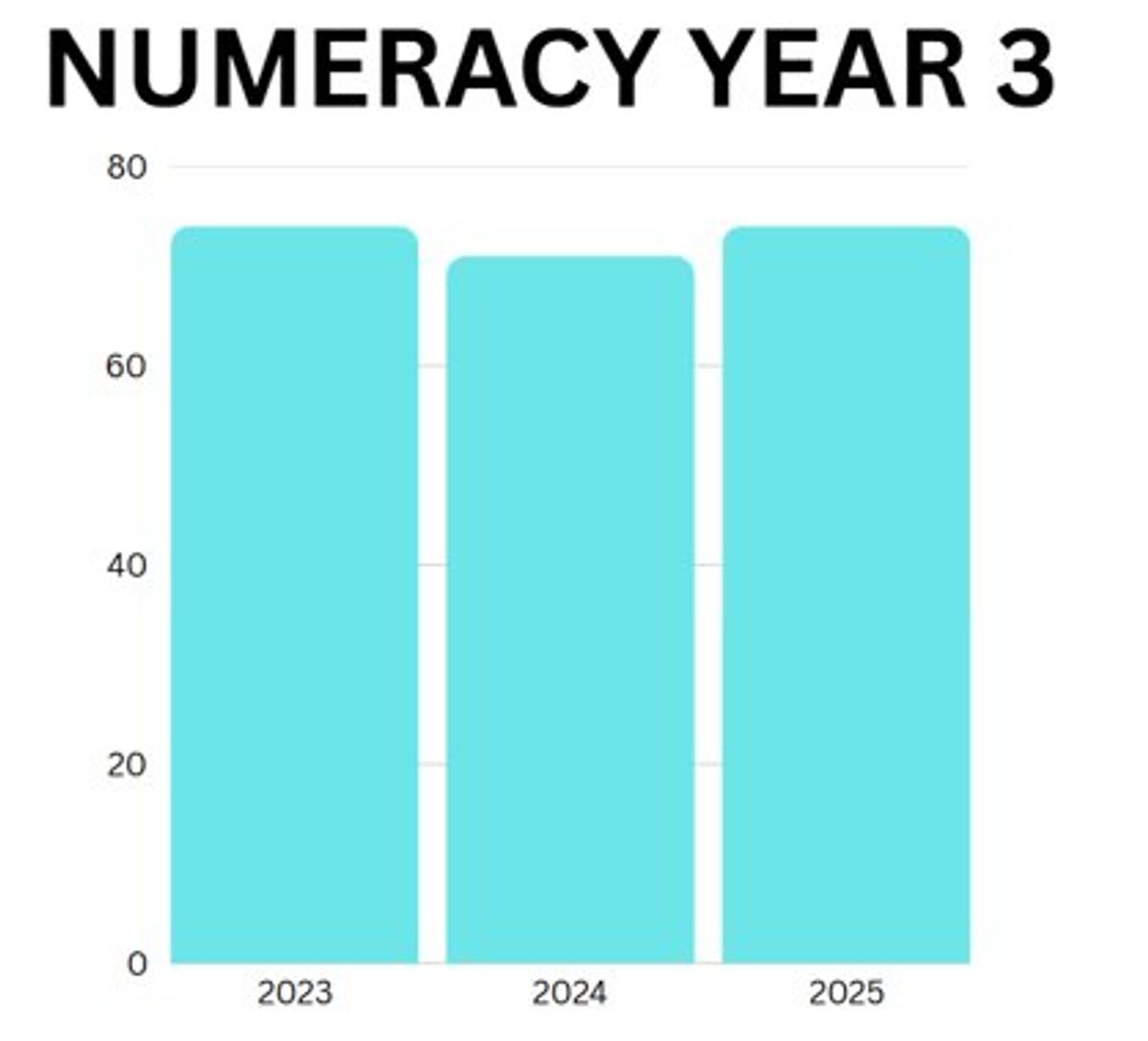
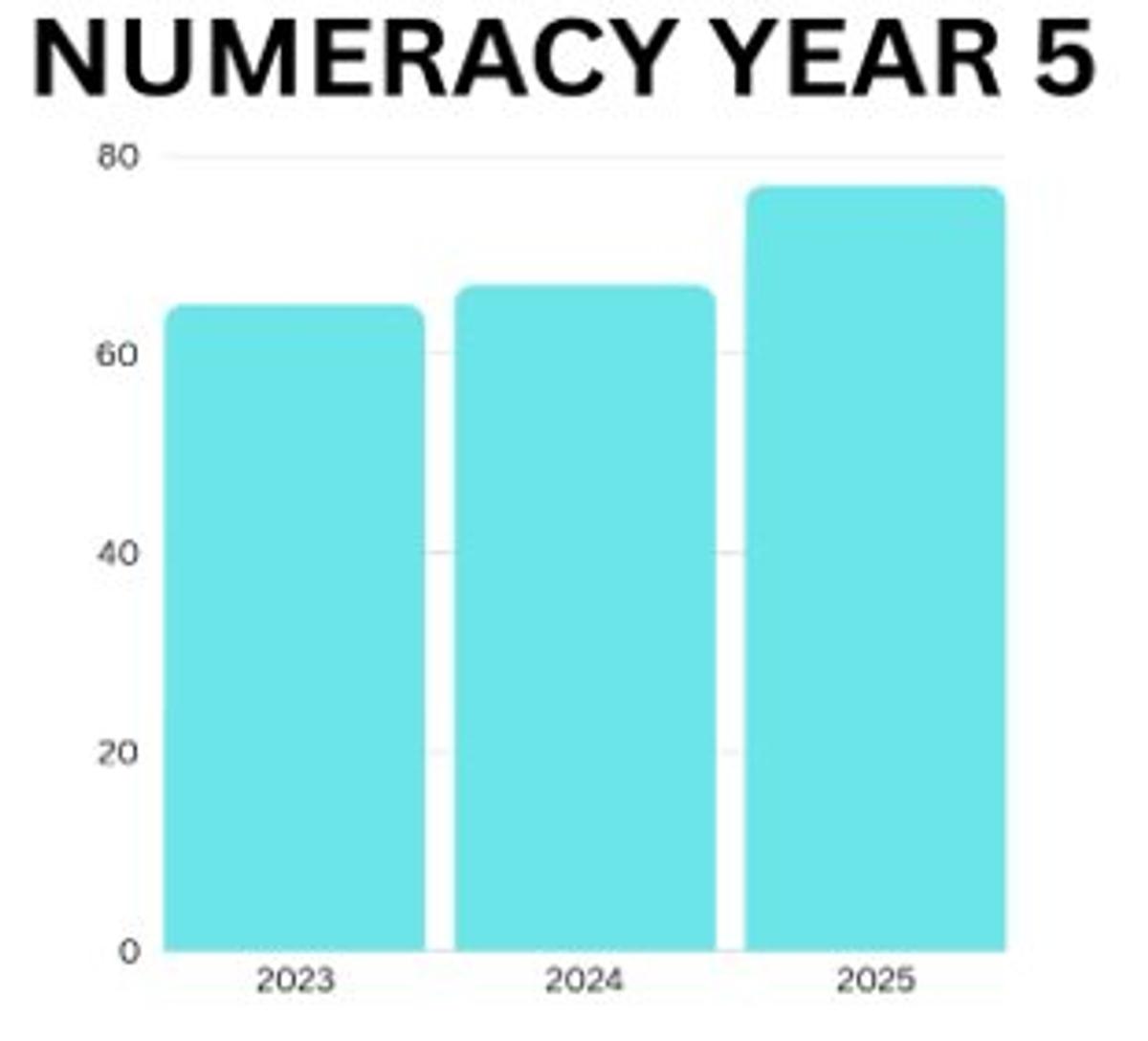


% of students in the strong and exceeding range - we are very proud of the growth for our year 5 students over the past 3 years.
This position statement outlines Victoria’s approach to teaching mathematics and prioritises evidence-based practices aligned with how students learn.
Numeracy is a fundamental life skill. The development and application of mathematical knowledge and skills builds students’ conceptual and imaginative worlds, supports problem solving attributes and skills and provides capabilities that contribute to full, participatory citizenship and career pathways.
Many Victorian students are developing strong mathematical knowledge and skills. However, not all students in Victoria – and across all Australian states and territories – are developing them to the level that will enable these aspirations to be fully realised. This is particularly the case for students who can face additional challenges, including students with disabilities or diverse learning needs. We also know that the gap between the attainment level of First Nations students, disadvantaged students, and students in rural and regional Victoria, compared with relatively more advantaged students, is unacceptable.
Consistent with The Education State – Excellence in Every Classroom, one of the key priorities for the Department of Education in 2025 and beyond will be to lift the numeracy attainment levels of every student.
We will achieve this through the following strategies:
To deliver strong mathematics outcomes for all students, Victorian government schools will identify and embed evidence-based practices aligned with the Victorian Teaching and Learning Model 2.0 (VTLM 2.0). This includes prioritising explicit, sequential, and systematic approaches to teaching mathematics.
A mathematics teaching and learning program is a core component of a collaboratively developed whole school teaching and learning program. This includes a school-wide approach to fostering a supportive and enabling learning environment and planning for targeted supports for those students who will benefit from further extension or learning support, through the collection of valid data.
Within the teaching and learning program, learning objectives are made clear, and essential prior knowledge identified and activated. New knowledge and skills are explained in concise, small steps and modelled with a focus on developing an understanding of how and why mathematics works. Mathematical ideas are represented and explained to promote student understanding and ability to reason, make connections and think flexibly.
Evidence from cognitive science research suggests that mastering key mathematic facts so they can be recalled automatically and accurately frees up working memory. Students can then focus on more complex problem solving, rather than reaching cognitive overload trying to calculate simple operations. Students should be provided with frequent opportunities to practise, review and consolidate key facts as a foundation for applying their learning and more complex mathematical thinking such as problem solving.
The VTLM 2.0 provides a framework to develop and connect the mathematical proficiencies – understanding, fluency, problem solving and reasoning. Developing and integrating mathematical proficiency includes opportunities to simultaneously develop understanding of key concepts in mathematics as well as the skill to carry out procedures confidently, both are related and support each other. Students should practise and apply their learning in varied contexts to maximise the consolidation of knowledge and fluency. This should include revisiting and reviewing learning and spacing practice. It should also include extending and challenging thinking to ensure students move from novice learners to mastery.
Students need to be given time to learn, and how much time they are given influences the knowledge and skills that can be addressed. Where it is not already the case, primary schools should allocate about 60 minutes per day to mathematics, while about 200 minutes a week should be allocated to mathematics in Years 7 to 10.
Victorian Lesson Plans (VLPs) provide quality mathematics teaching and learning programs aligned to the Victorian Curriculum: Mathematics 2.0 and the VTLM 2.0.
The lesson plans can be used as the basis for a school’s mathematics teaching and learning program, adapted or used to supplement a school’s current program. The lesson plans can also benefit teachers by helping to build confidence in teaching mathematics, by enhancing knowledge about key mathematical ideas and supporting the implementation of evidence-based practices as part of the VTLM 2.0.
The use of common, high-quality curriculum resources can support excellent planning, teaching and learning in every classroom. They also remove the need for duplicative work by teachers, giving teachers more time to evaluate and respond to individual student learning needs. Common lesson plans support consistent and precise use of mathematical language by teachers and students, which benefits students when they are working and thinking mathematically.
Key ideas in mathematics are interrelated, interdependent and become more complex over the years of schooling. This means that knowledge acquired in the earlier years of schooling impacts future performance and dispositions towards mathematics.
By implementing multi-tiered systems of support (MTSS), schools can ensure that all students receive high quality teaching. This includes screening, which supports early identification of learning difficulties and gaps in mathematics learning. Support for students who require more intensive instruction or tailored interventions can then be provided effectively.
As students develop mathematical skills, confidence remains critical. Strong early foundations need constant reinforcement to build self-efficacy with mathematics. An enduring myth is that some people are good at mathematics, and some are not. Such myths can contribute to the development of mathematics anxiety and are best addressed through ensuring all students experience the greatest success in mathematics learning. Everyone has the capability to learn and achieve well in mathematics.
Parents and carers, as well as teachers, have a key role to play in supporting children and students to develop confidence in their capacity to learn and use mathematics. This is particularly important for girls and students with disabilities, who are more likely to report they feel anxious about maths. Parents and carers also play a key role in developing early numeracy at home through activities like measuring and weighing when cooking, planning a journey together or scoring a sports match. Parents and carers will be supported through the provision of new advice and resources to help strengthen their child’s numeracy skills.
Victoria has many excellent teachers of mathematics, however, some primary school generalist teachers report a lack of confidence and/or capability teaching mathematics, and there are a large proportion of Years 7–10 mathematics teachers teaching out-of-field.
Strong system support, additional resources and targeted professional learning will provide teachers and leaders with opportunities to enhance their professional capabilities and confidence to improve mathematics outcomes for all students.
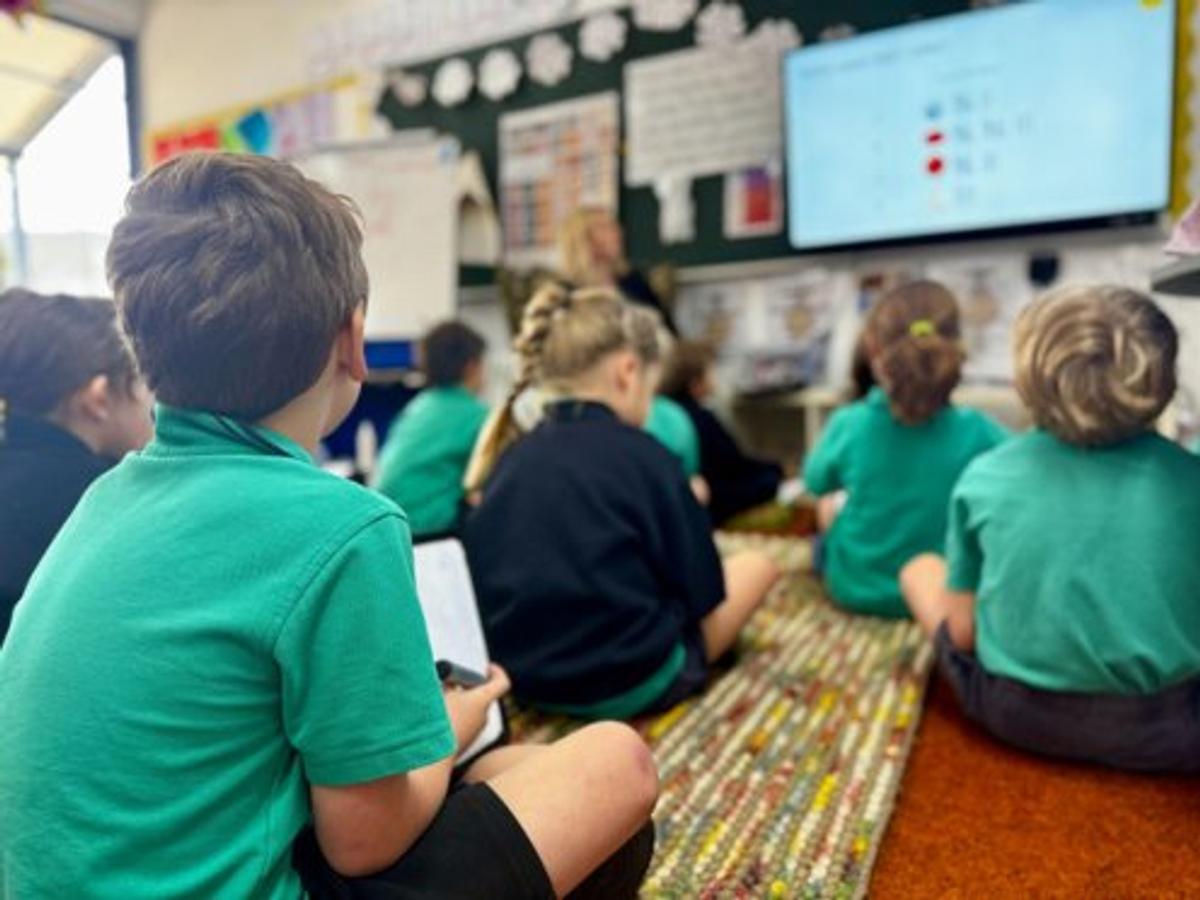
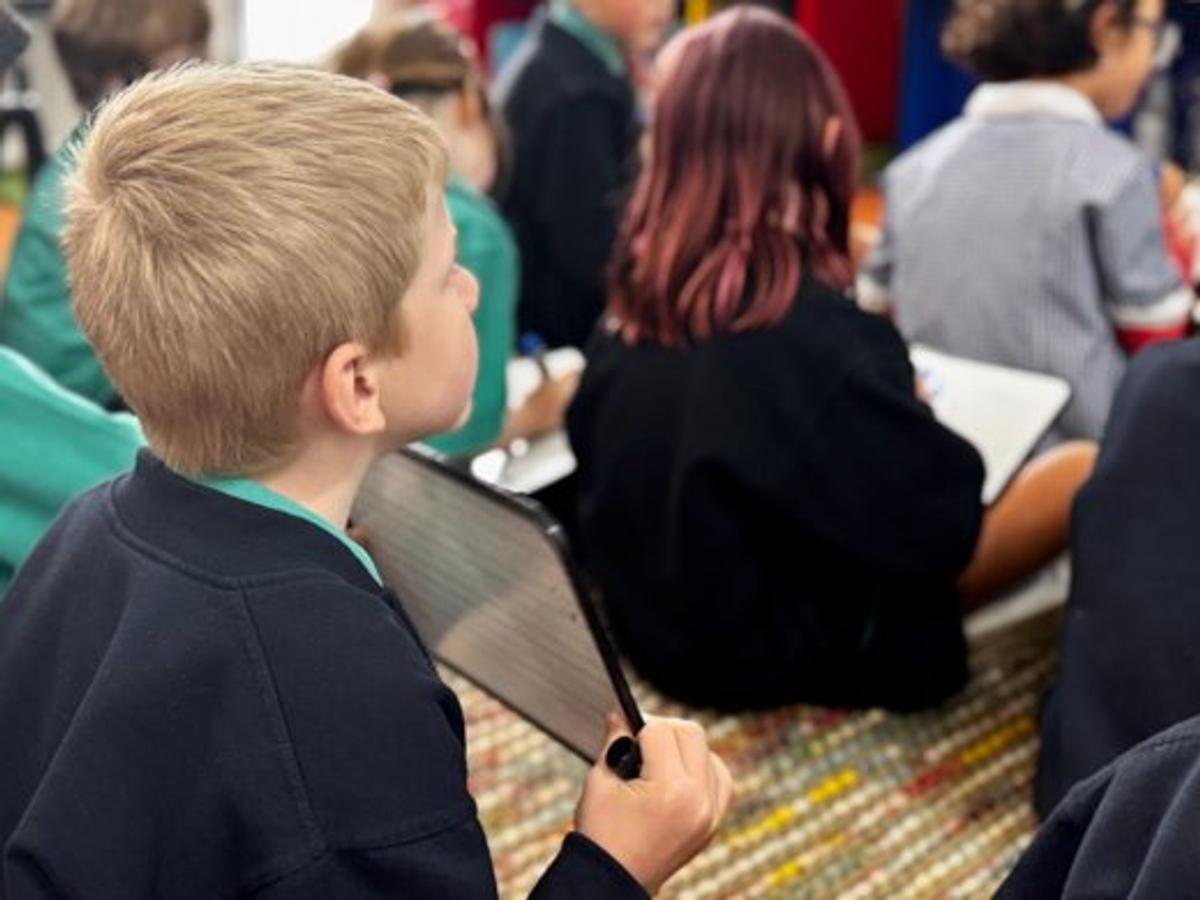
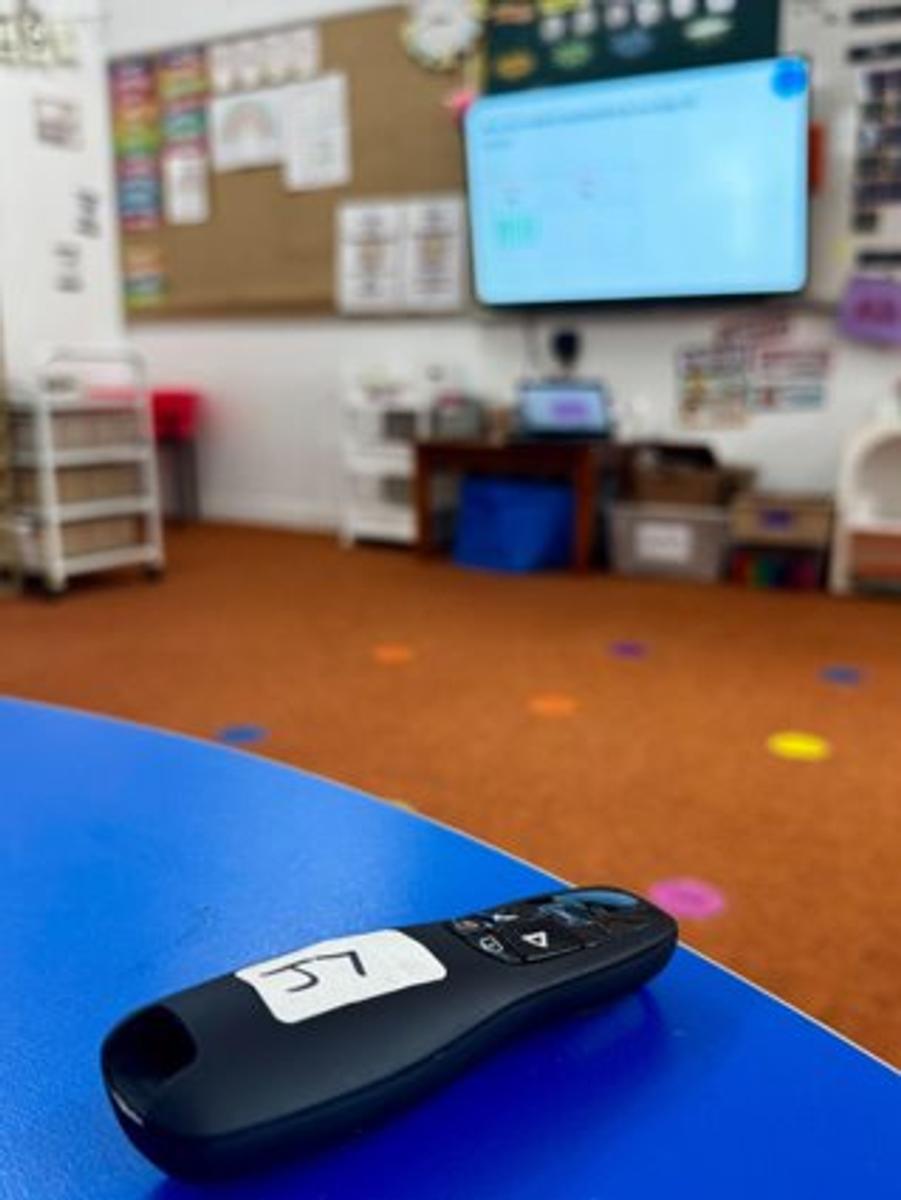
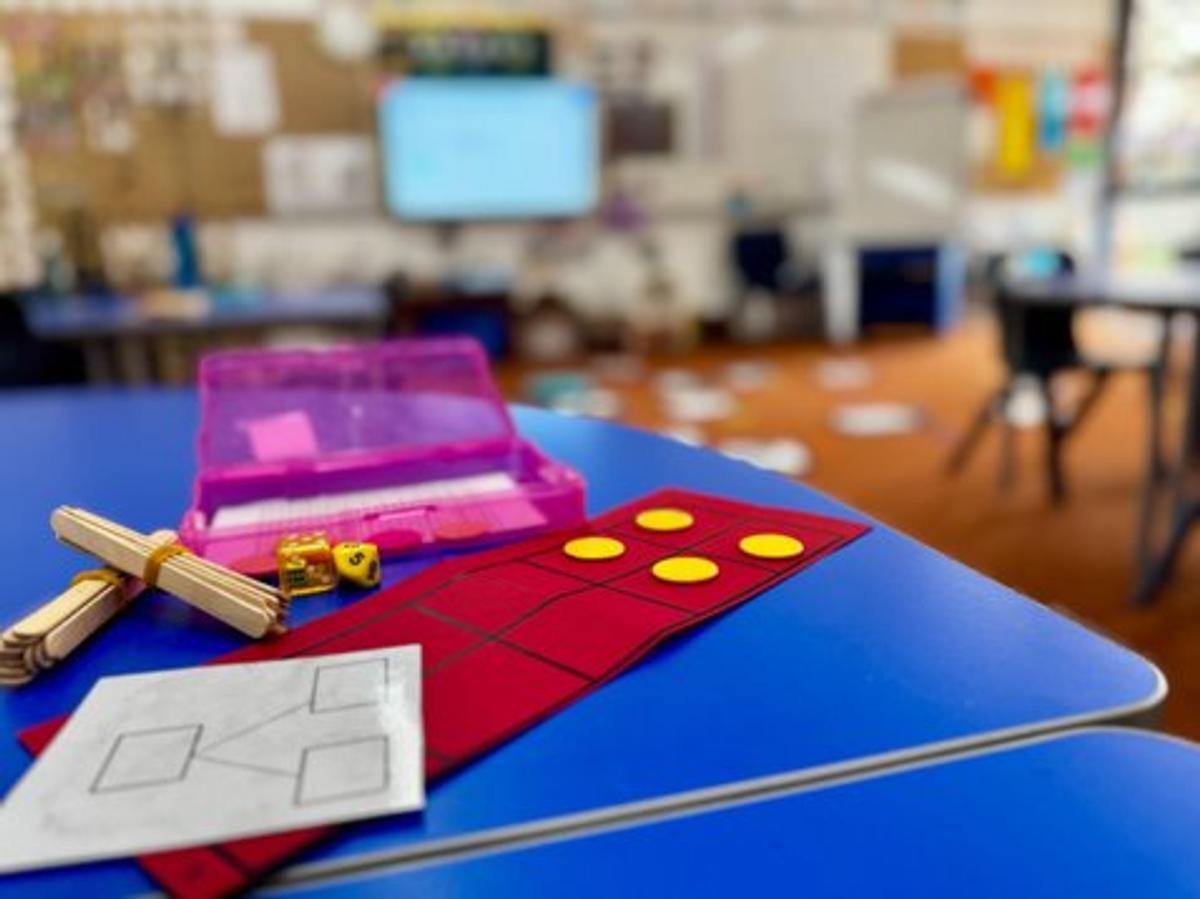
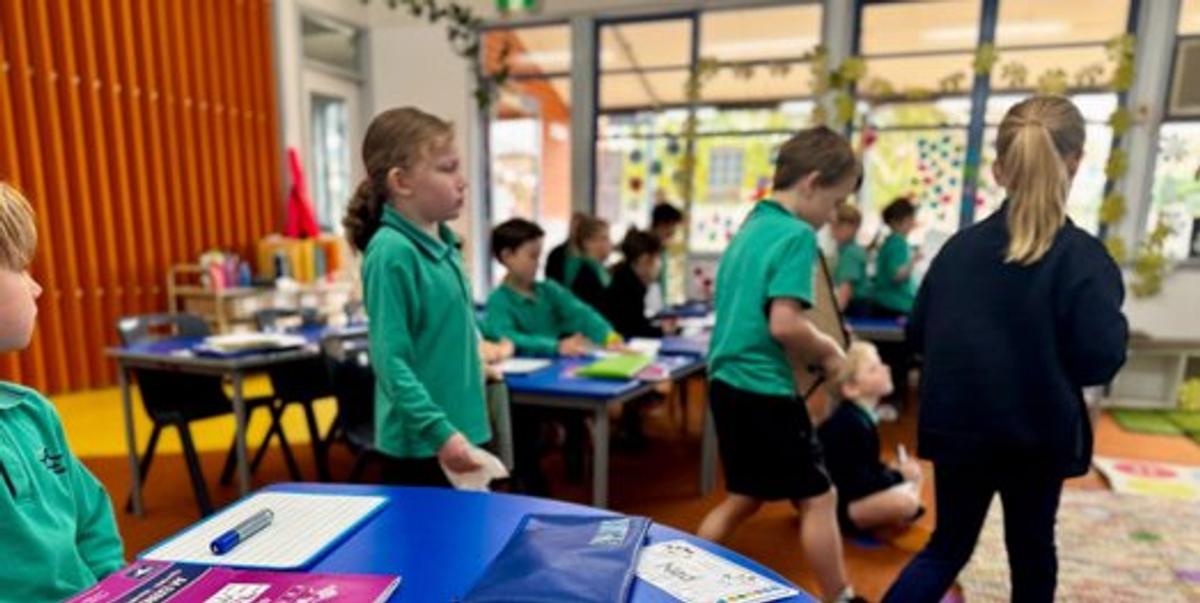
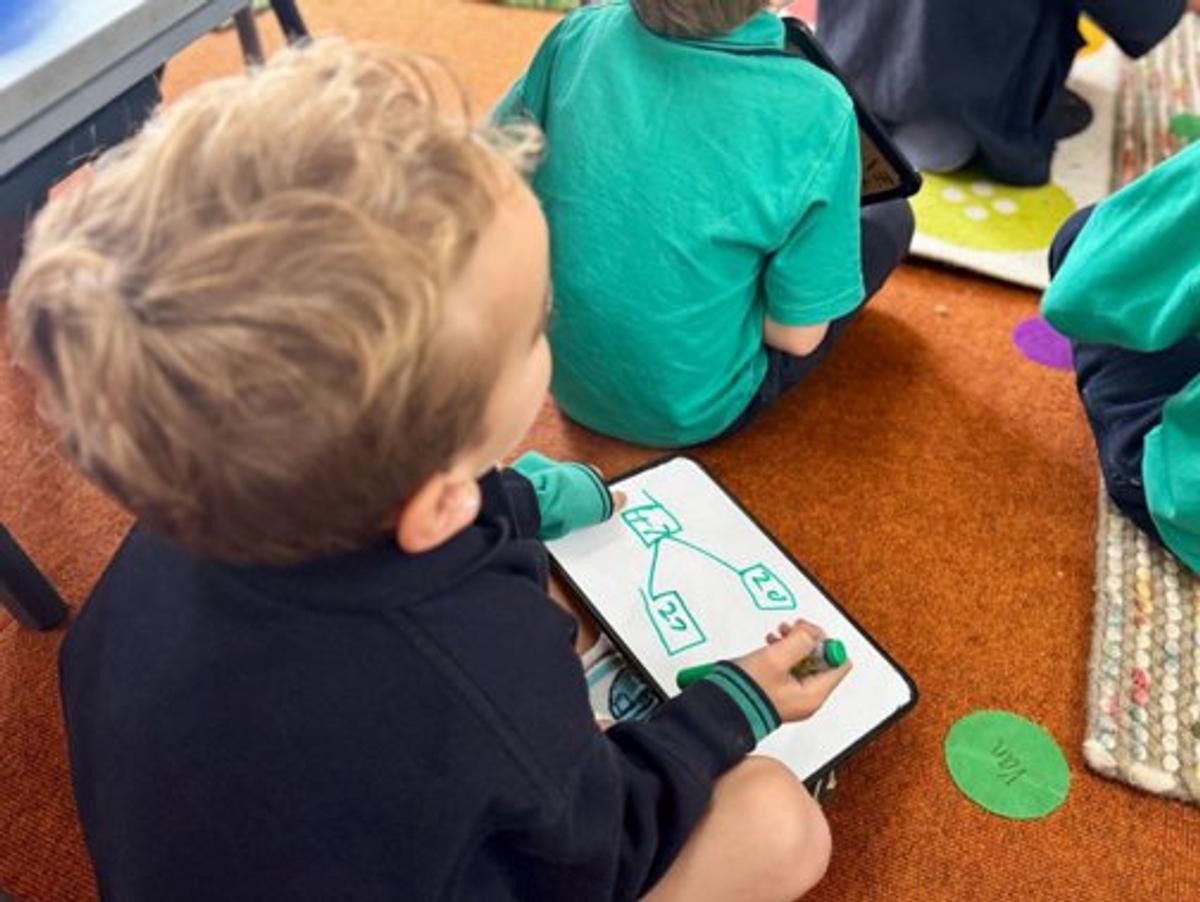
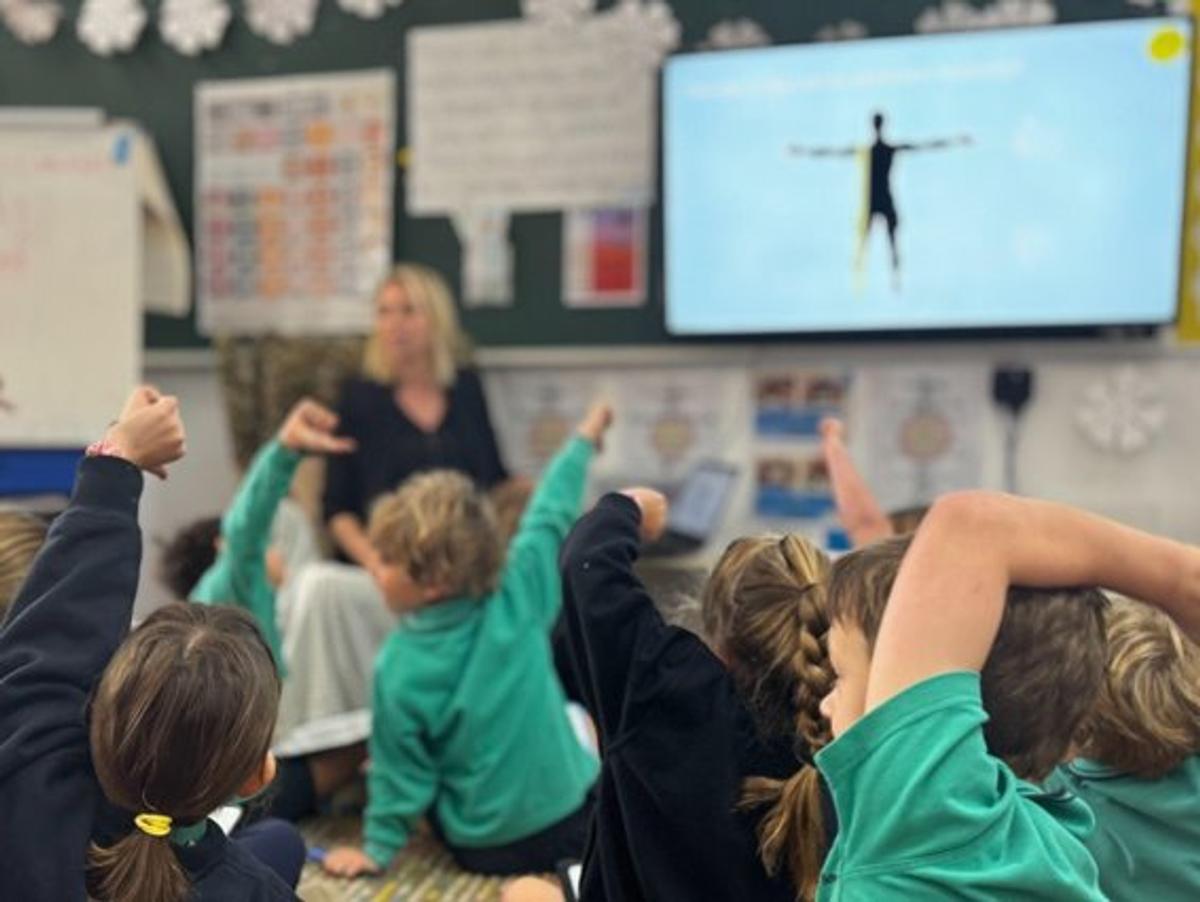







A sample session of our daily review and retrieval practice coordinated by Ms Taylor
There is plenty going on in and out of classrooms over the next couple of weeks so please utilise our Dates for your Diary page and please note the upcoming Curriculum Day (Friday 6th June) and Kings Birthday Public Holiday (Monday 9th June) where students will not be at school for these days.
Tue 27th - Year 1 Science Incursion
Wed 28th - Emergency Management Drill
Year 5 Soverign Hill Excursion
Thu 29th - Breakfast Club in the kitchen - 7.45am-8.30am
SSV Winter Lightning Prem - Year 6 & selected year 5's
Fri 30th - Assembly @ 2.30pm in the courtyard
Mon 2nd - Project 25 (Bellarine SC) - selected year 4 & 5 students
Thu 5th - Breakfast Club in the kitchen - 7.45am-8.30am
Year 3 Day Camp - Coastal Forest Lodge - Anglesea
Fri 6th - Curriculum Day - No students at school
Mon 9th - King's Birthday Public Holiday - No students at school
We are proud to share that a number of our Surfside students have recently participated in two exciting national mathematics challenges: the Australian Maths Trust’s Kangourou sans Frontières (KSF) competition and the Bebras Computational Thinking Challenge. These opportunities not only celebrate mathematical thinking but also allow students to stretch their problem-solving skills in new and challenging ways.
The KSF competition is part of an international event that promotes logical reasoning and creative problem-solving through a series of engaging, multiple-choice questions. It’s a fantastic way for students to apply their mathematical knowledge in unfamiliar contexts.
The Bebras Challenge, on the other hand, focuses on computational thinking — an essential skill in the digital age. It encourages students to think logically, recognise patterns, and solve complex problems using technology-based reasoning.
At Surfside, we believe in the importance of extending all learners — particularly in mathematics. Competitions like KSF and Bebras provide rich opportunities for students to move beyond routine tasks and into the exciting world of higher-order thinking. These challenges build confidence, resilience, and a love of learning.
A huge congratulations to all the students who participated in these competitions. Your dedication, persistence, and courage to challenge yourselves is truly commendable. You should be very proud of your efforts!
As always, families play a vital role in supporting learning at home. One simple and effective way to build strong maths foundations is by regularly practising fact fluency and number sense. Quick recall of number facts helps students feel more confident when tackling complex problems. Two excellent platforms we use at Surfside are Times Tables Rock Stars for multiplication practice, and Numbots, which helps younger learners develop strong early number skills. Just a few minutes a day on these programs can make a big difference!
Thank you for your continued support in helping all our students grow as curious, confident, and capable mathematicians.
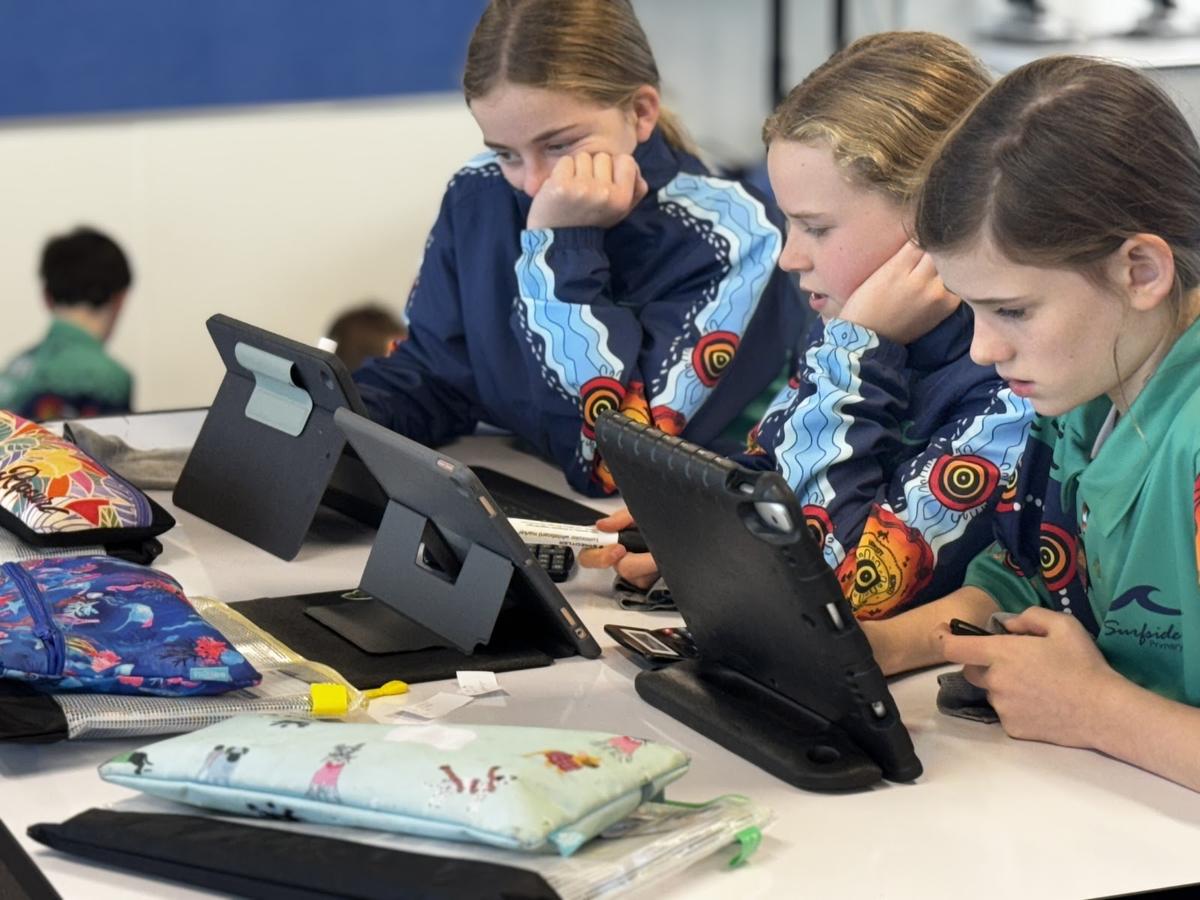
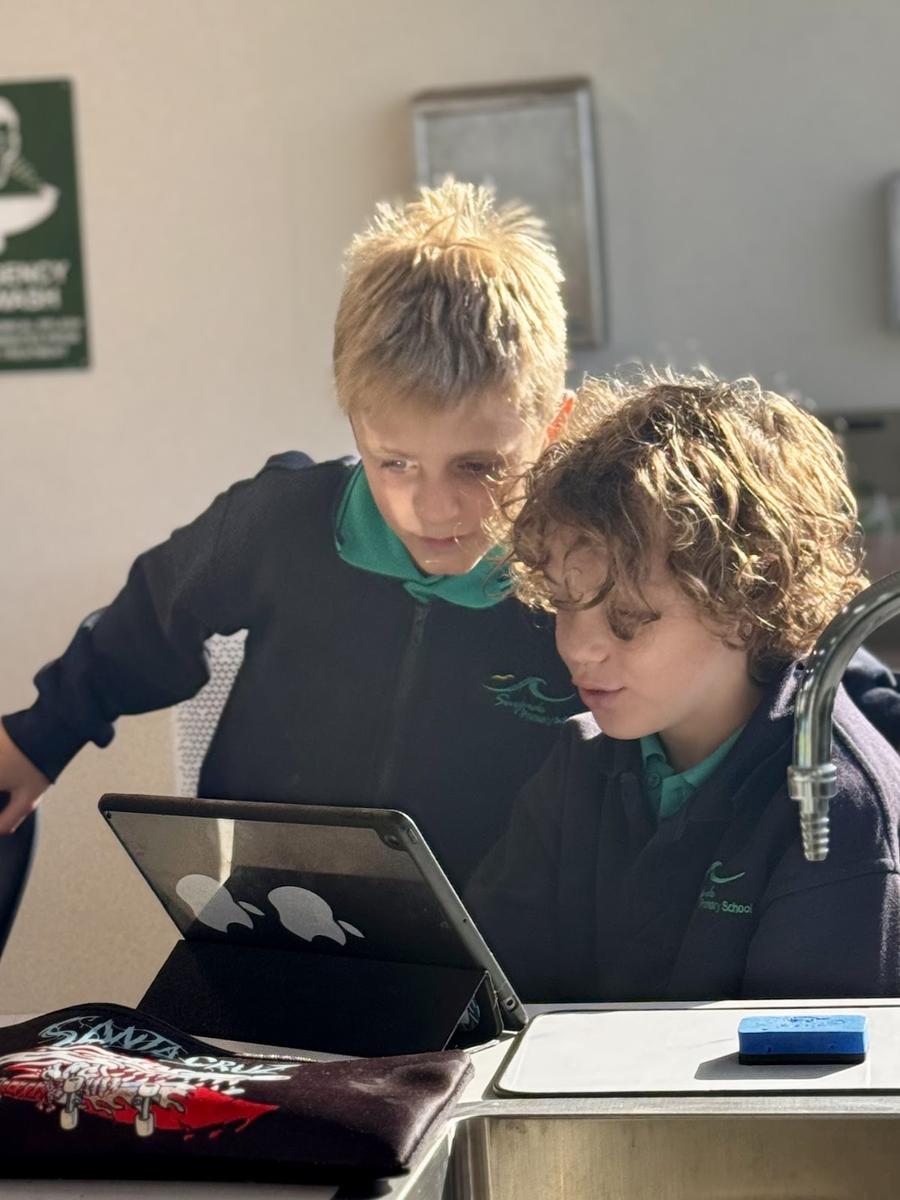
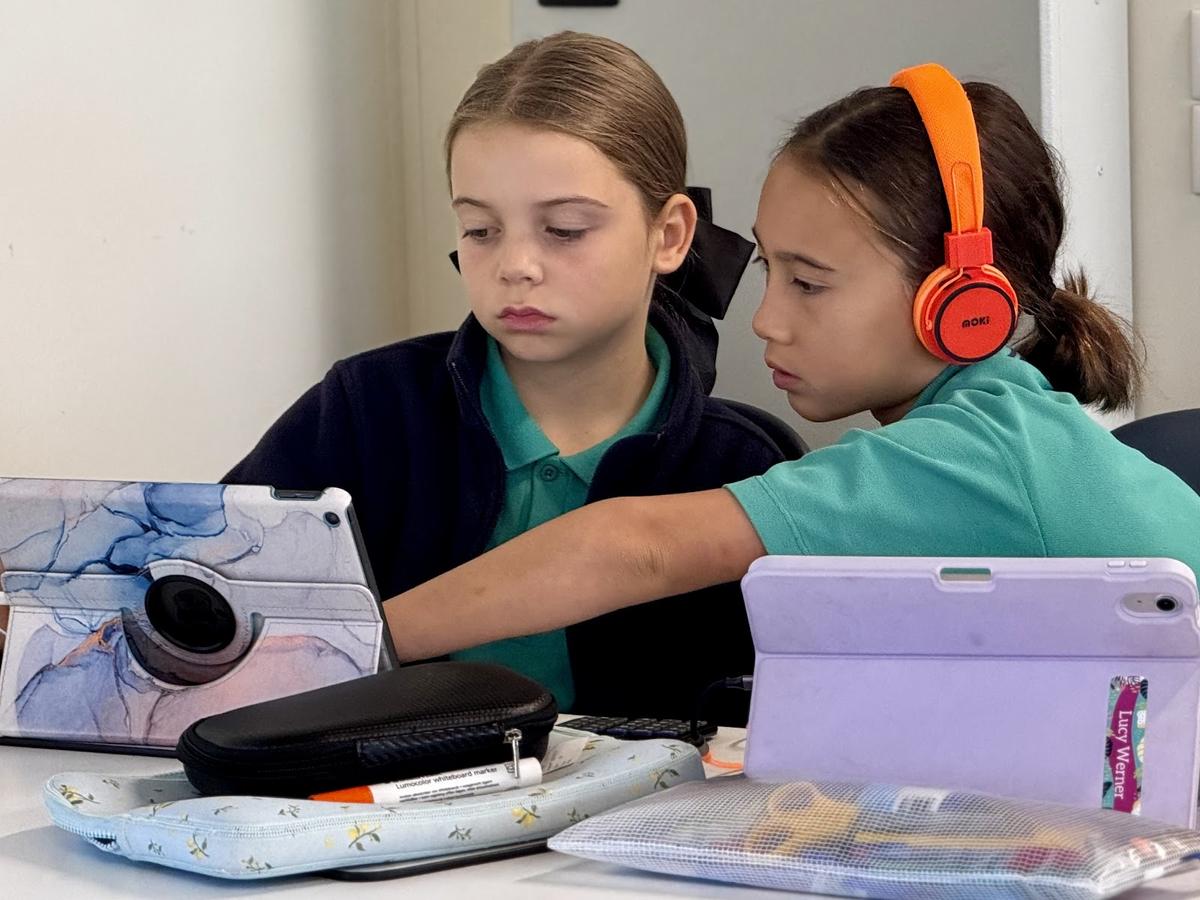
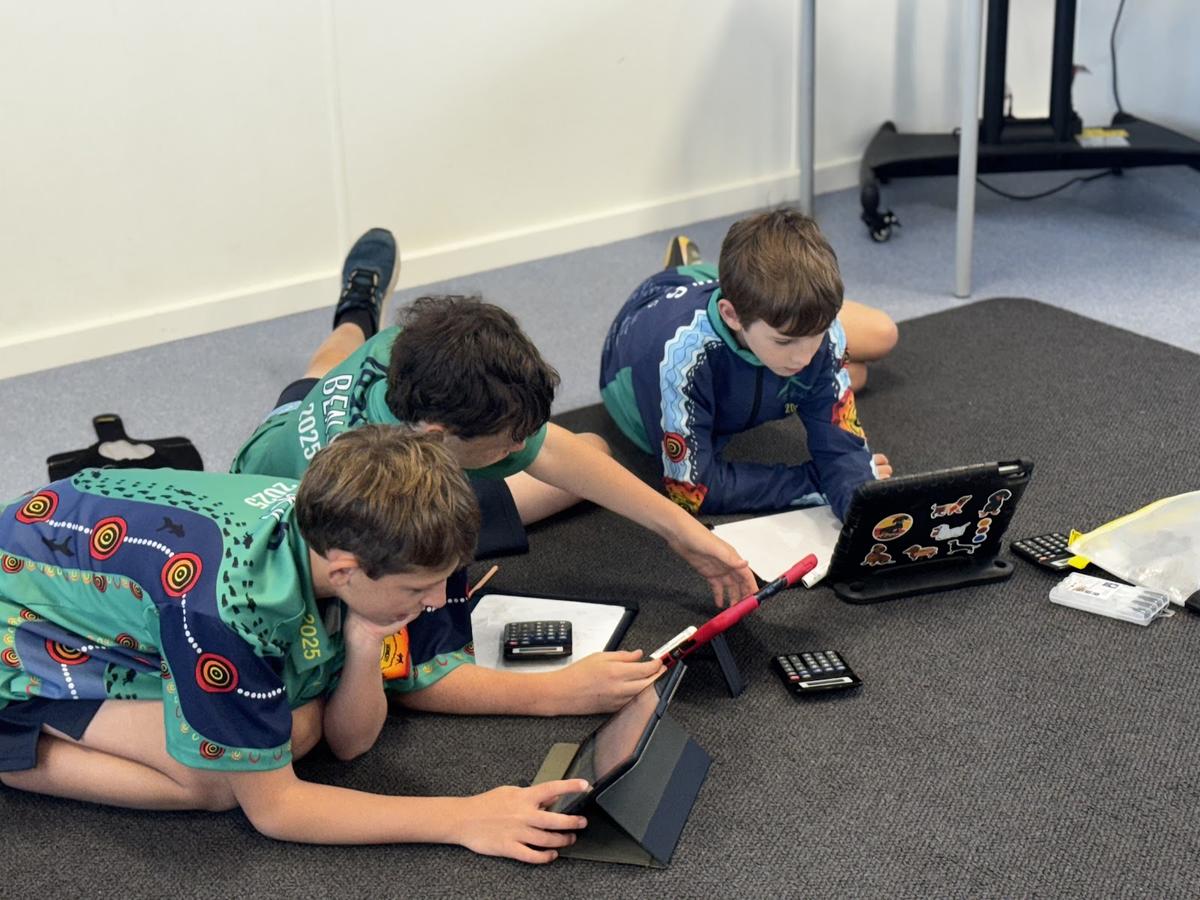
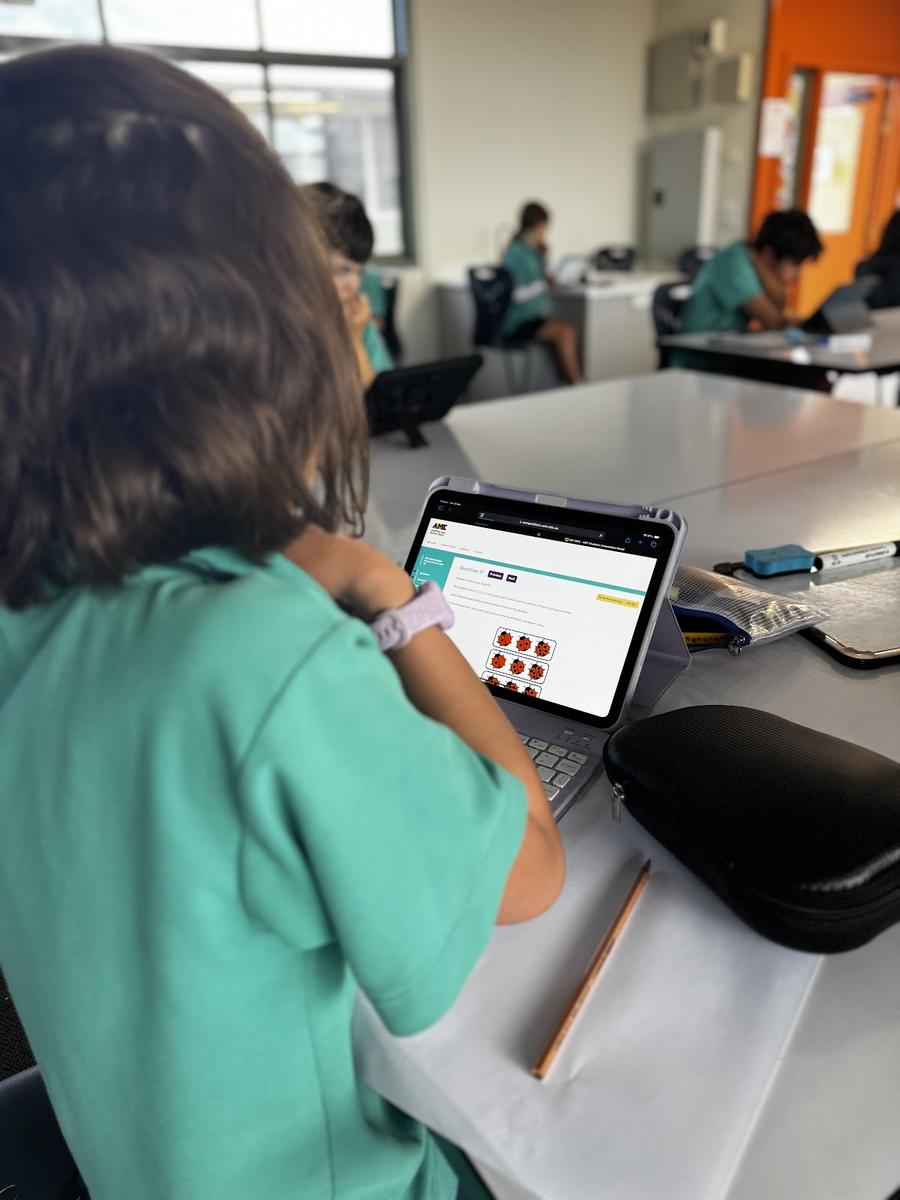
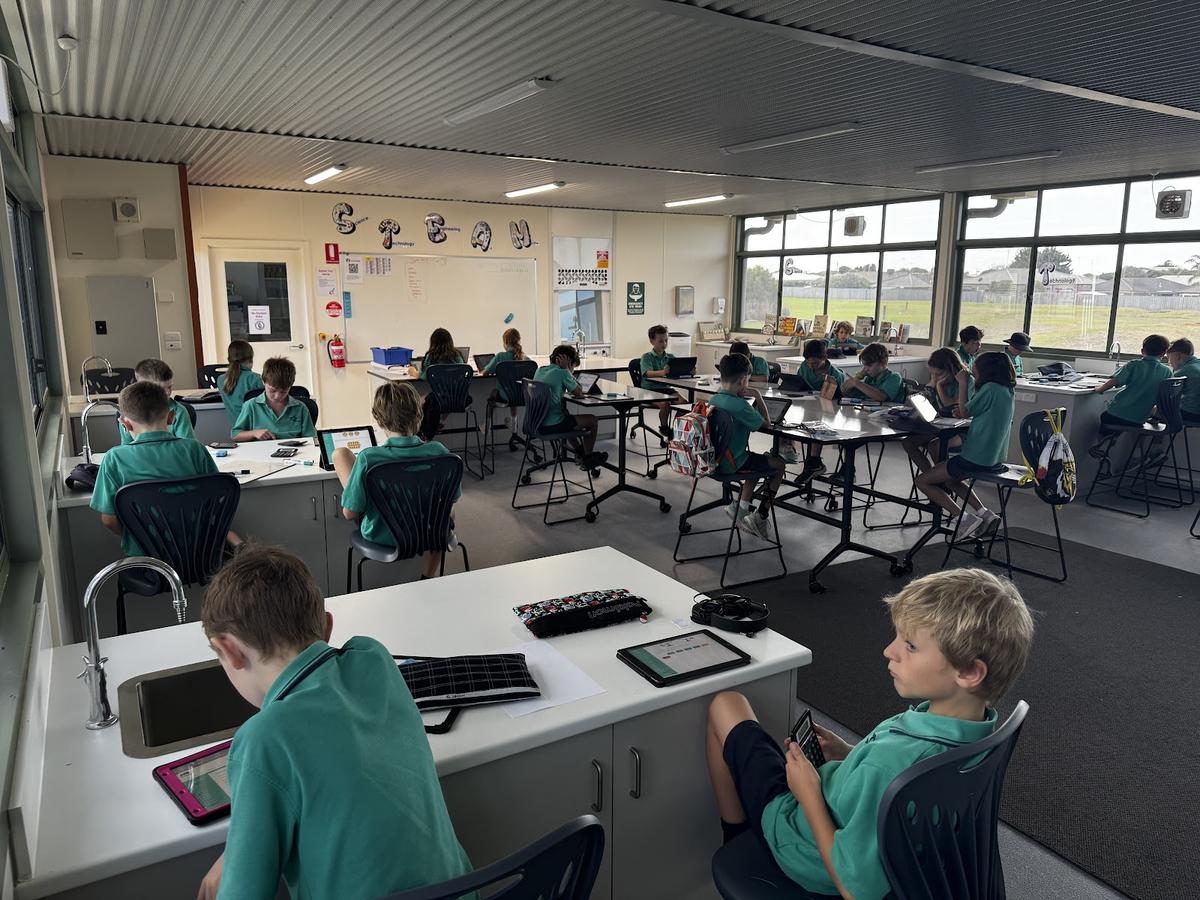
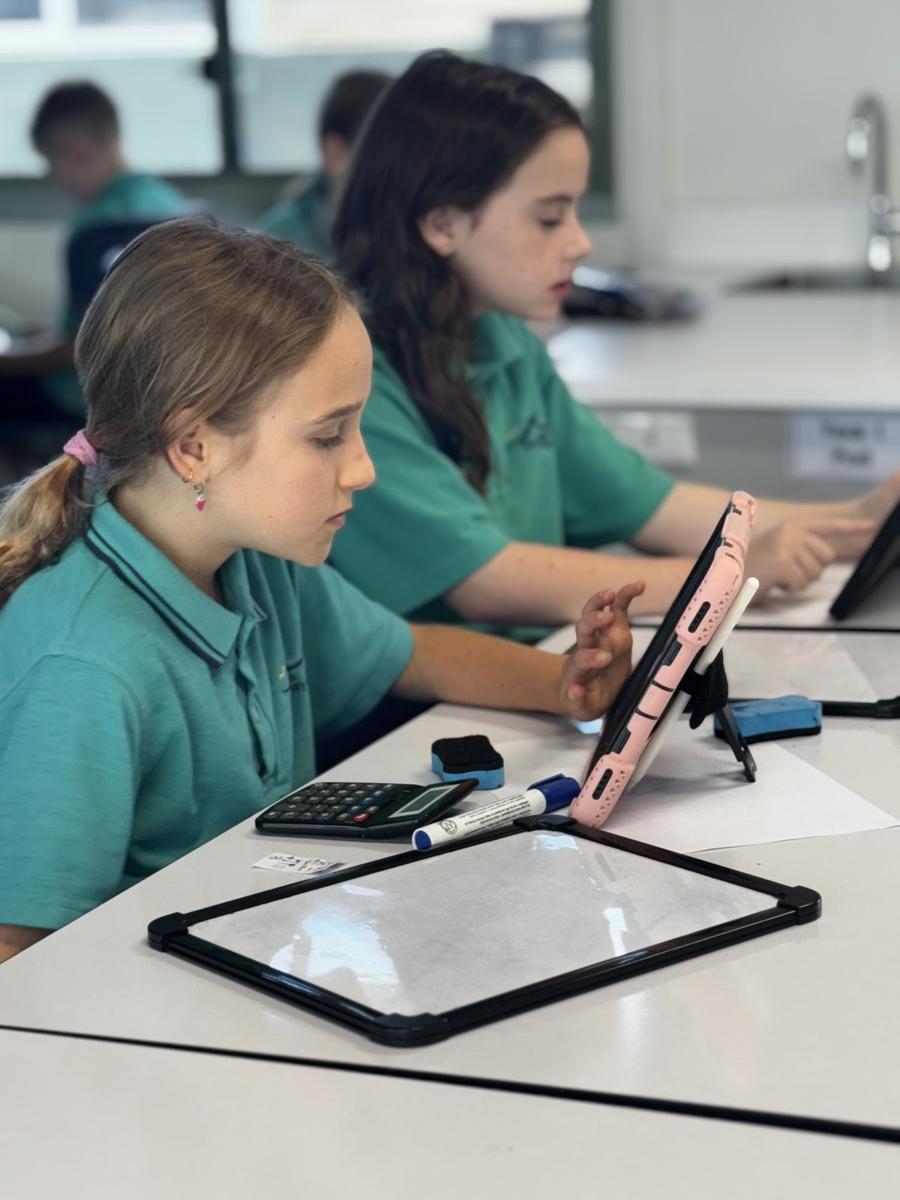
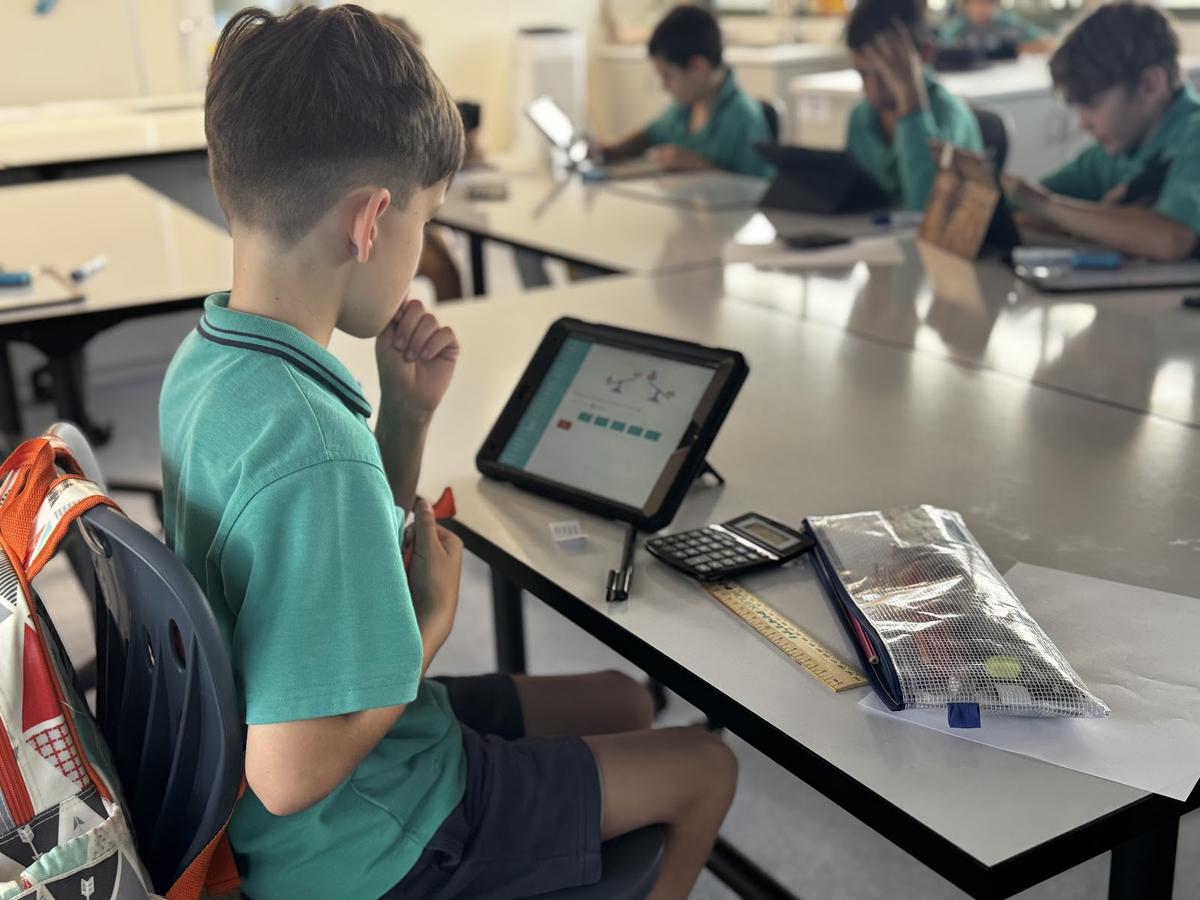








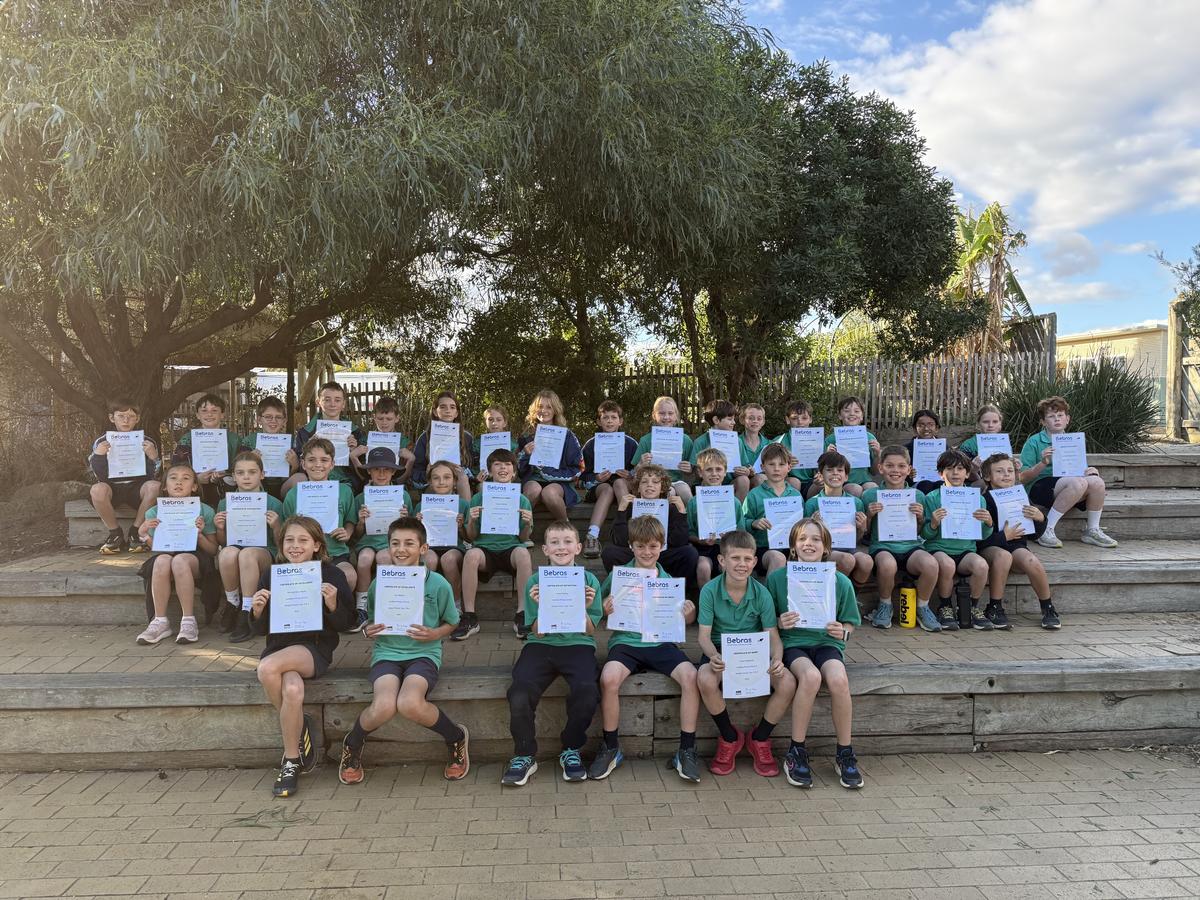

We had 14 students from years 4 and 5 begin their mathematical secondary school partnership with Bellarine Secondary College this week as part of Project 25. We have been undertaking this partnership over the past few years where we have linked with Bellarine's SEIL class of year 7 and 8 students to develop collaborative skills and extend mathematical higher order thinking and problem solving skills. The focus of the first session was the Fibonacci Sequence. The Fibonacci sequence is the series of numbers where each number is the sum of the two preceding numbers. For example, 0, 1, 1, 2, 3, 5, 8, 13, 21, 34, 55, 89, 144, 233, 377, 610,. The students developed their understanding of the rule and then applied their learnt skill to different problems or examples. These included:
The students and staff look forward to these sessions continuing throughout terms 2 and 3 and building new understandings, skills and connections. A big thank you to Mr Chapman, Mr Wallis (Bellarine SC), Ms Clitheroe (Bellarine SC), Mr Johannesen (Bellarine SC Principal) and most importantly the Bellarine SC SEIL students for providing this opportunity for our students.
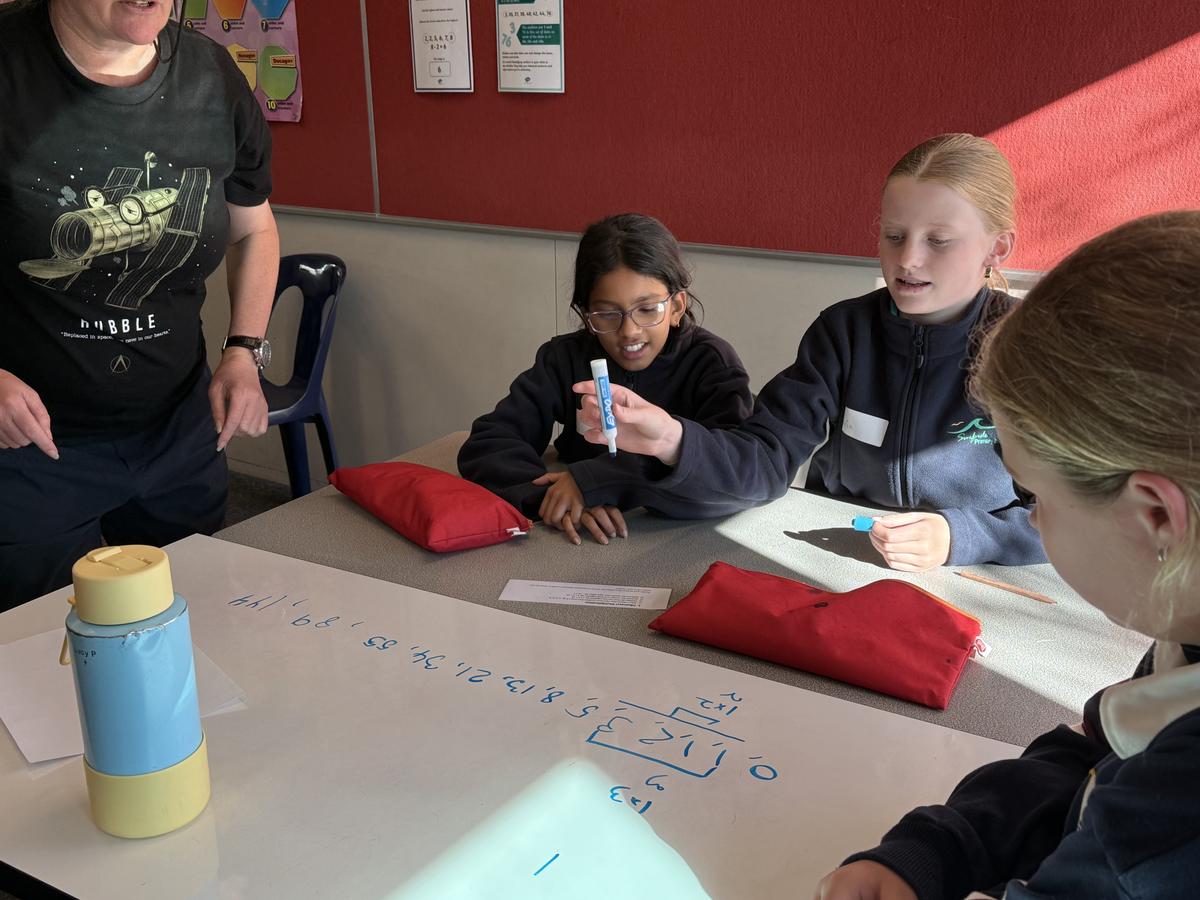
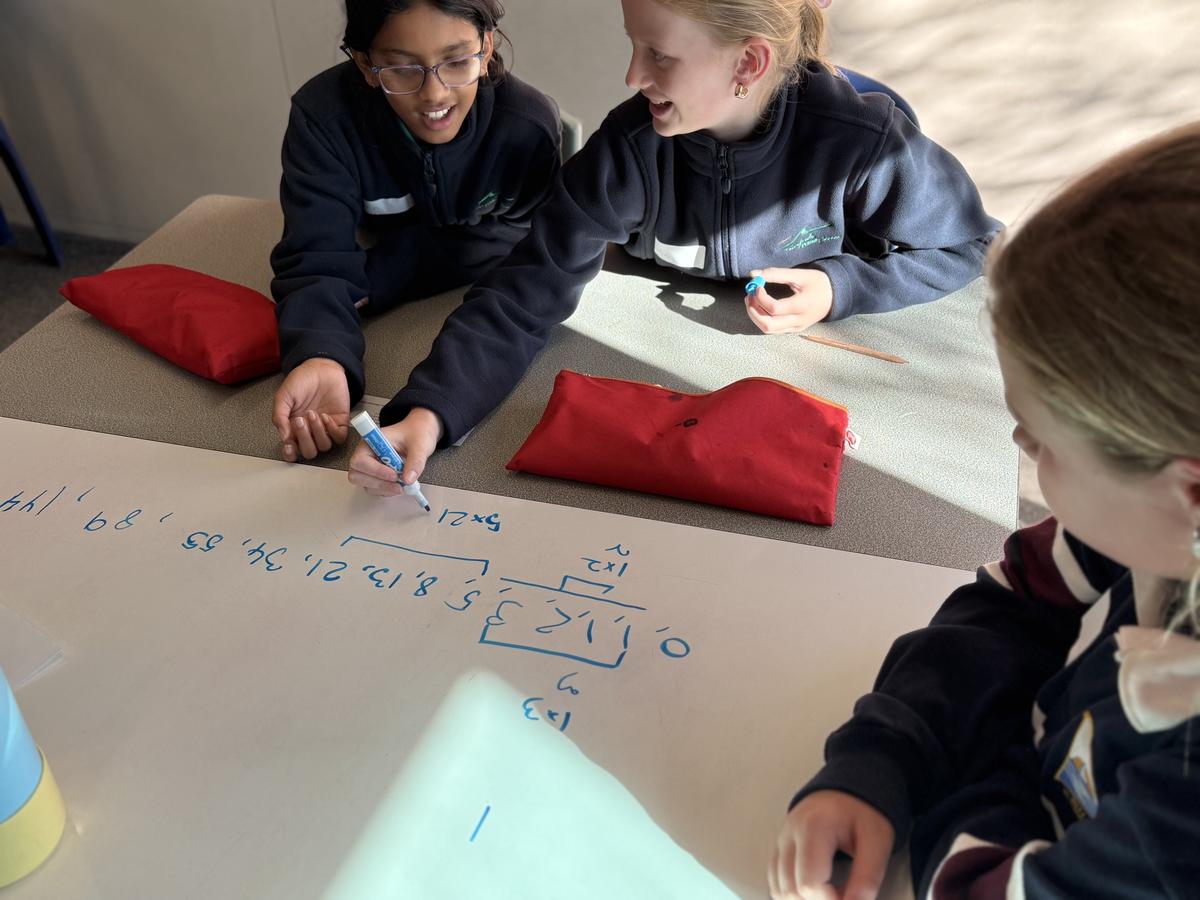
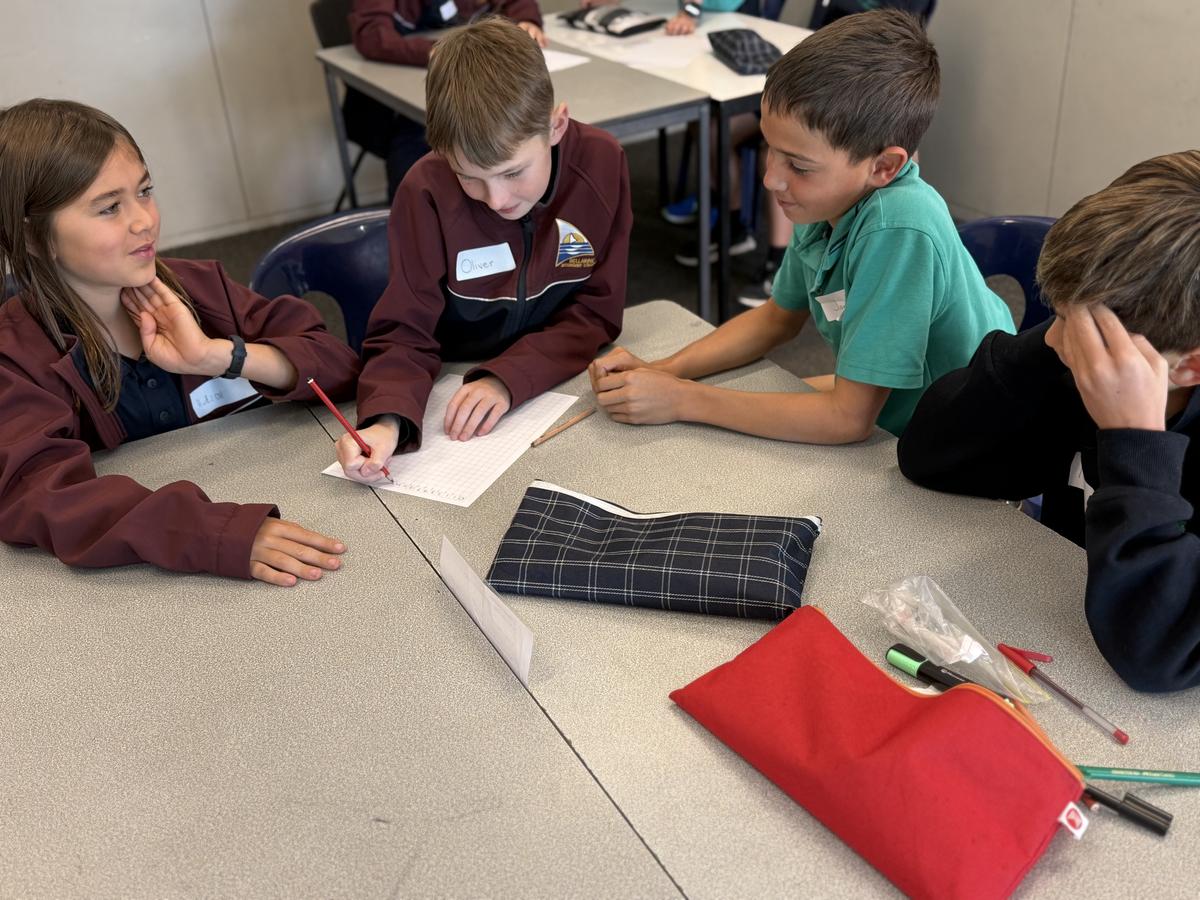
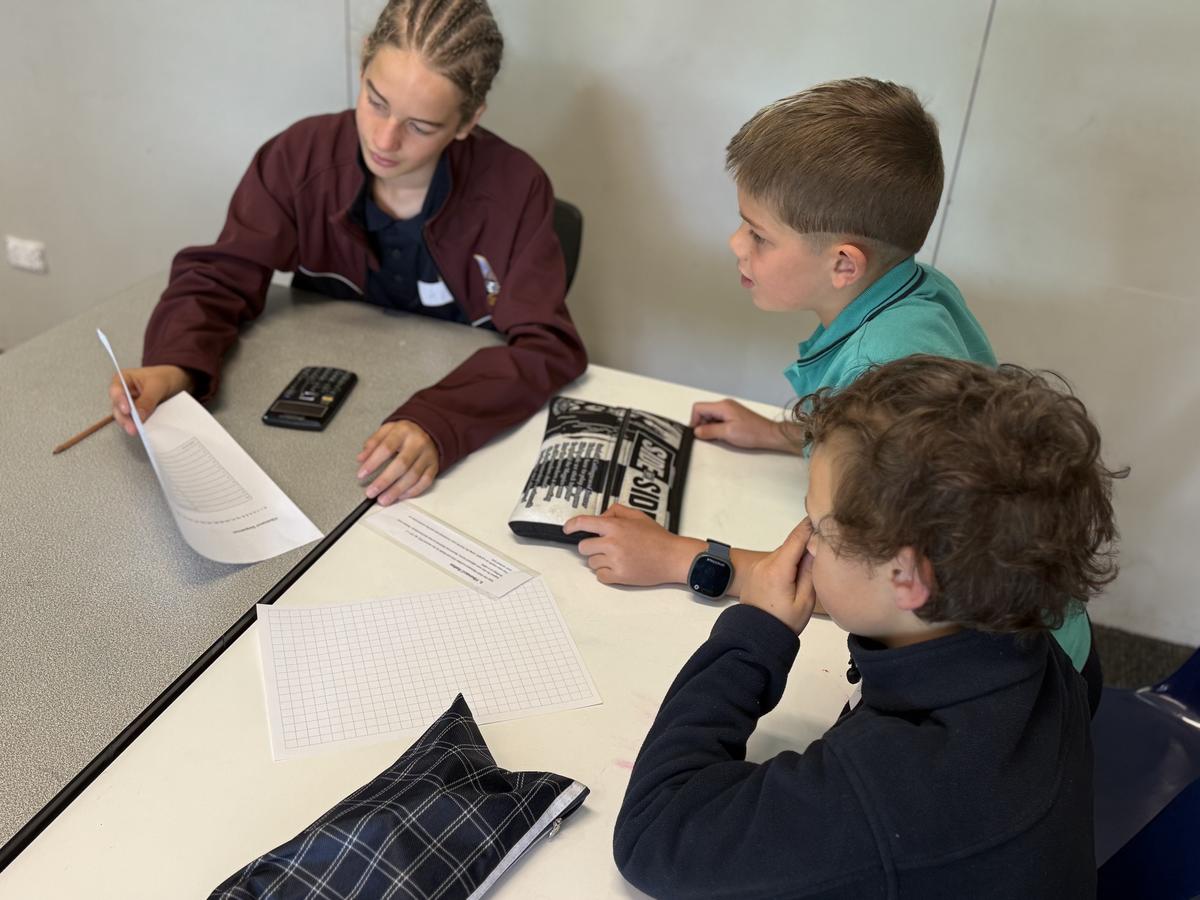
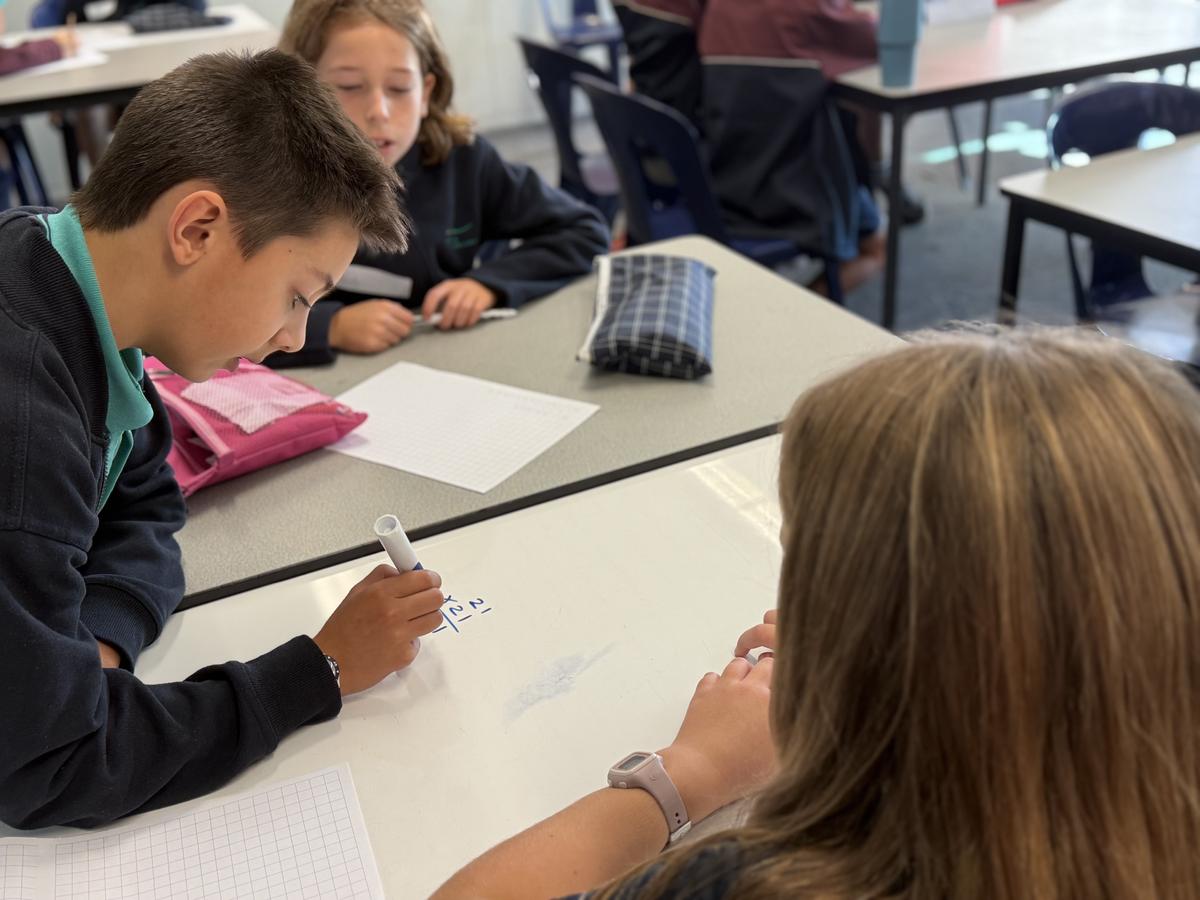
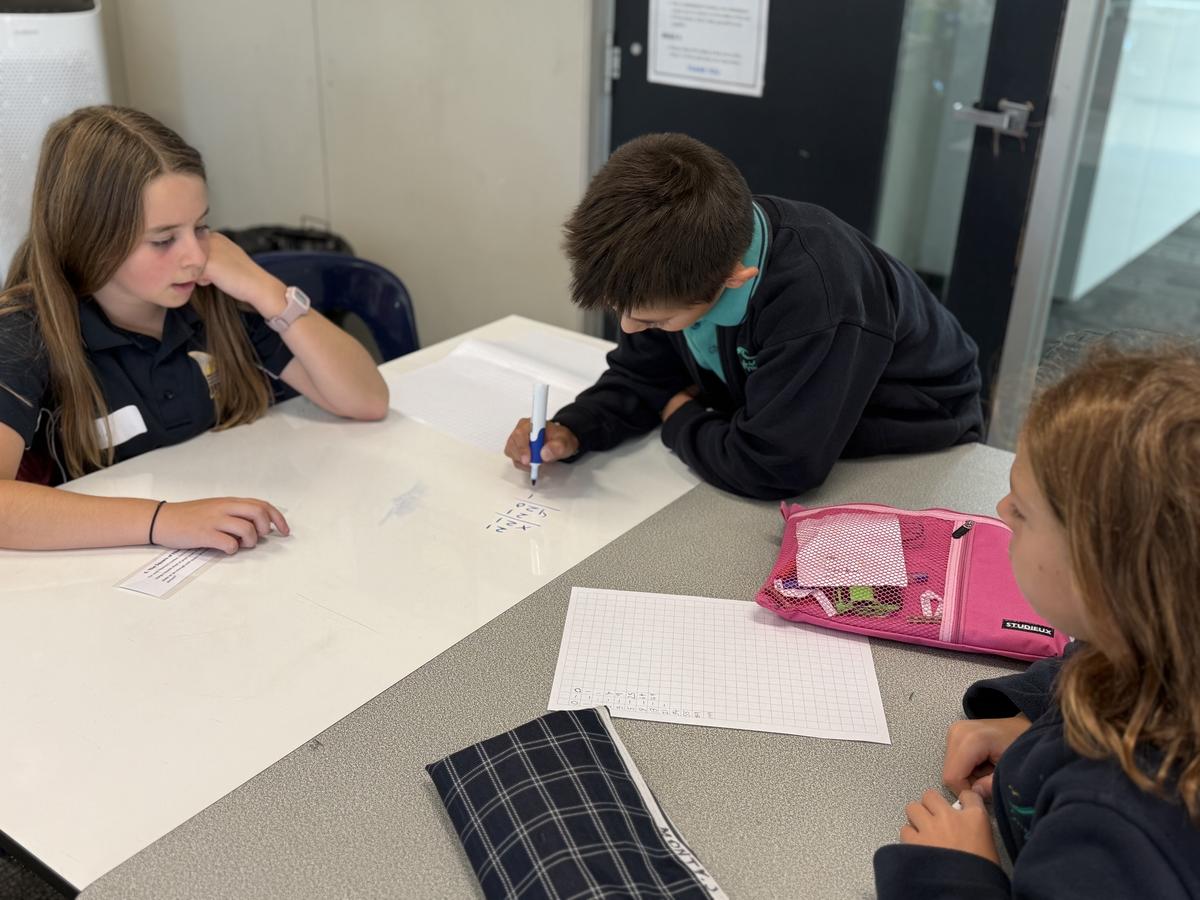
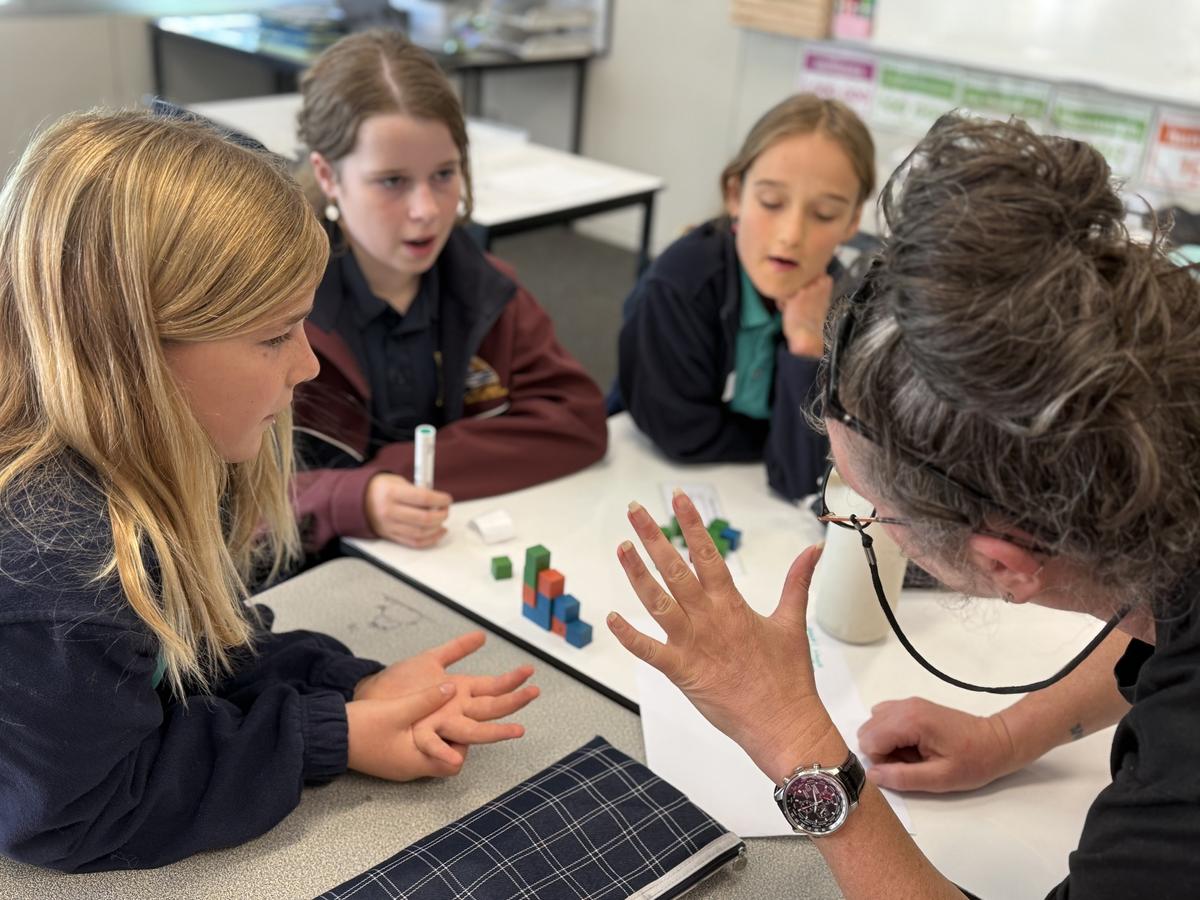







Our year 6 cohort have enjoyed a marvelous week at camp and have been grateful for the amazing weather they had throughout the week. Cold mornings and evenings were replaced with beautiful days bathed in sunshine and allowed the students to have a variety of positive experiences outdoors, in a challenging environment and being out of their comfort zone and working together as a cohort on our school values of Respect, Honesty, Teamwork and Achievement. The students and staff had fun filled and new experiences, developed new relationships and faced challenges with activities that included; abseiling, canoeing, bush walking, raft building, crate stacking, hut building, archery, the flying fox and the ever popular giant swing. The night activities, food and campfire are always a highlight with plenty of games, walks and smores. A big thank you to the Surfside staff and the Roses Gap Recreation Centre staff who always provide such a positive and worthwhile experience for the students. We hope everyone has a restful weekend!
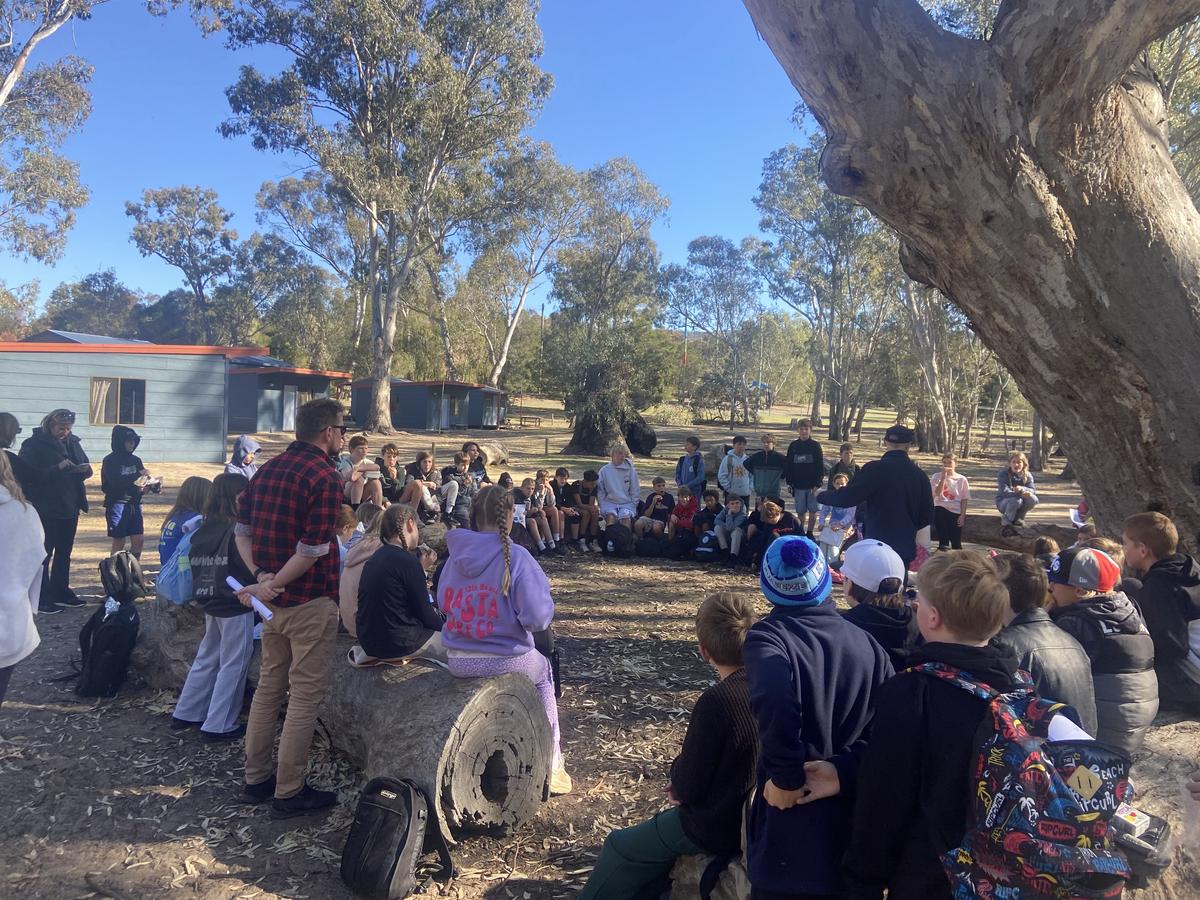
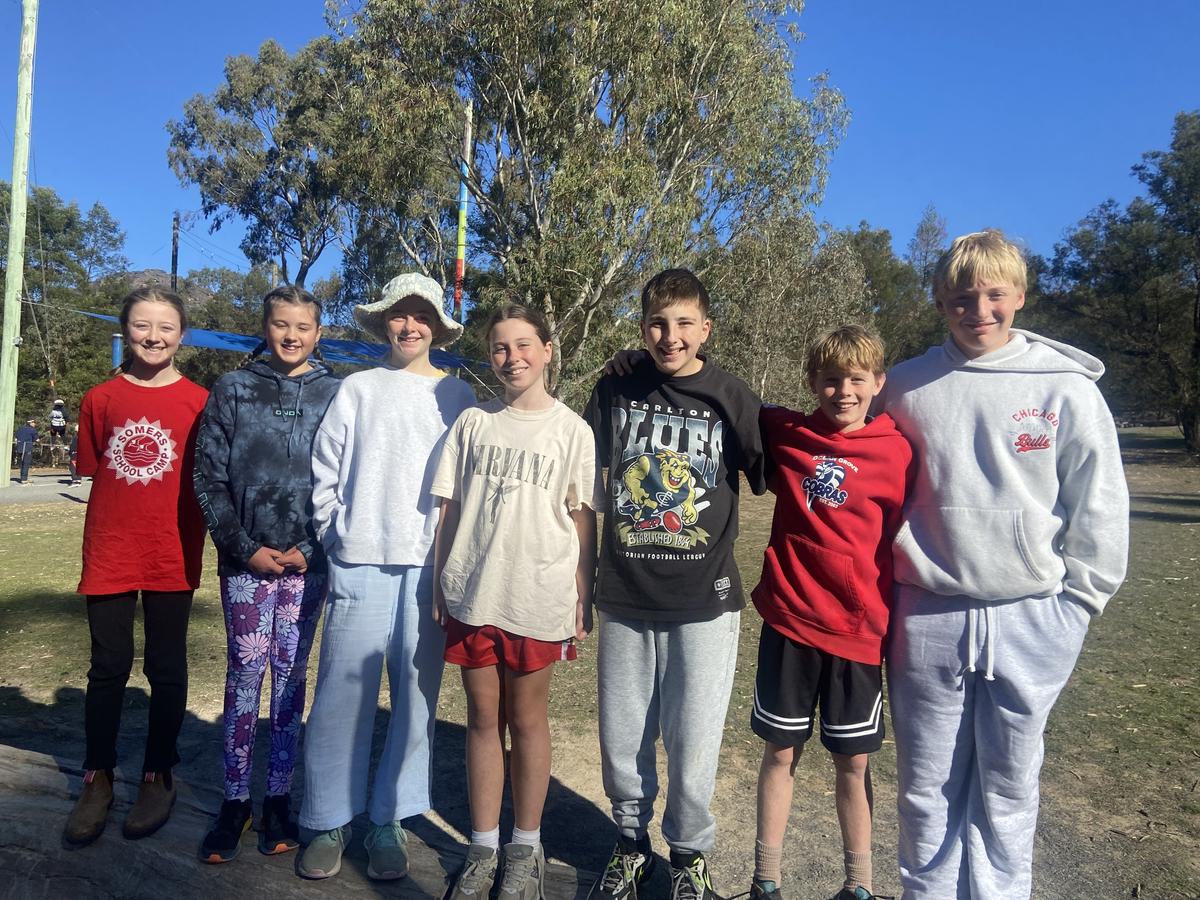
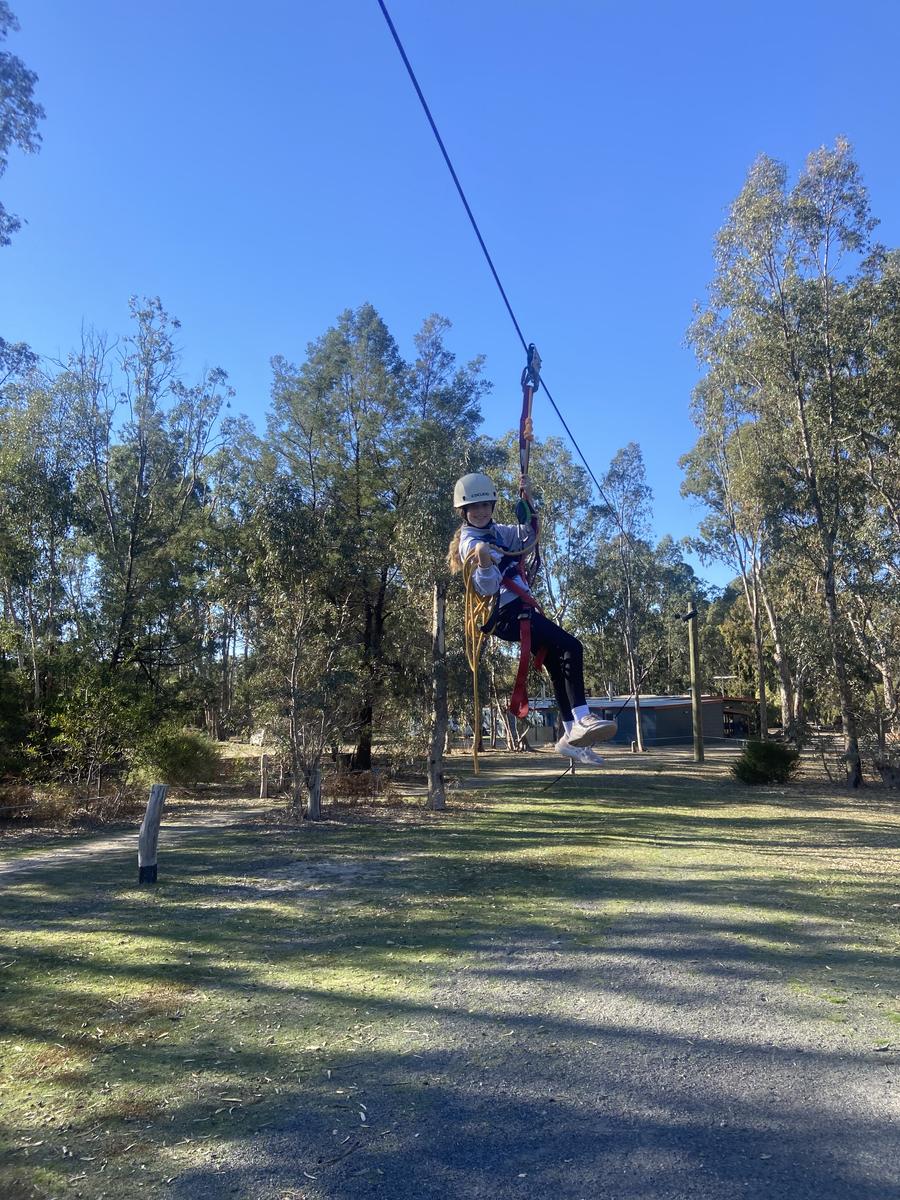
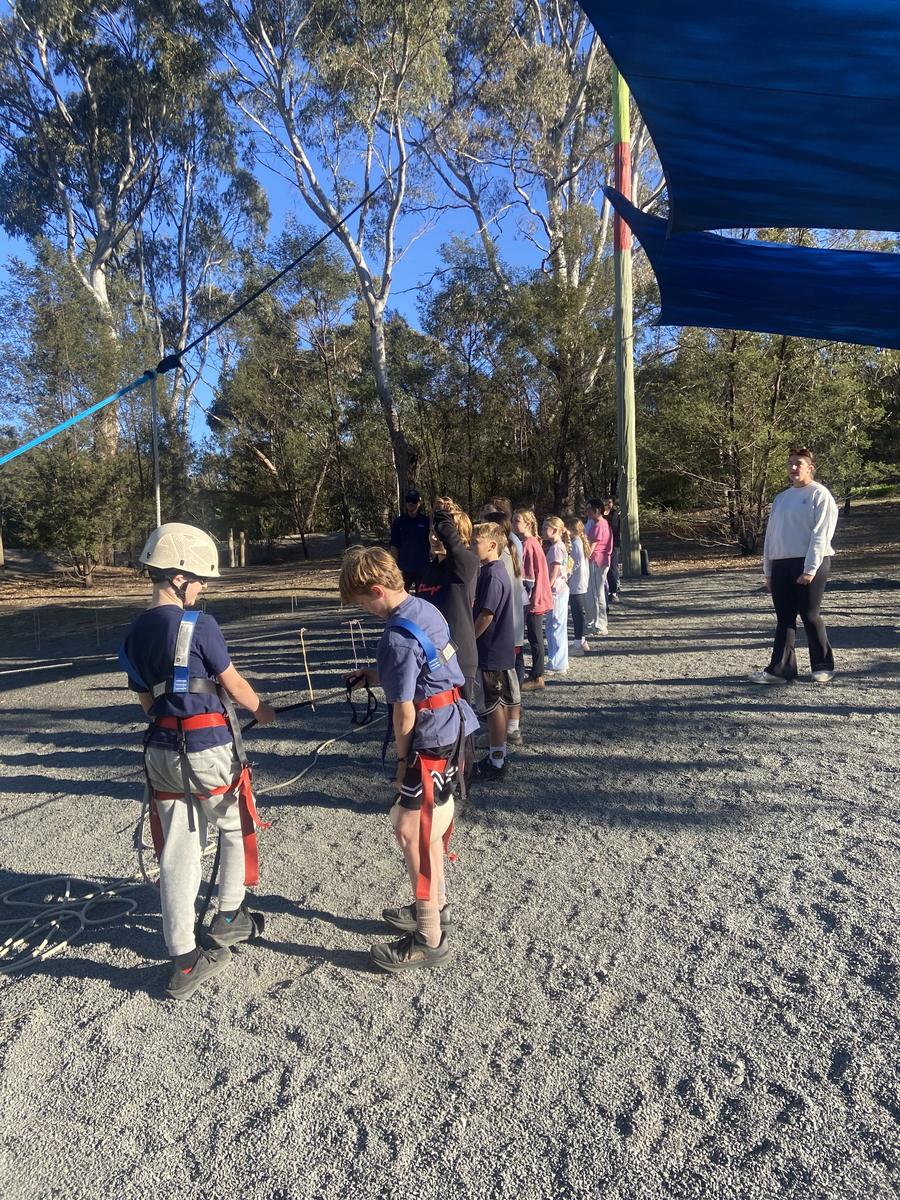
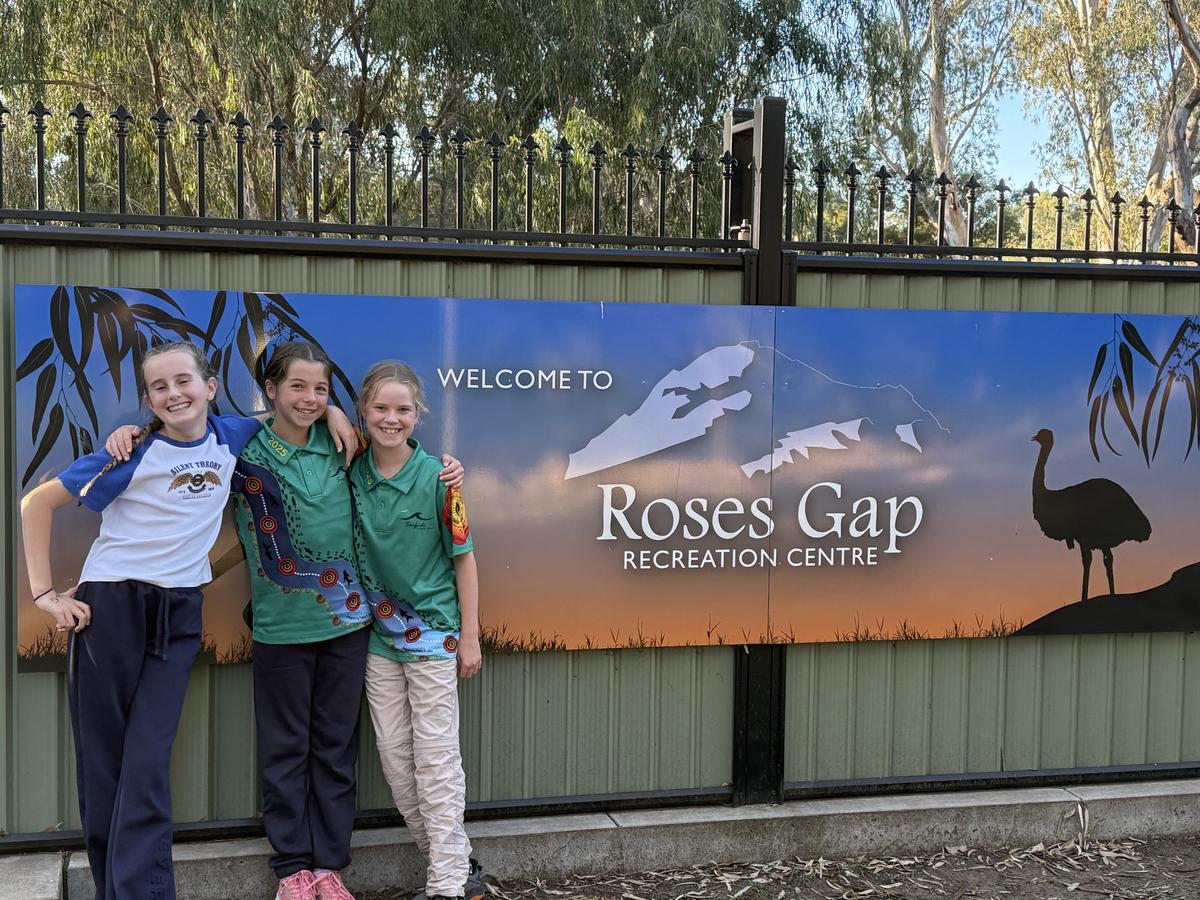
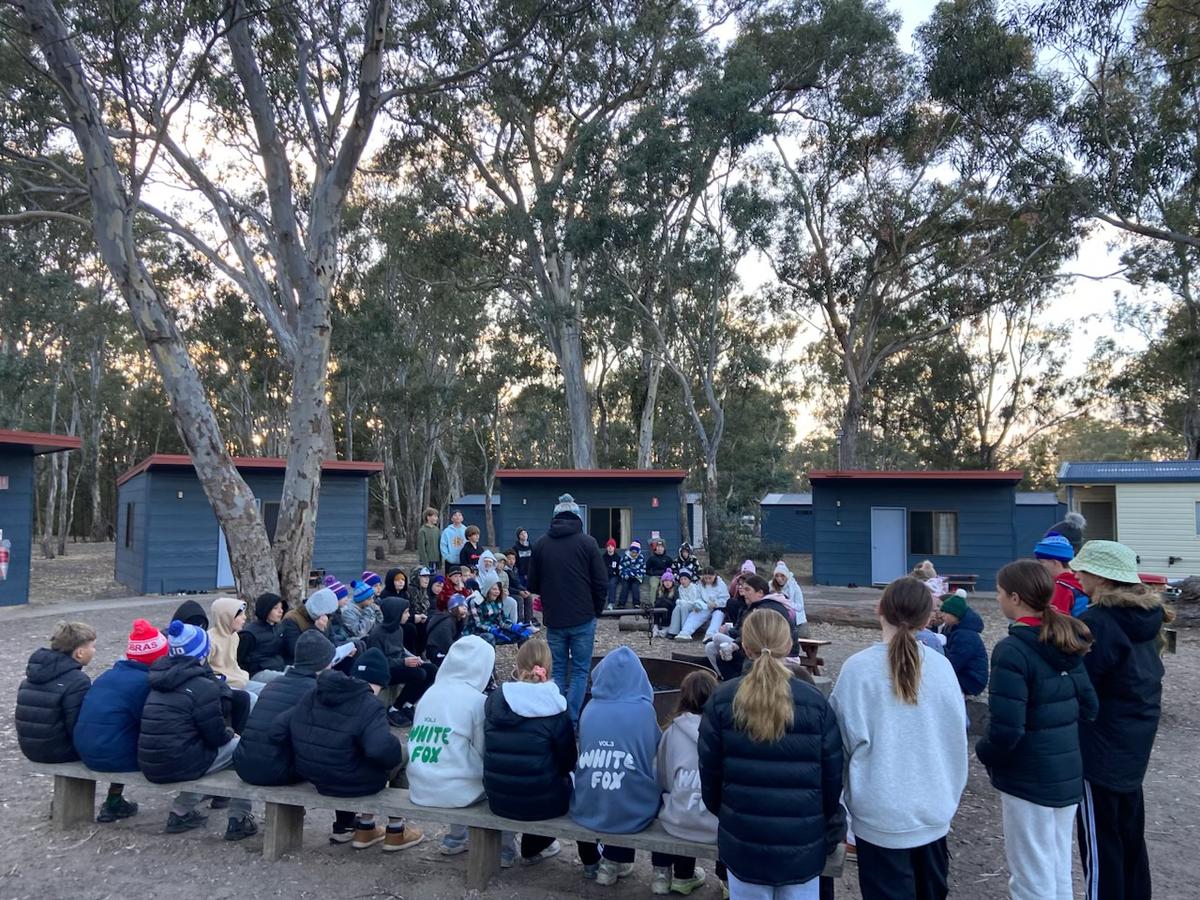
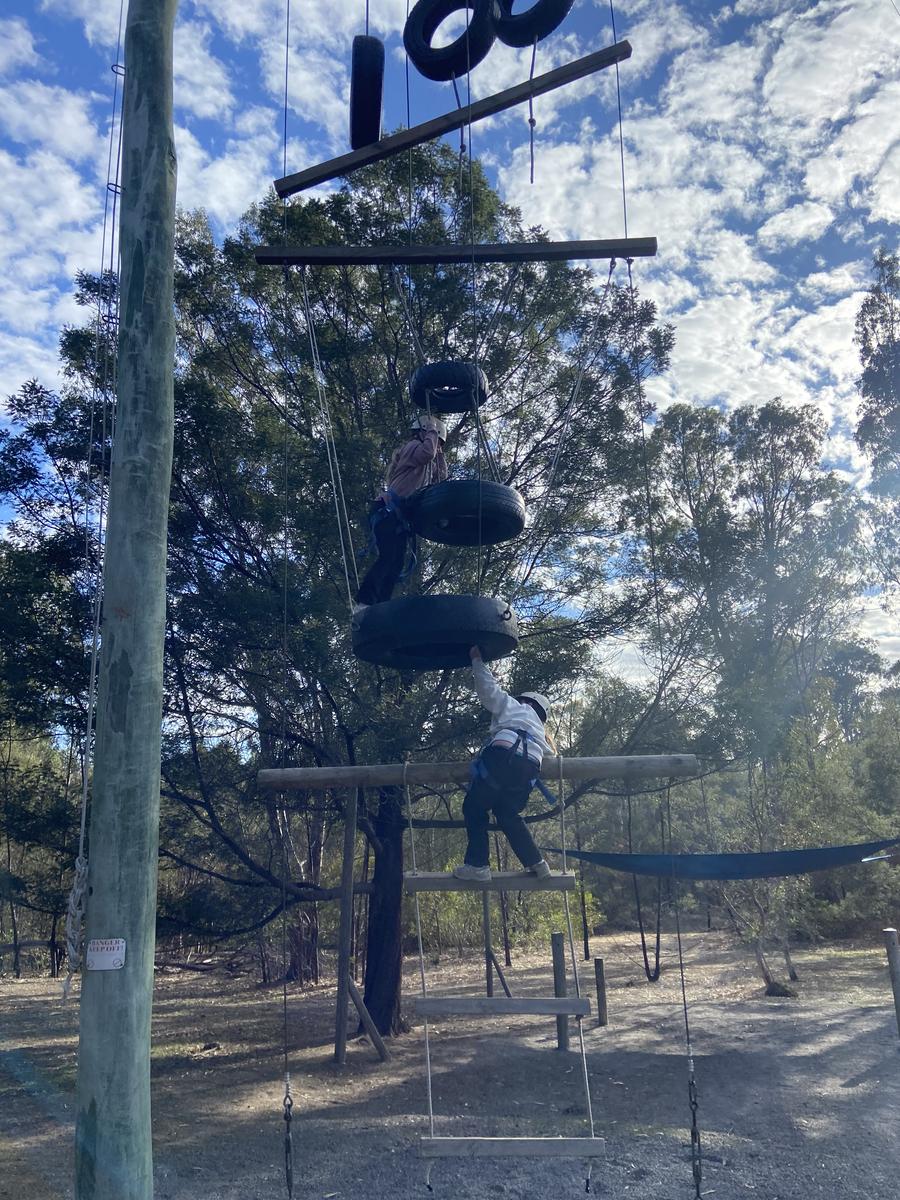
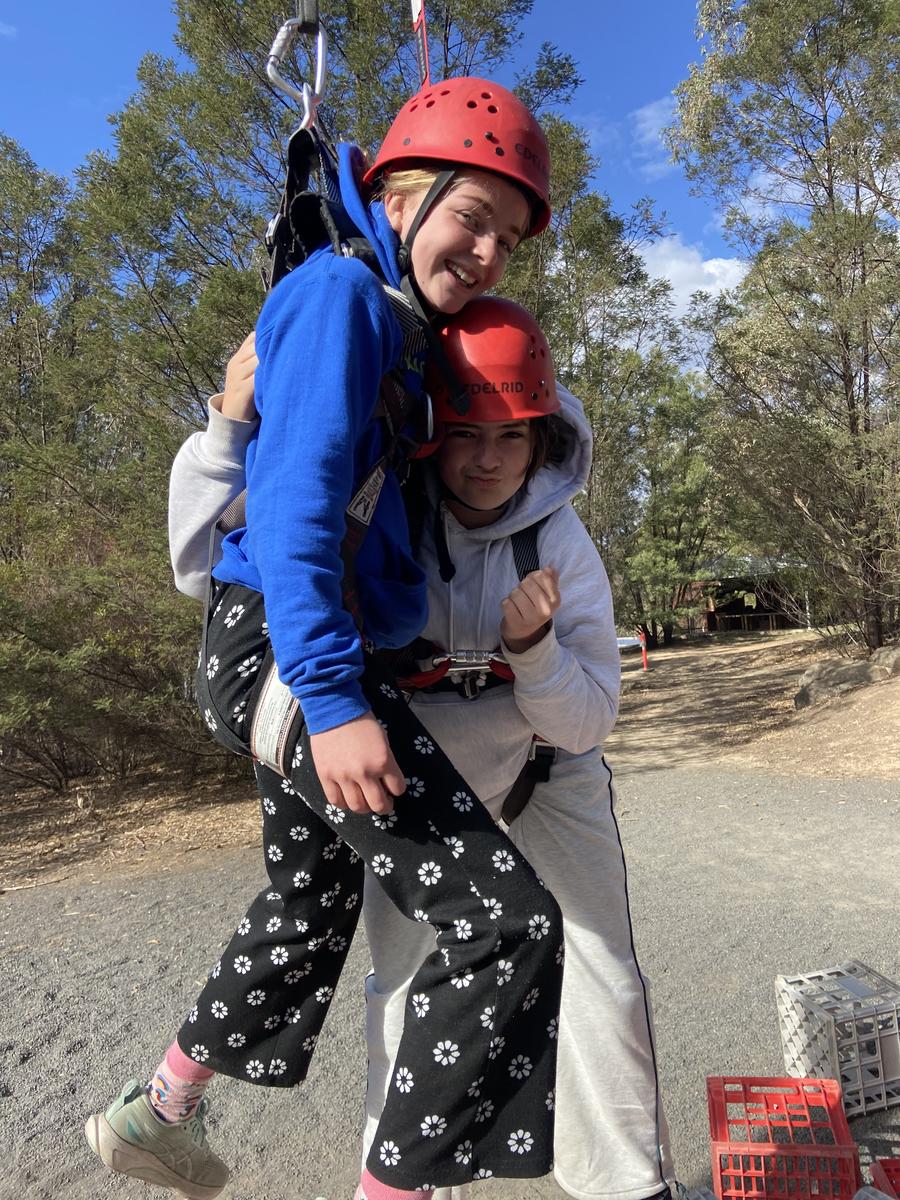
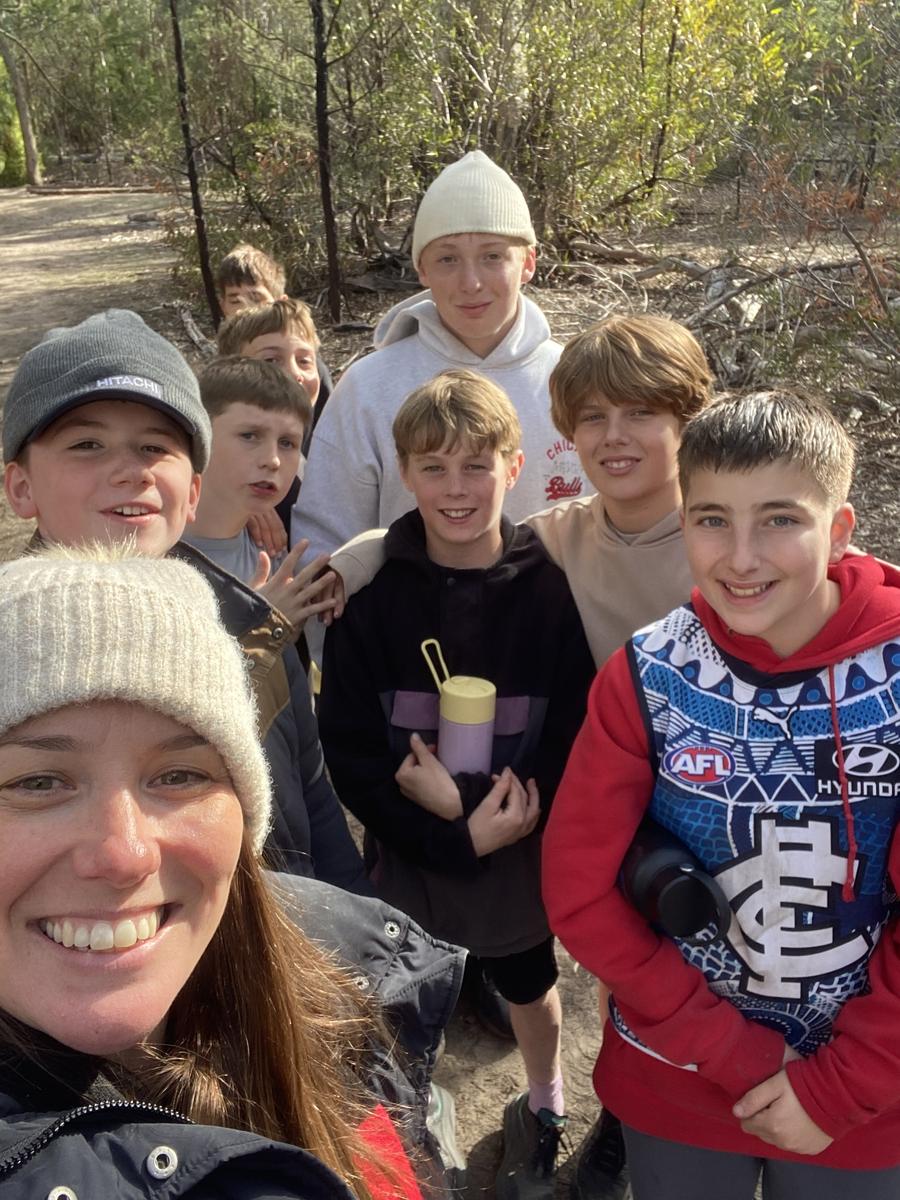
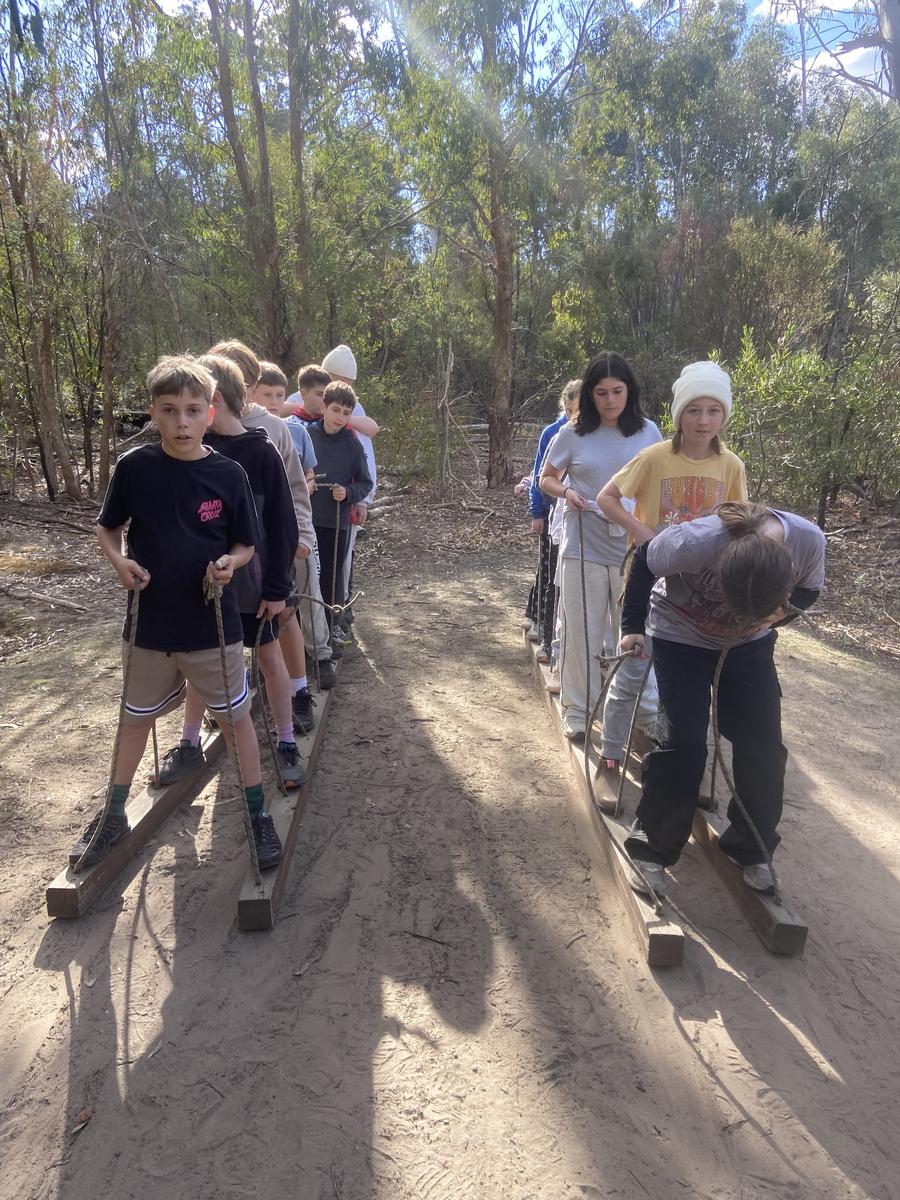
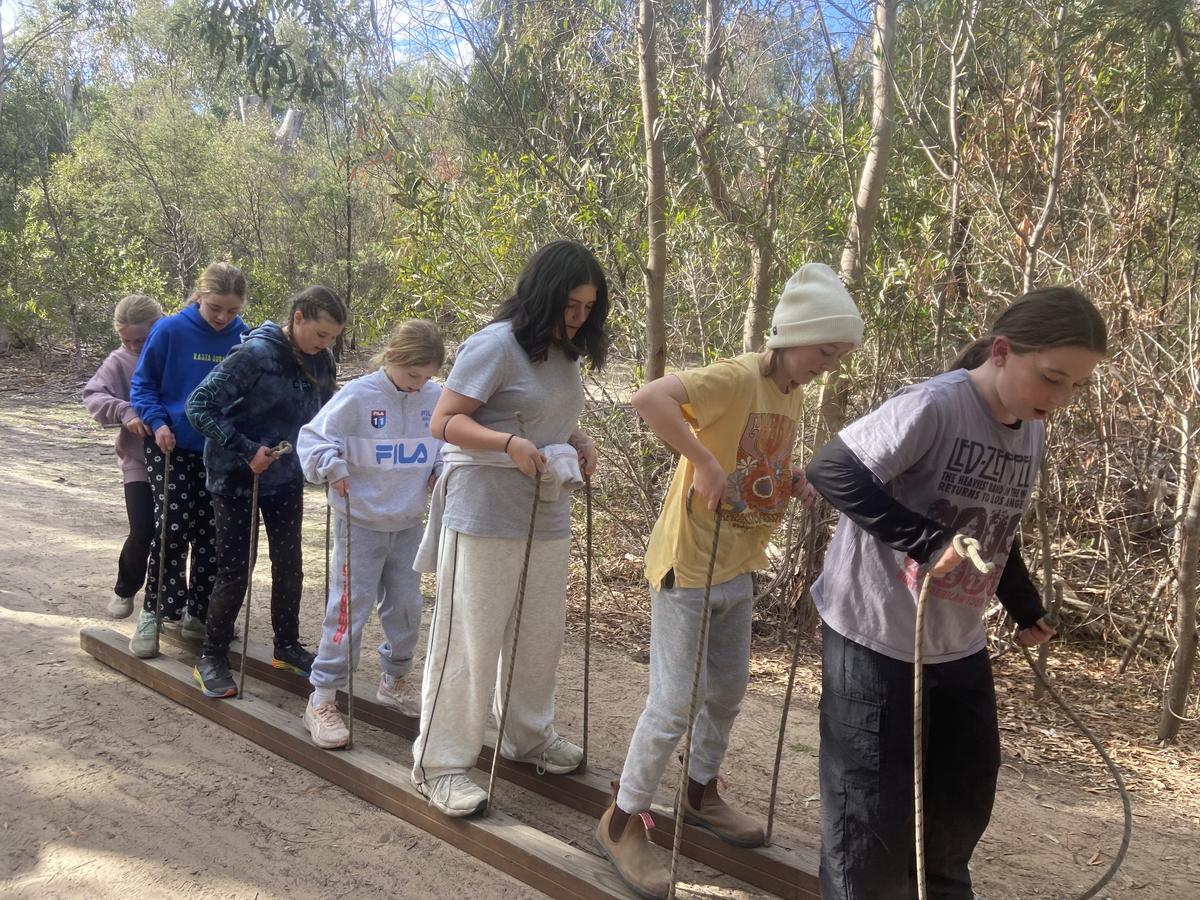
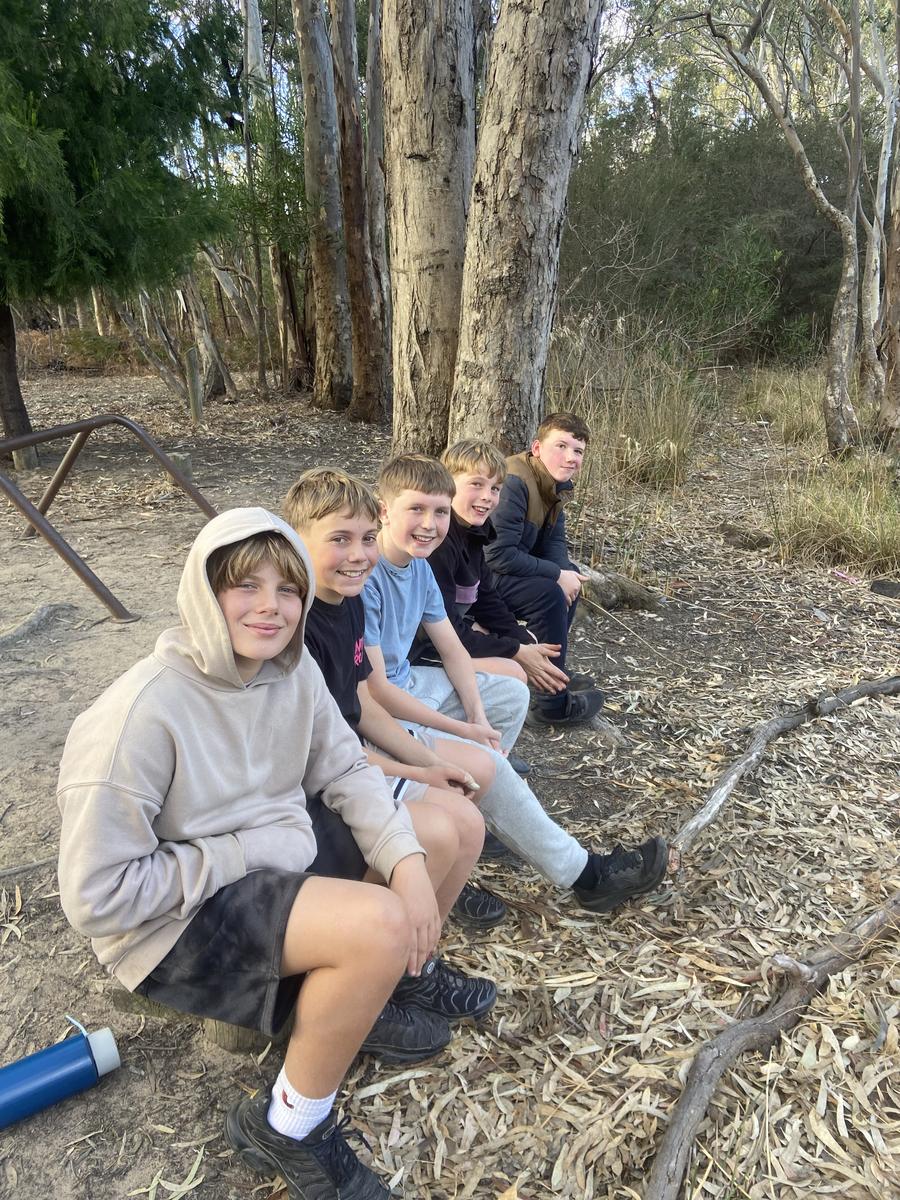
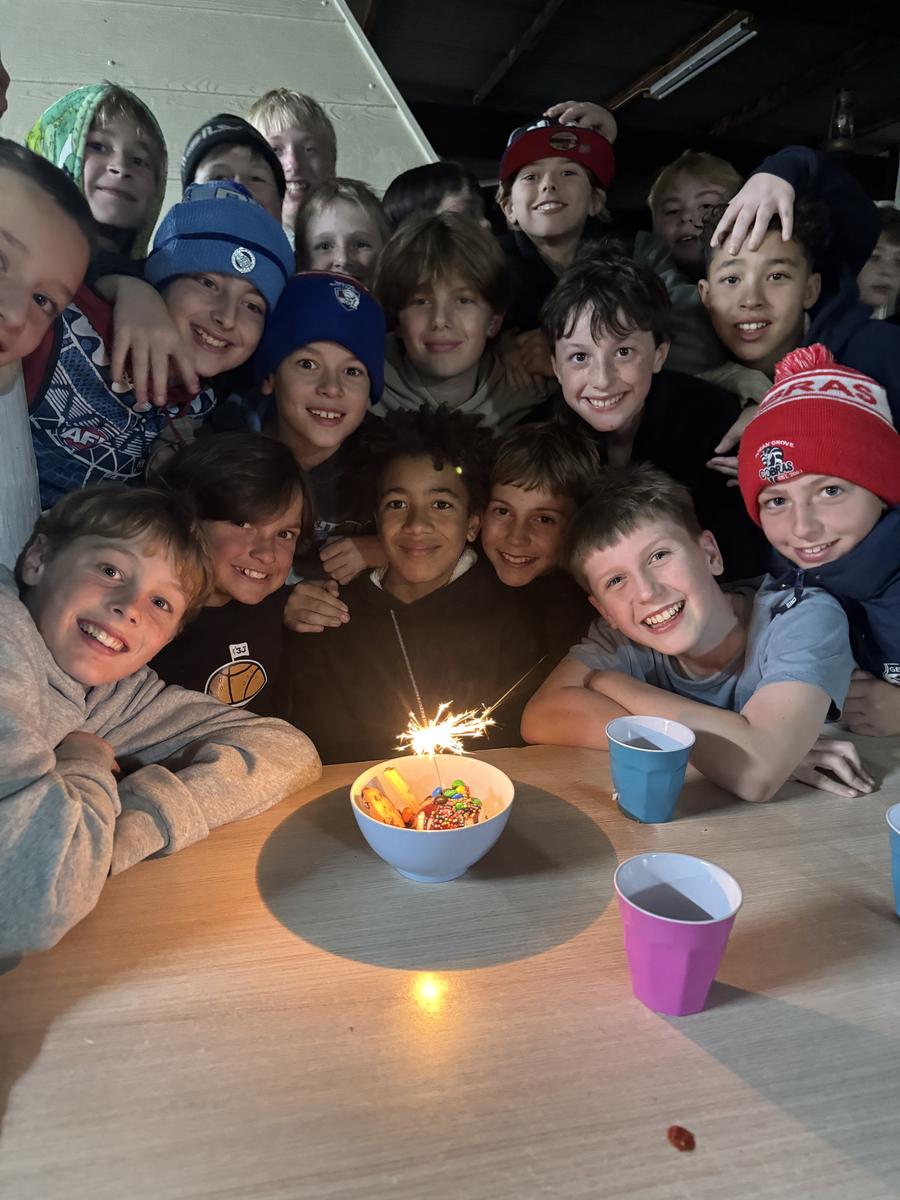
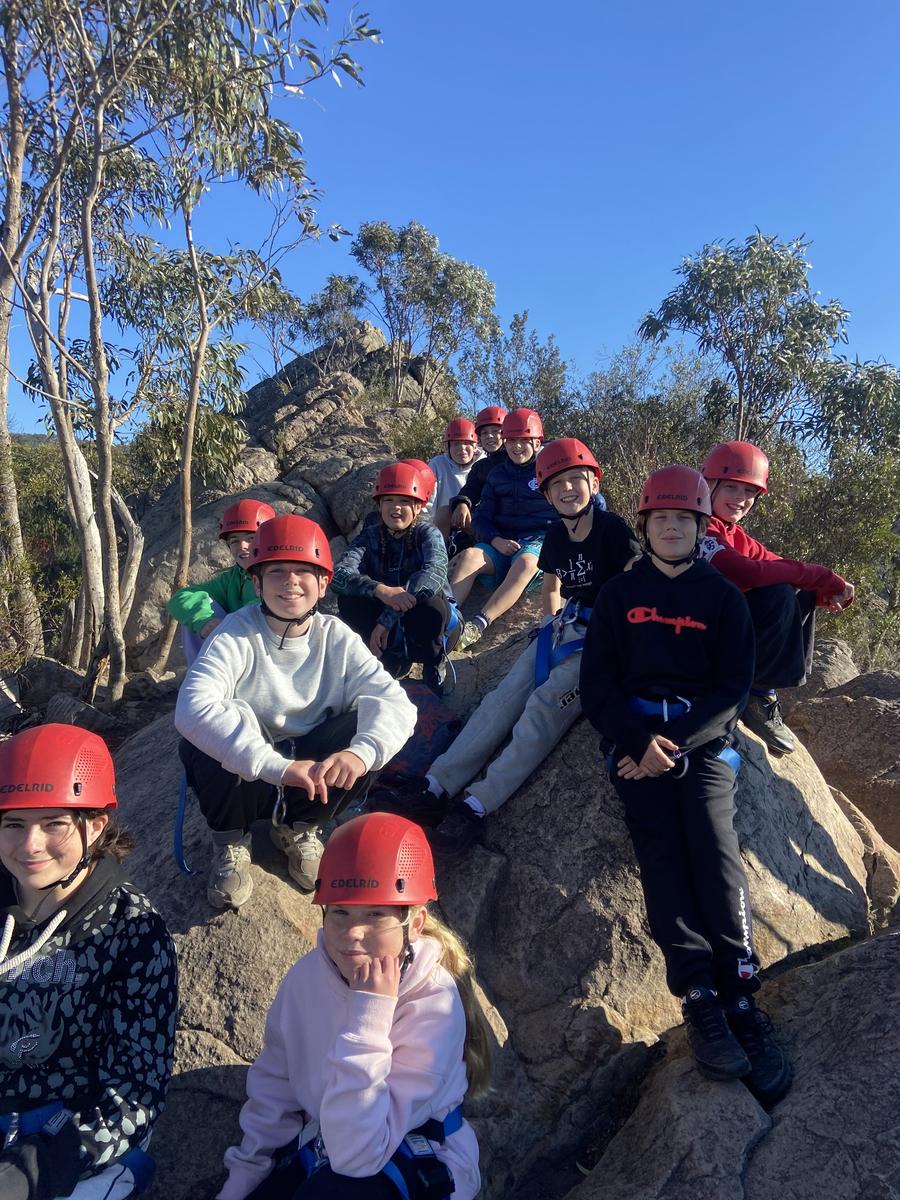
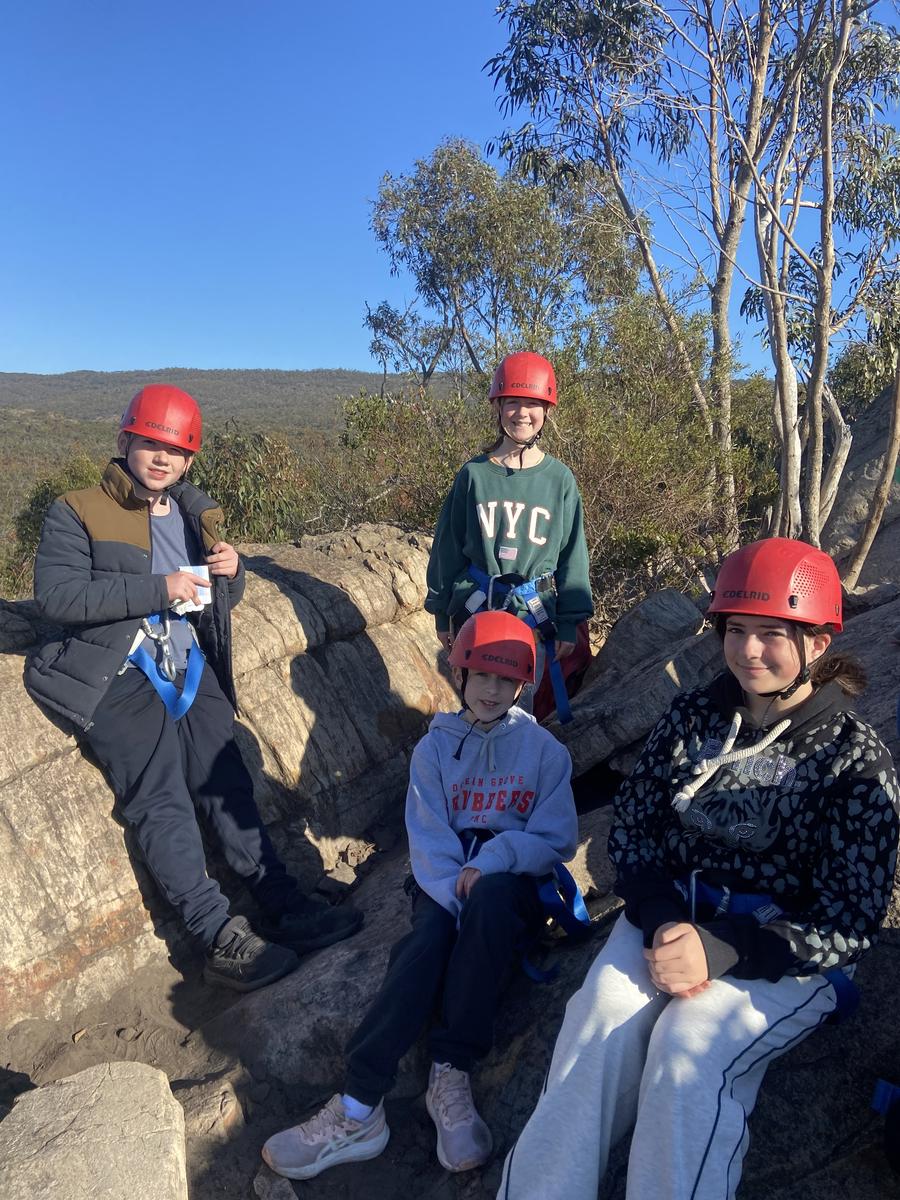
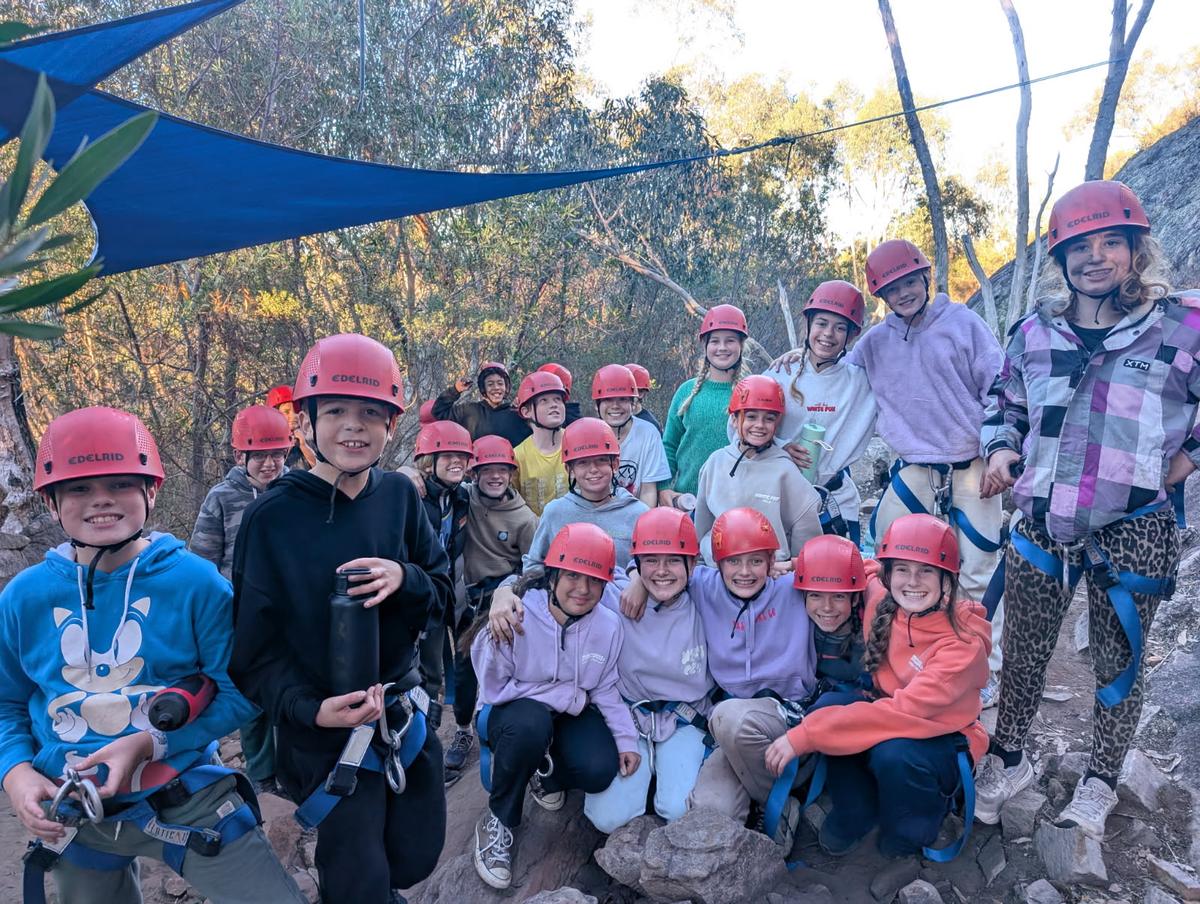

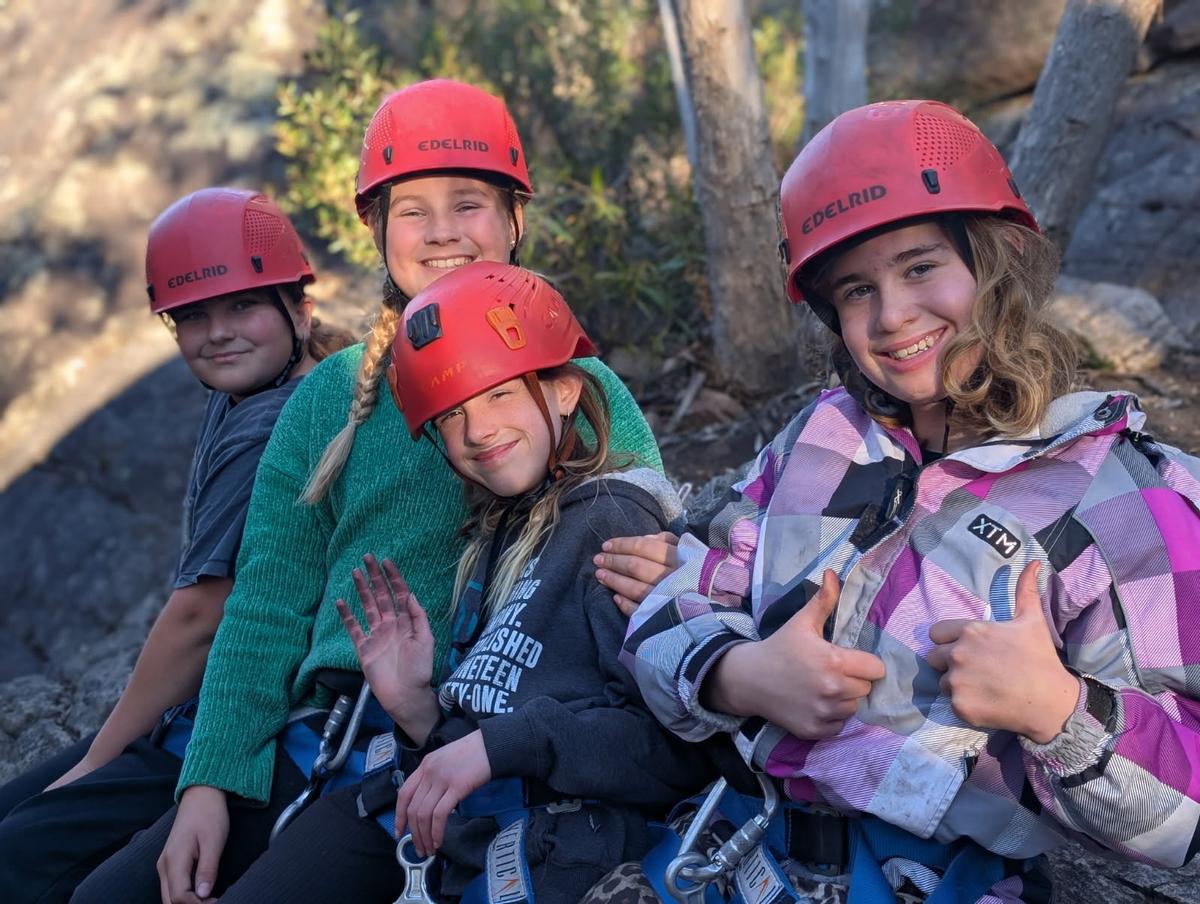
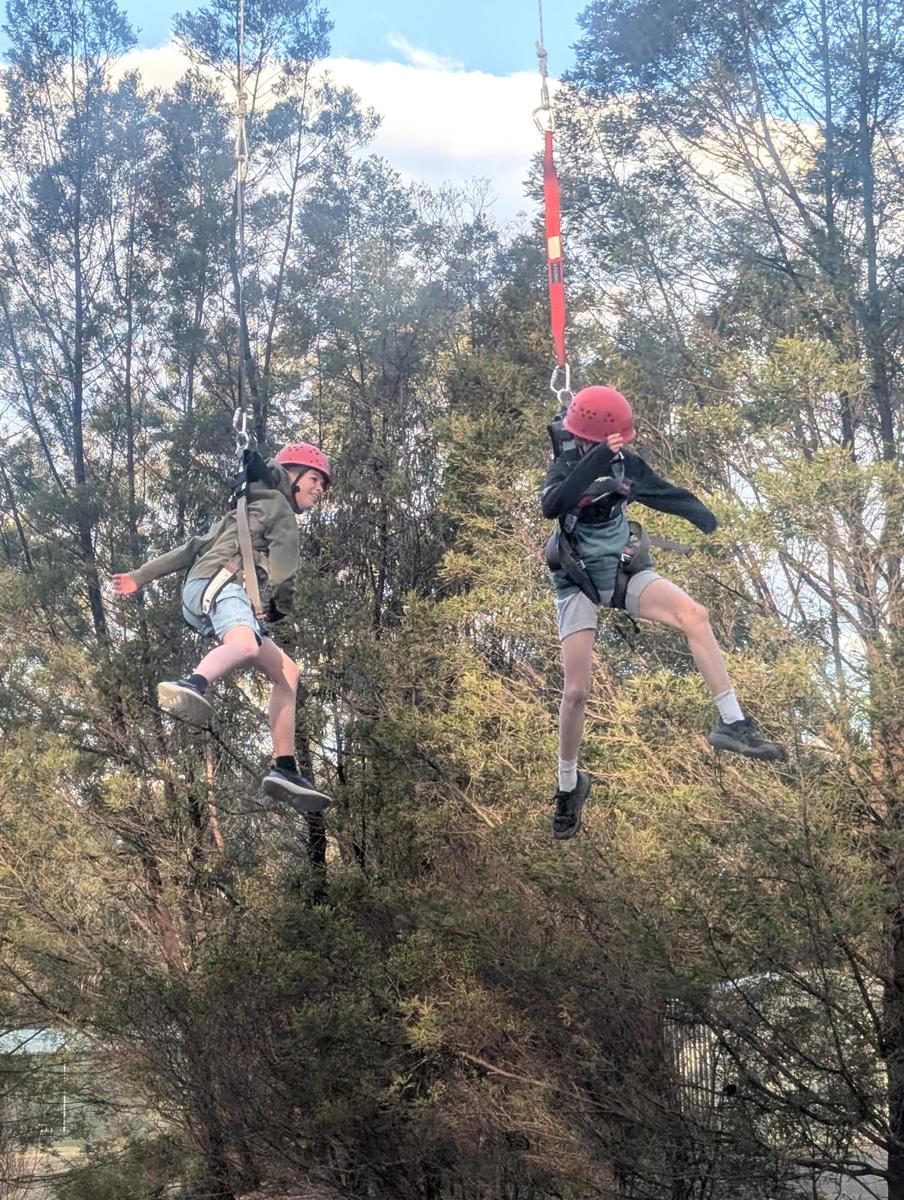



















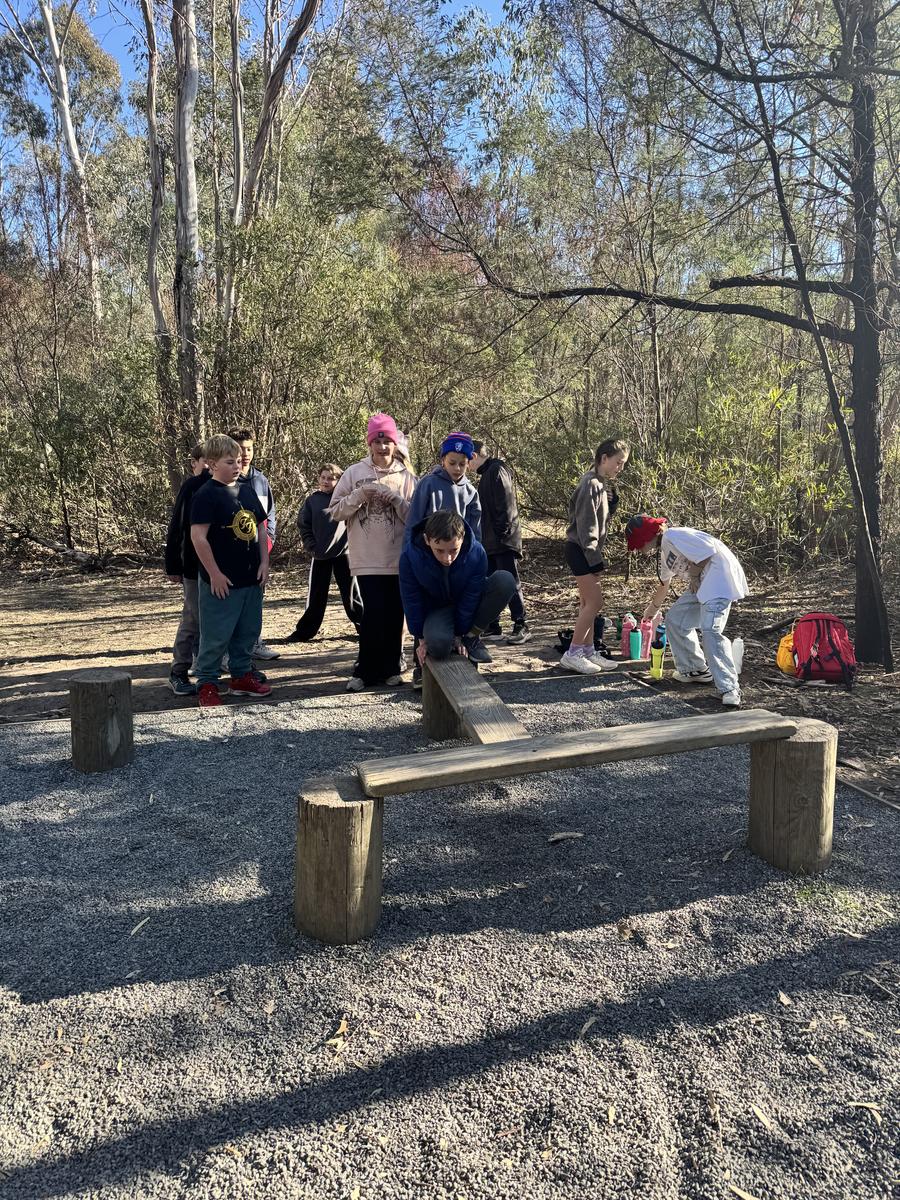
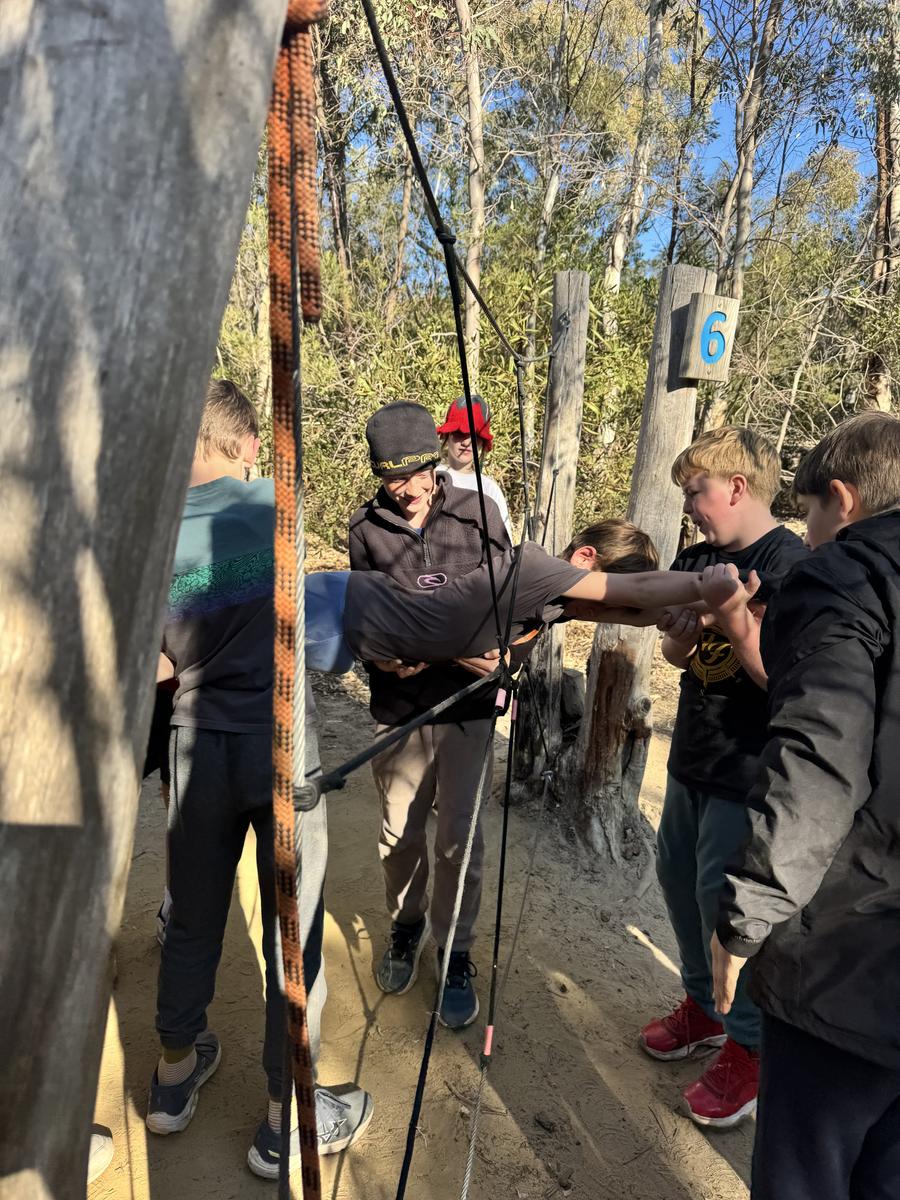
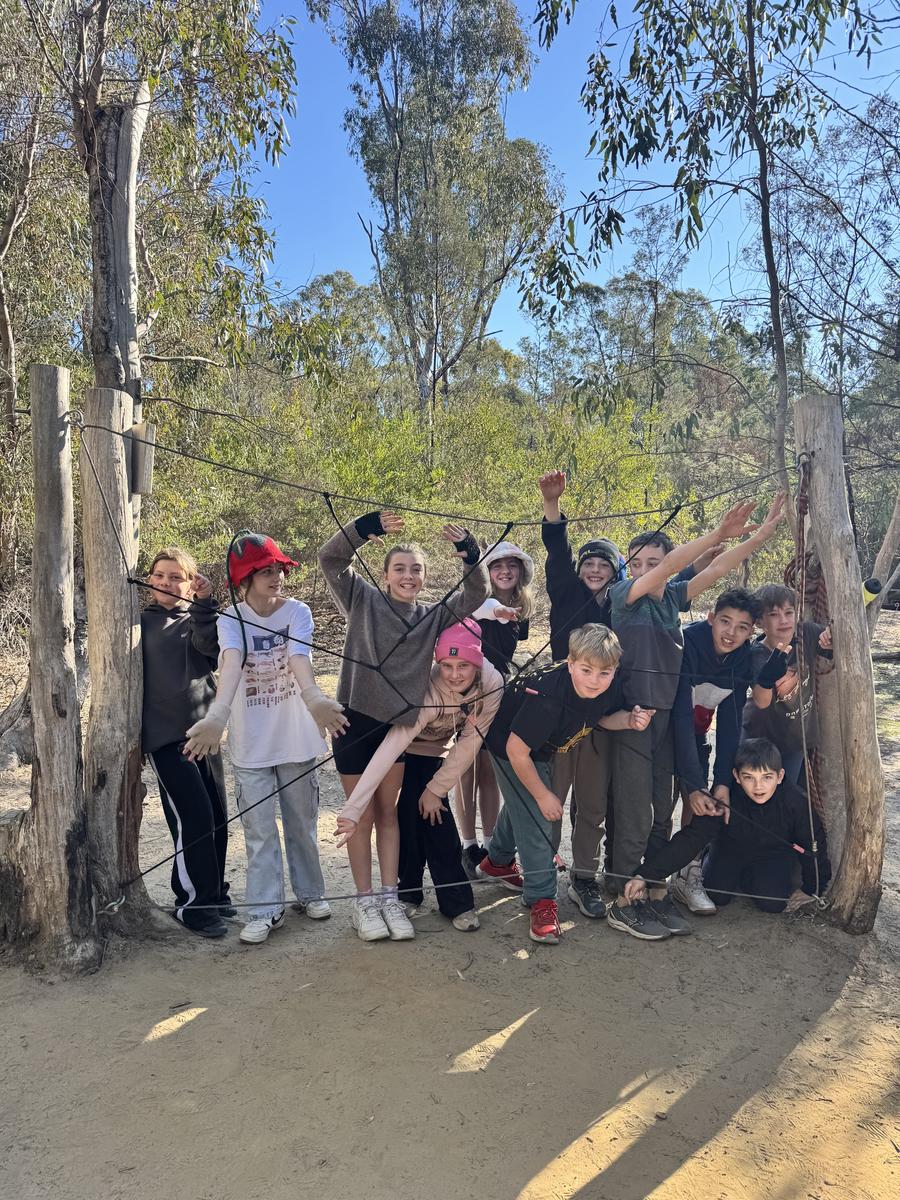
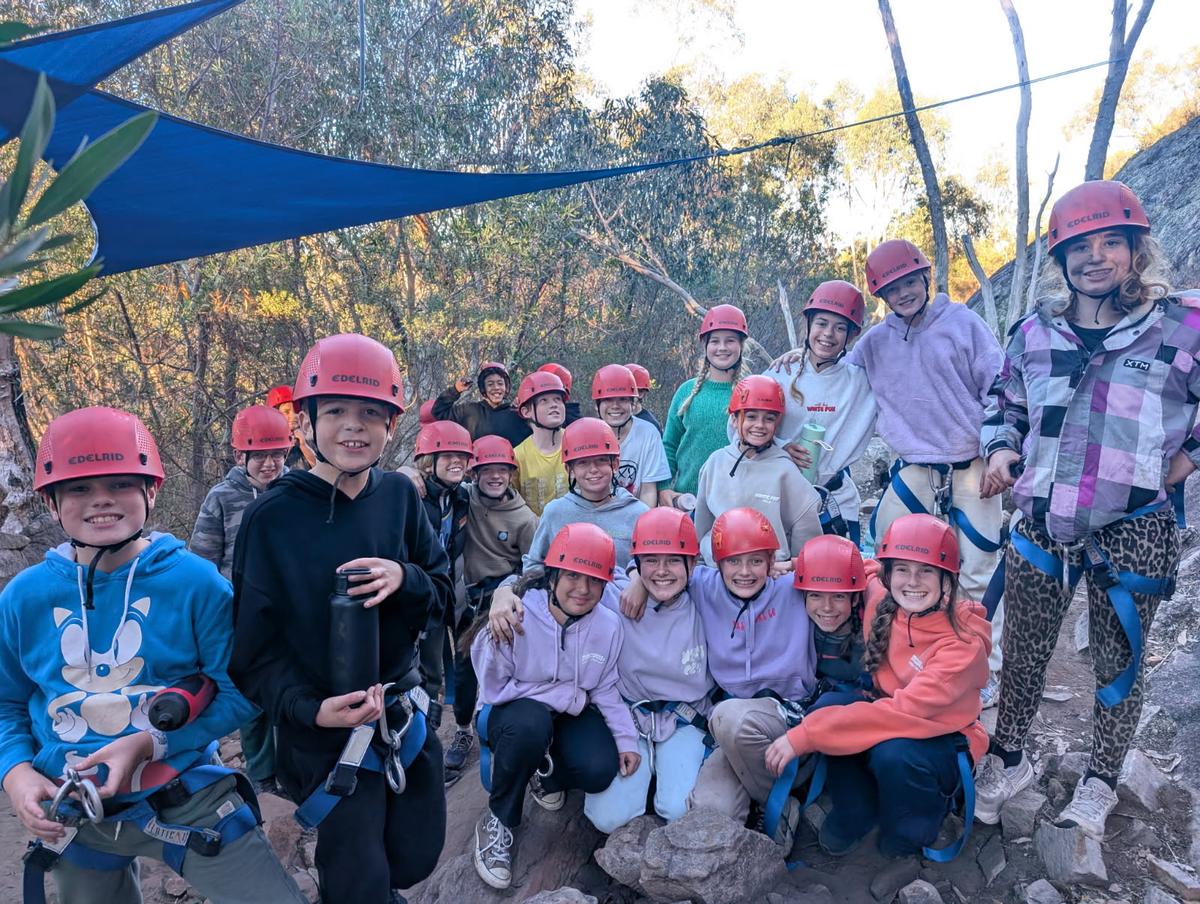

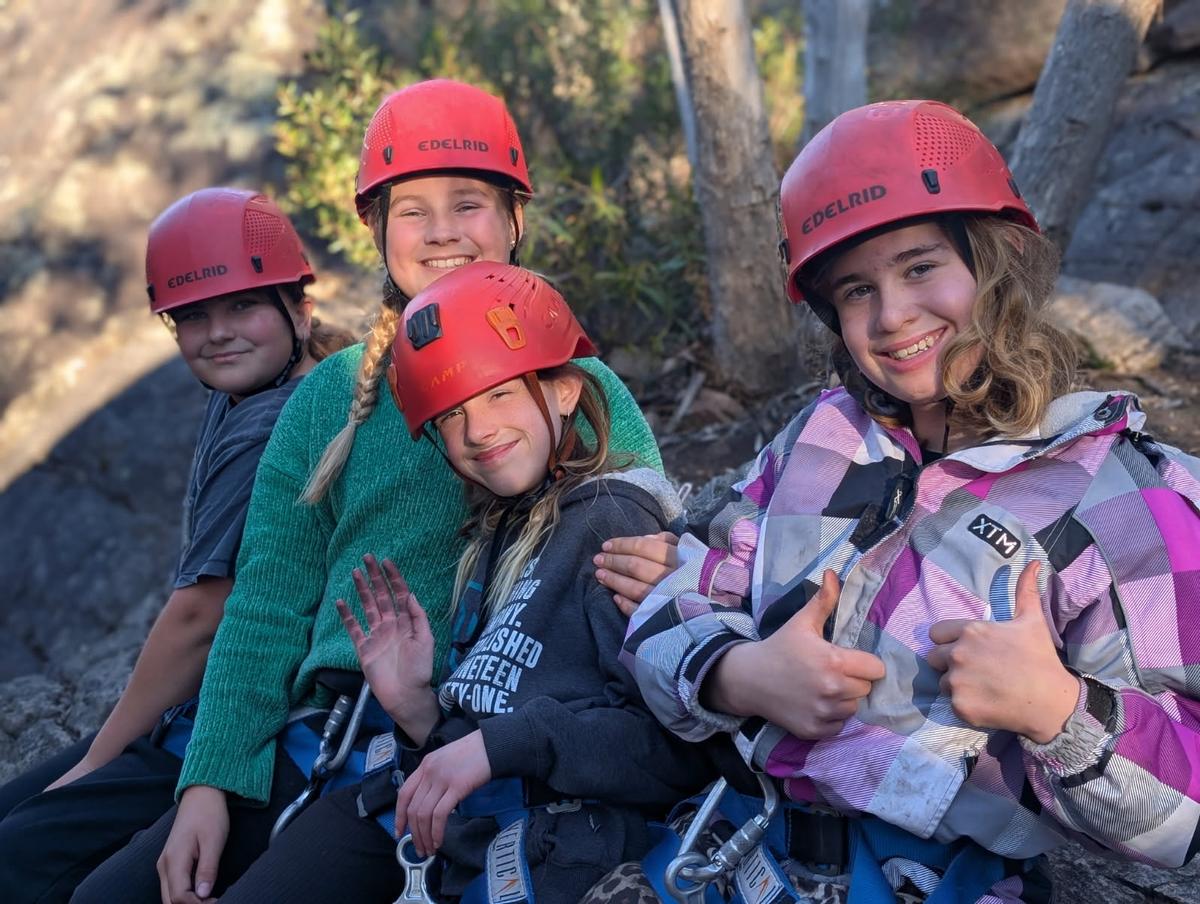
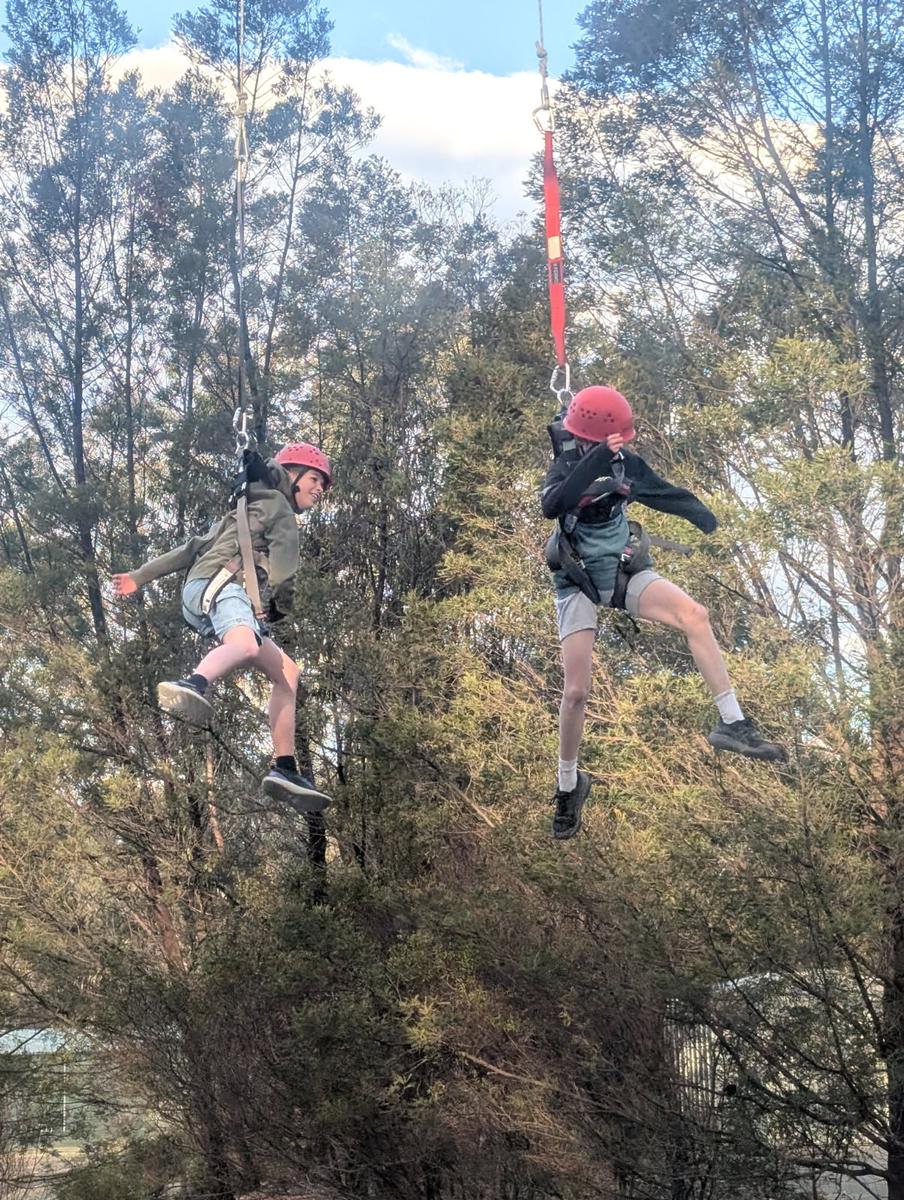







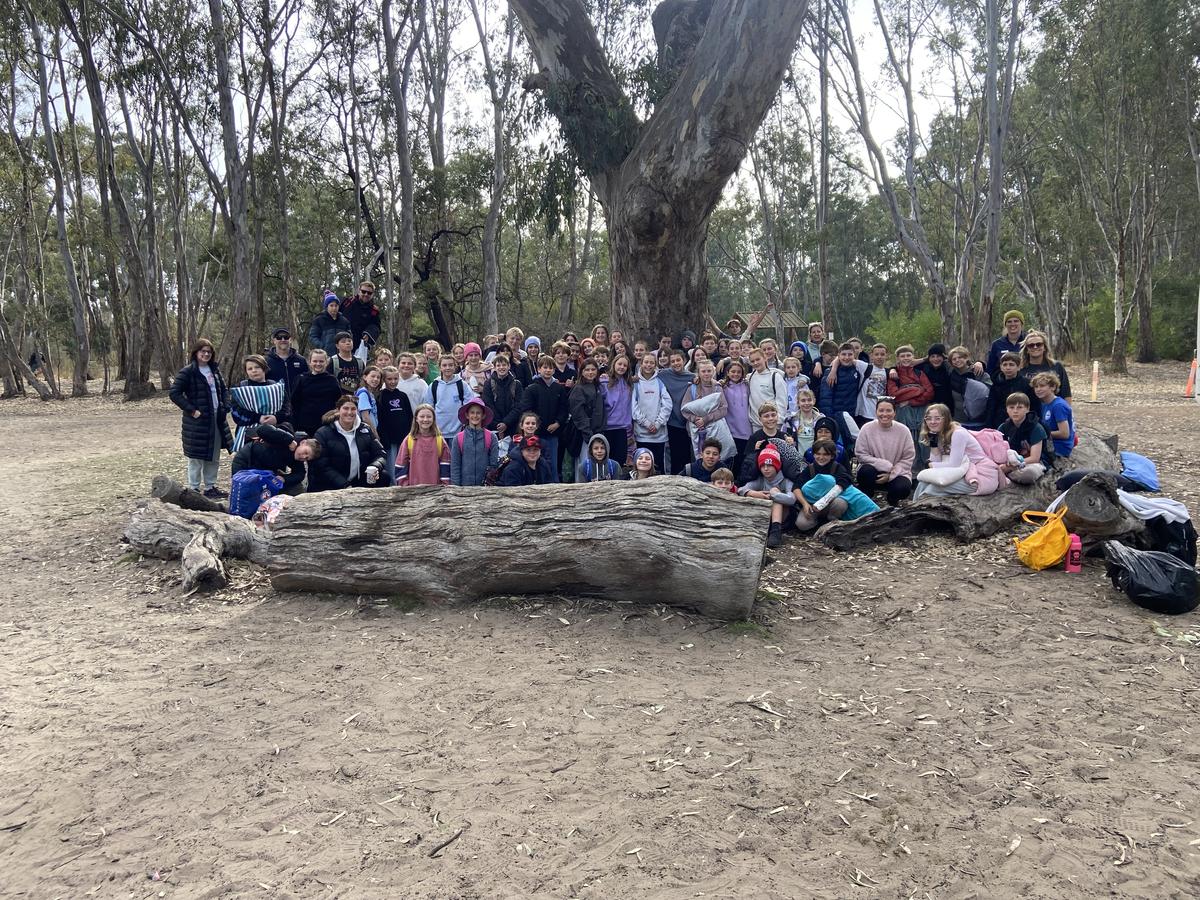

The conditions for the District Cross Country were pristine with plenty of sunshine for the students who had qualified for the Division Cross Country Championships at Eastern Gardens last Tuesday. However, the sunshine did not make the hilss and course any easier. The standard of competition was high and the Surfside students performed really well and supported each other throughout the day. A big thank you to Mr Baker, Ms Jones and the parent and carer support on the day.
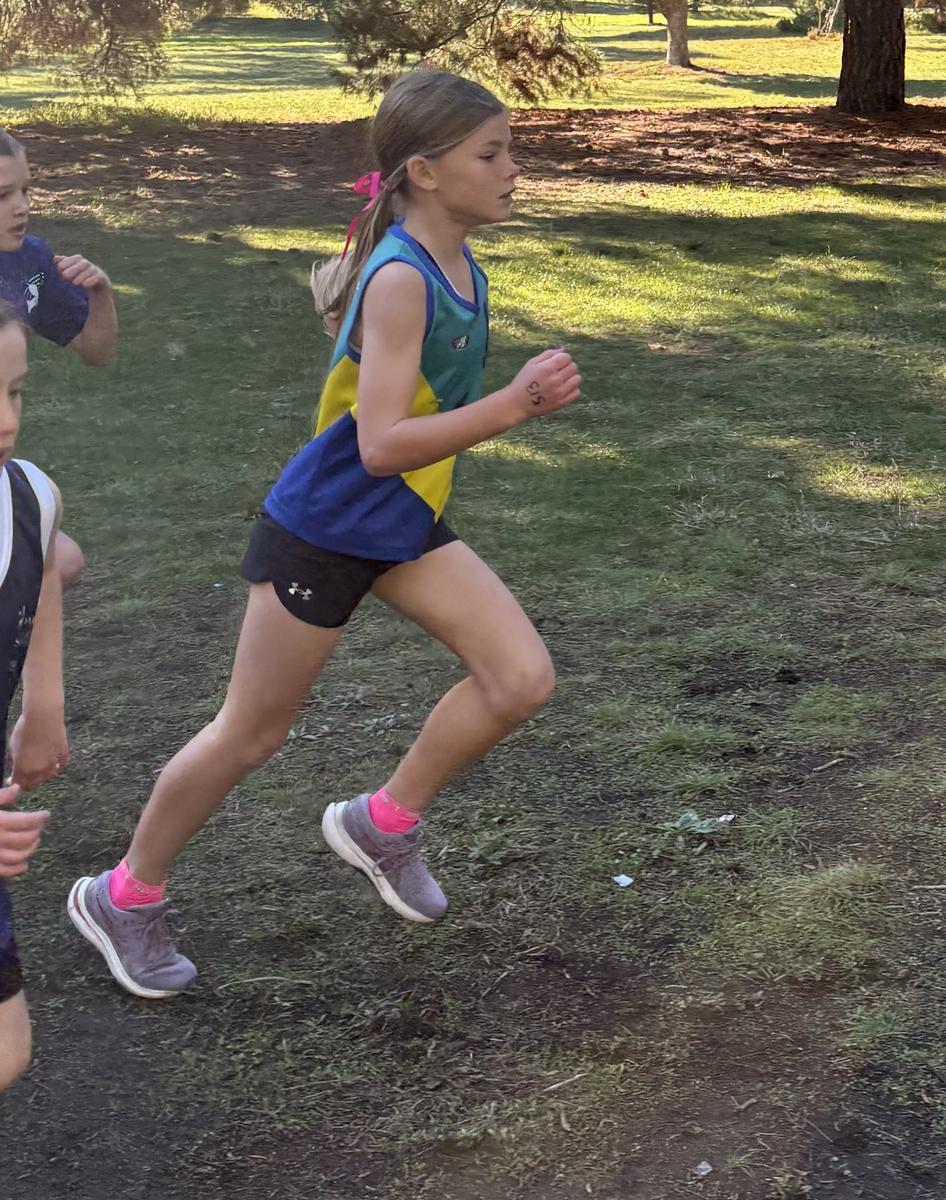
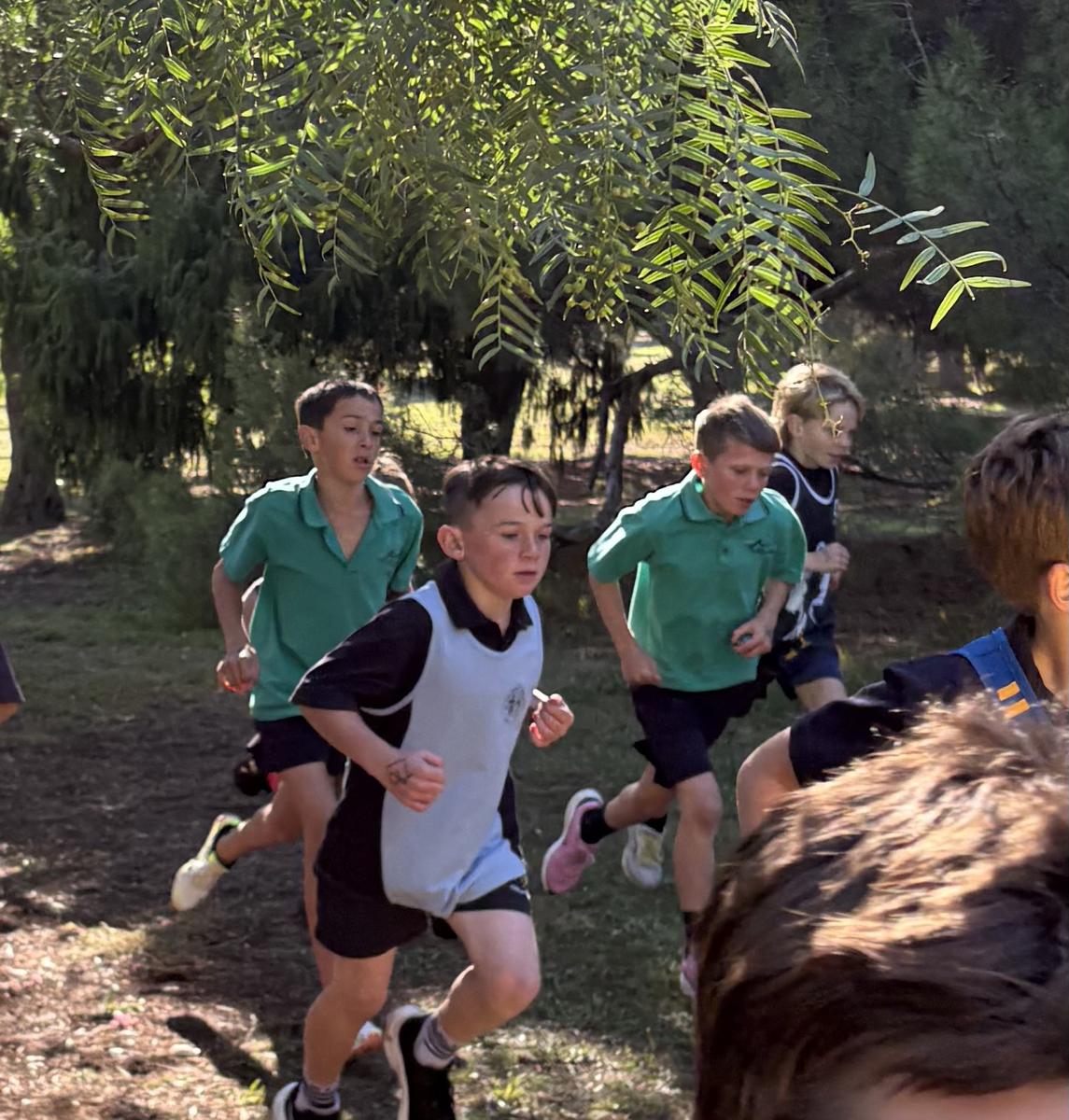
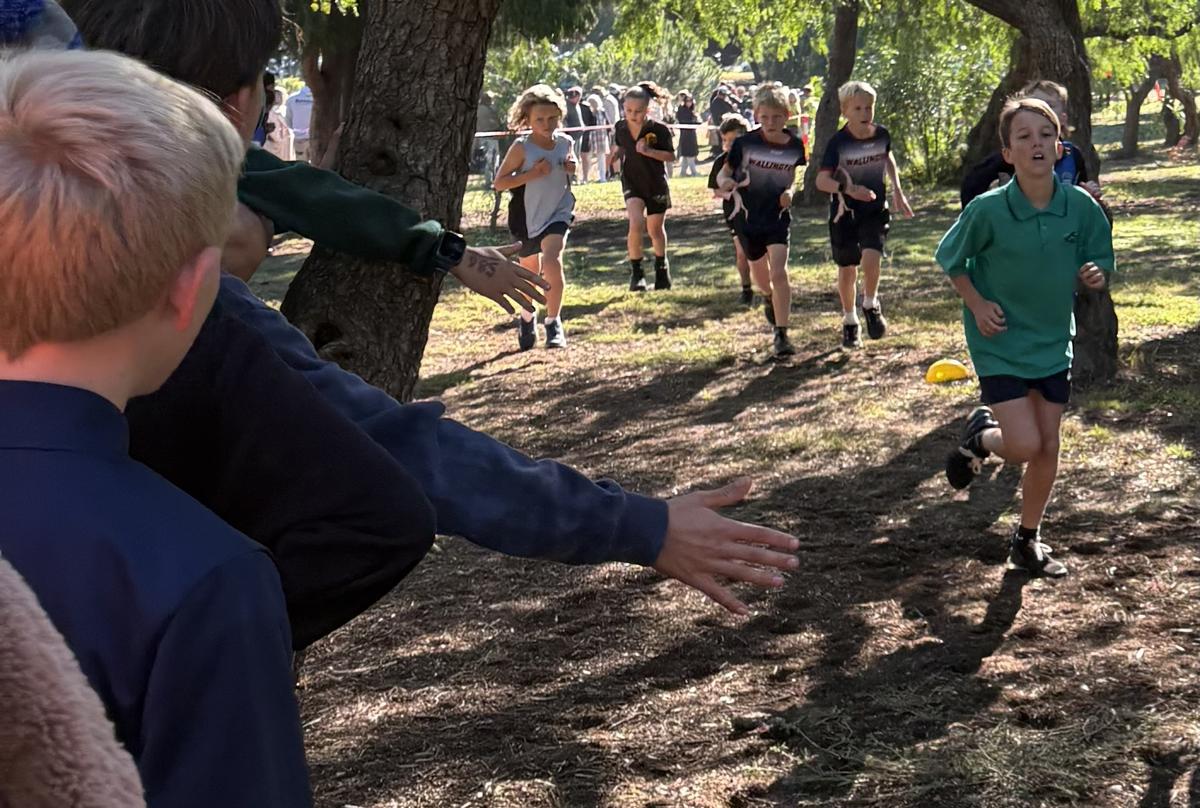
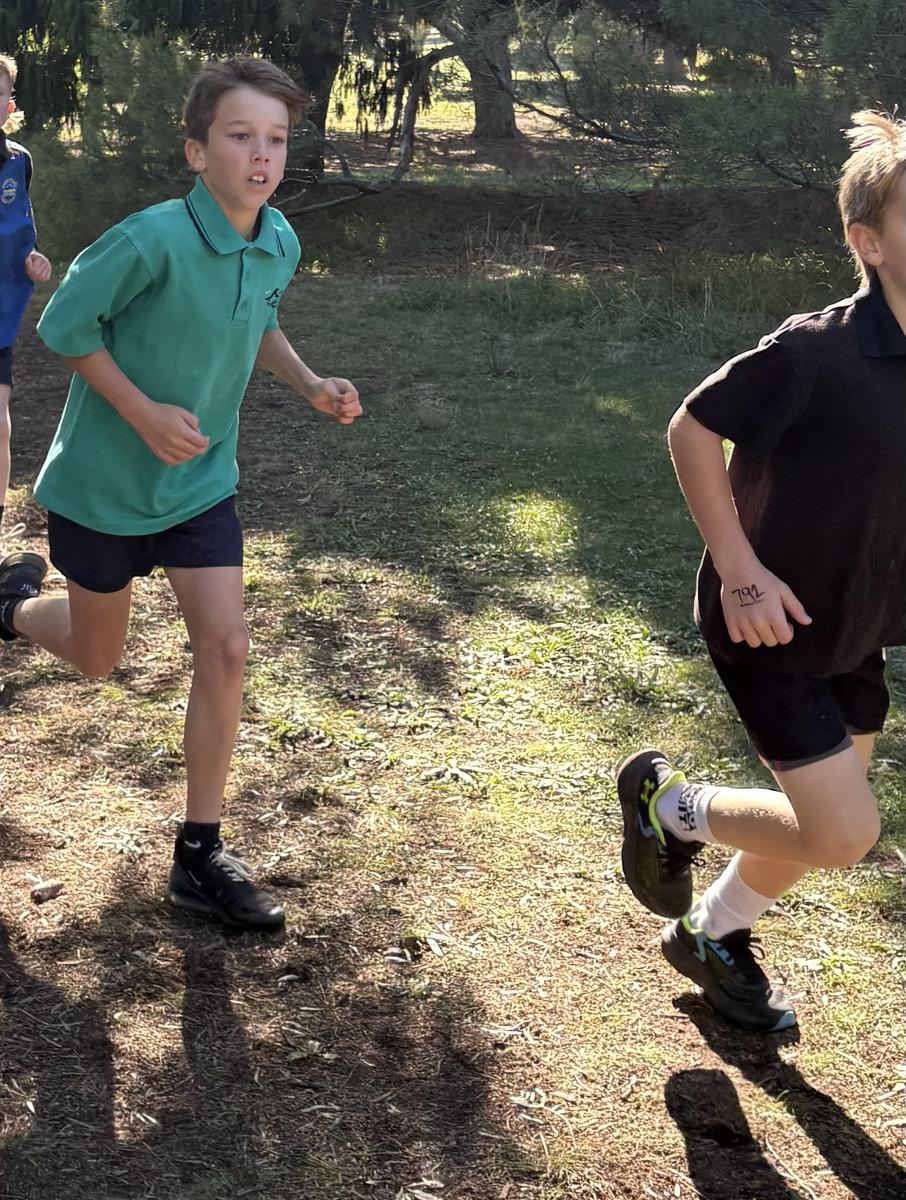
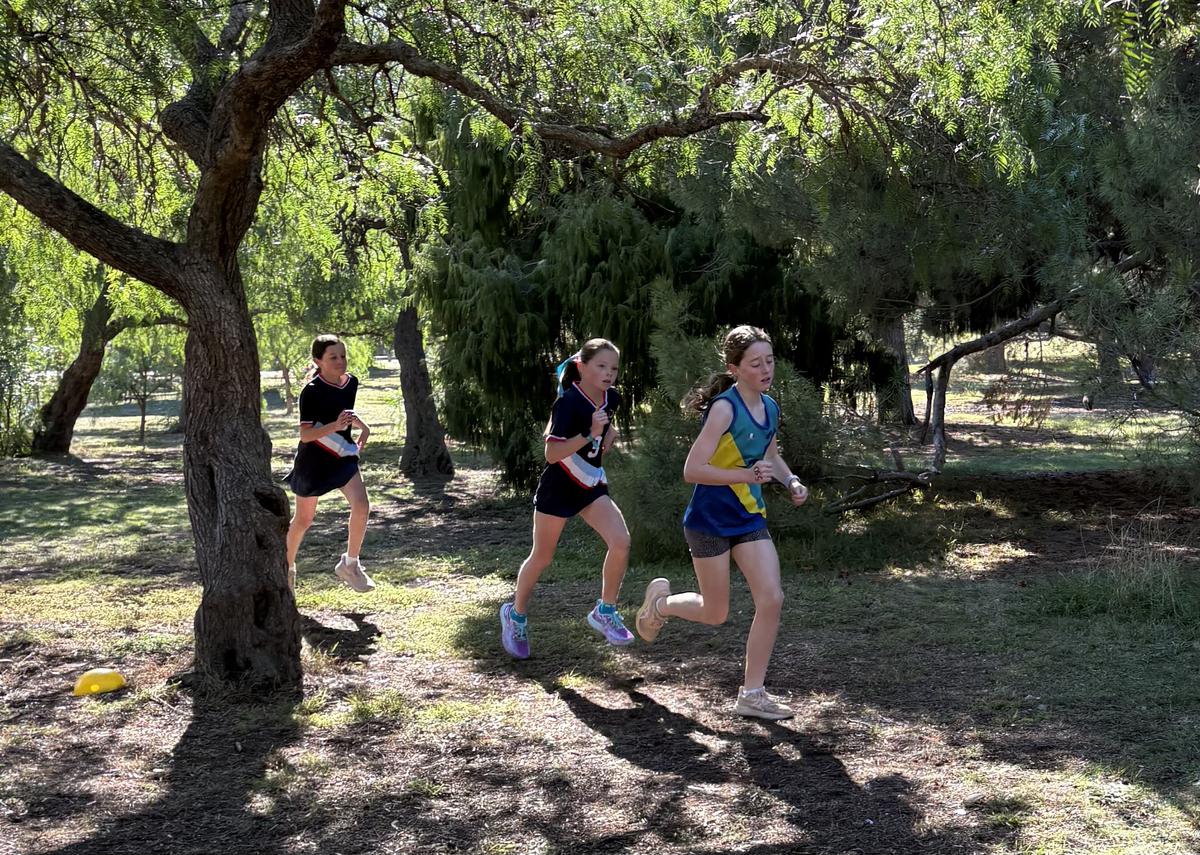
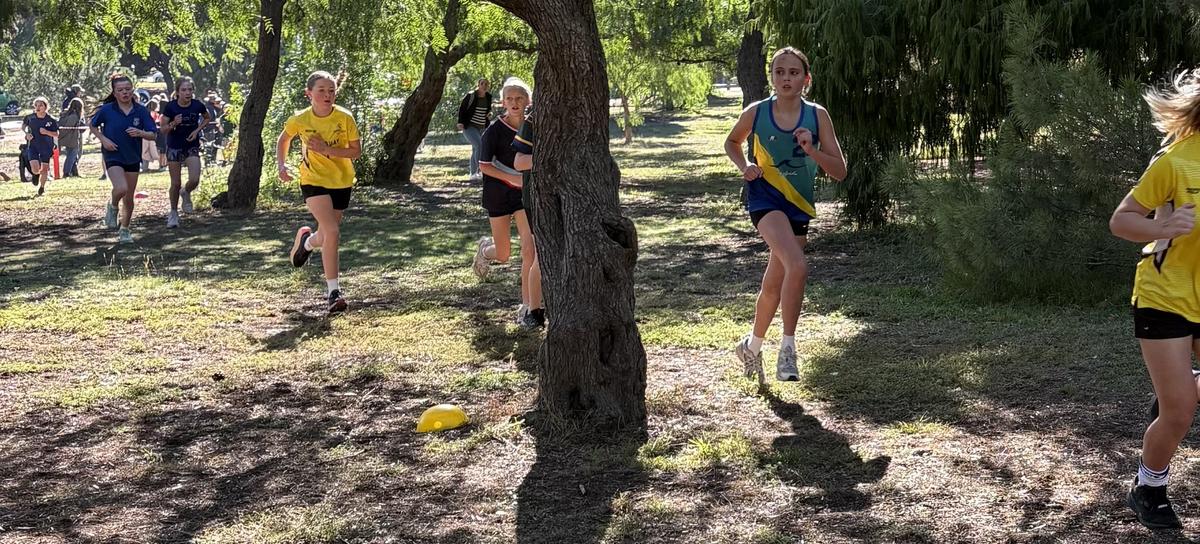
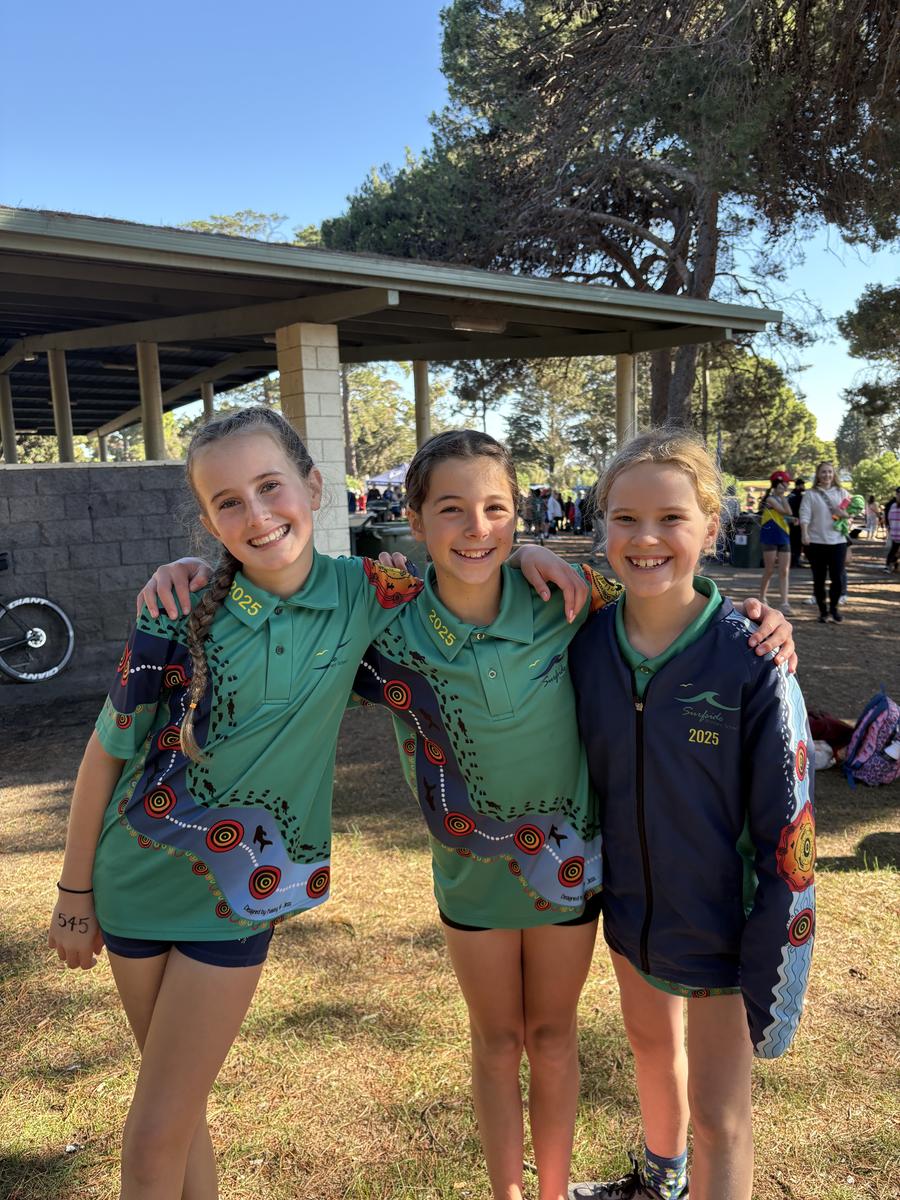
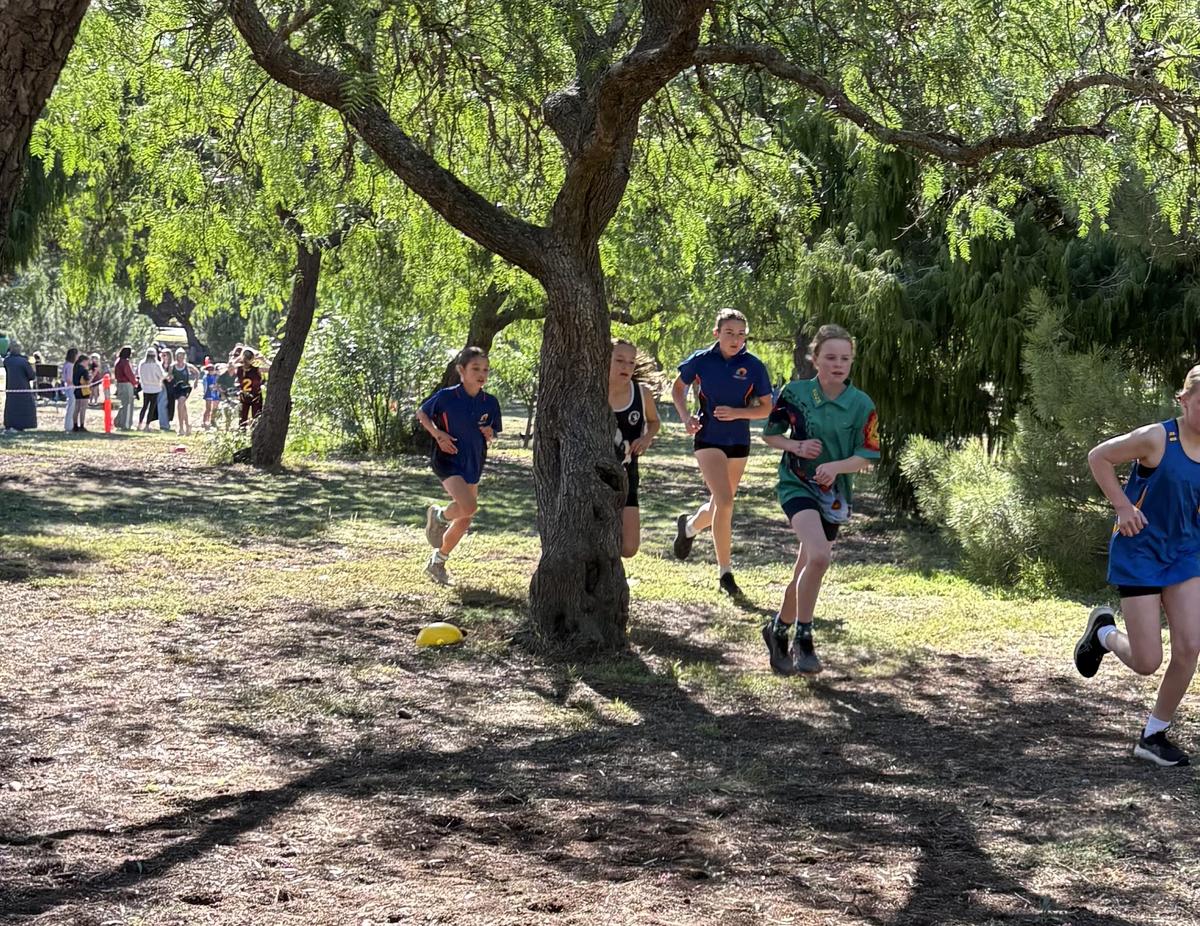
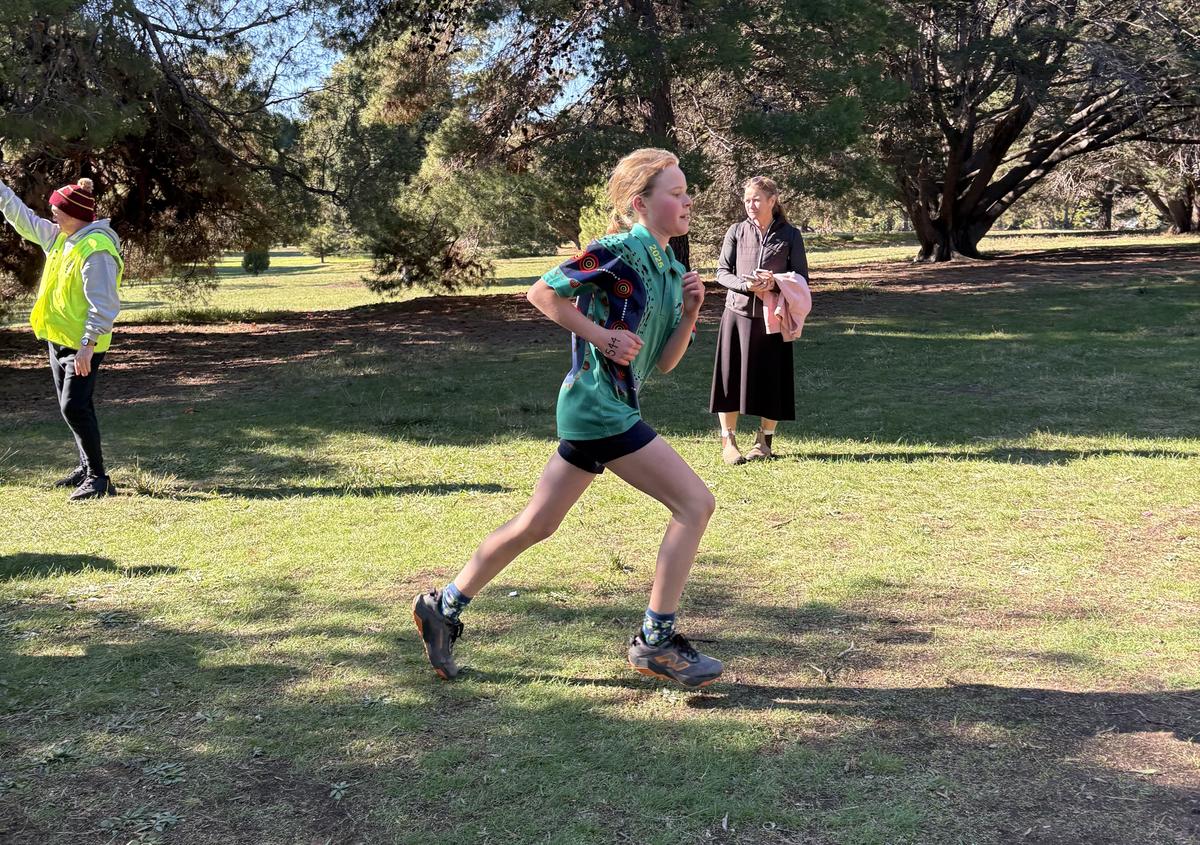
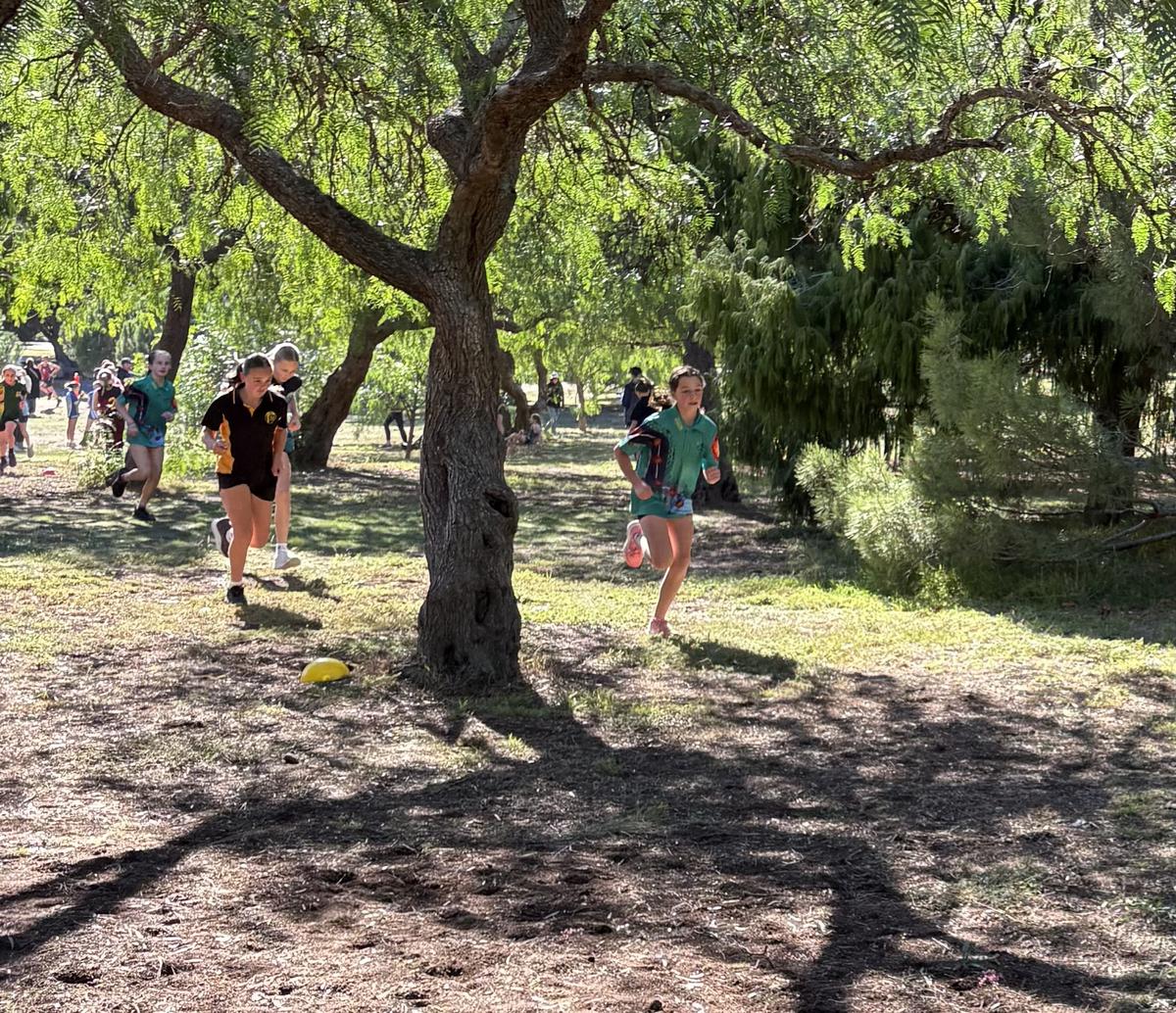
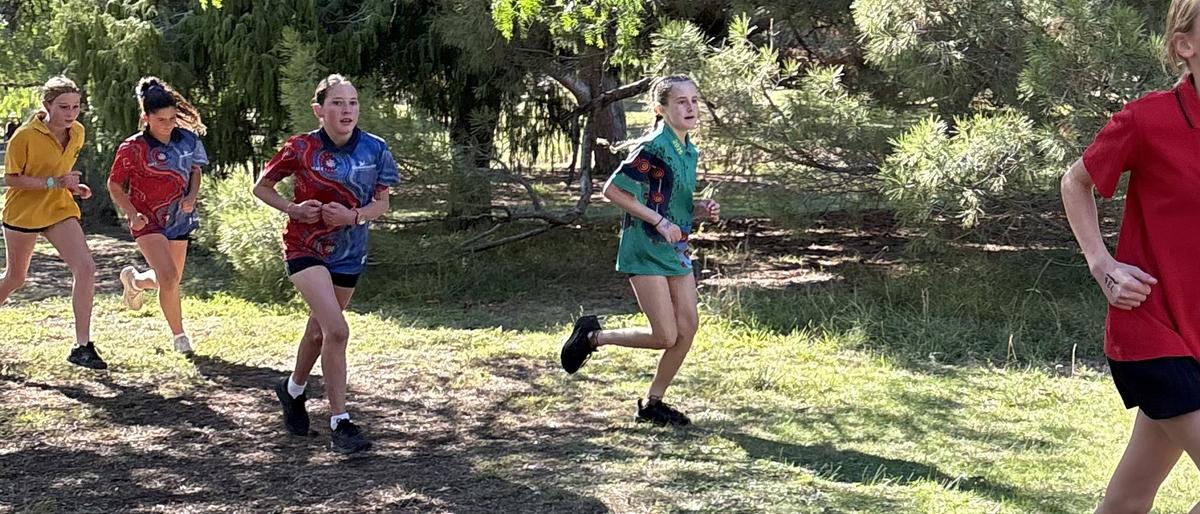











Our Year 3 students Lucy, Meg, Aj, Lani, Georgie, Willow, Forrest and Bella have been particpating in the Intergenerational Project at Ryman Deborah Cheetham Retirement Village. They have had the opportunity to meet with seniors at the village and particpate in activities each week to promote movement, connection and a sense of fun as they build relationships with seniors from within the village.
This week the students had a guessing game where they wrote clues about a secret object inside a paper bag. They then shared the clues and they had to work together to guess what it was. They also had to hunt for puzzle pieces and work together with the seniors to find the pieces and put them together. One of the seniors made a scarf for the students, which was a welcome gift. We also learned that some seniors travelled on horses to school in the past! We look forward to continuing to connect with seniors at the village. A big thank you to Gill and the staff who have supported this amazing community project.
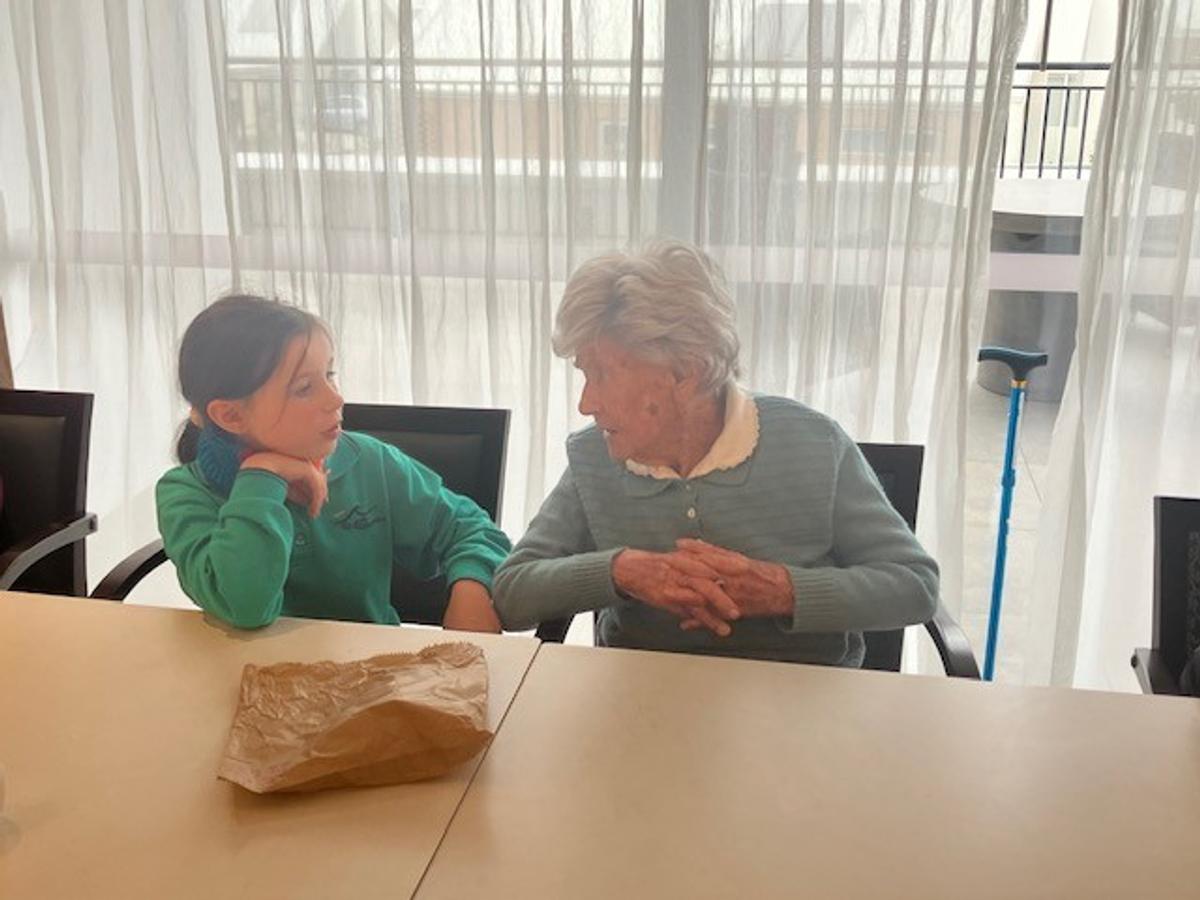
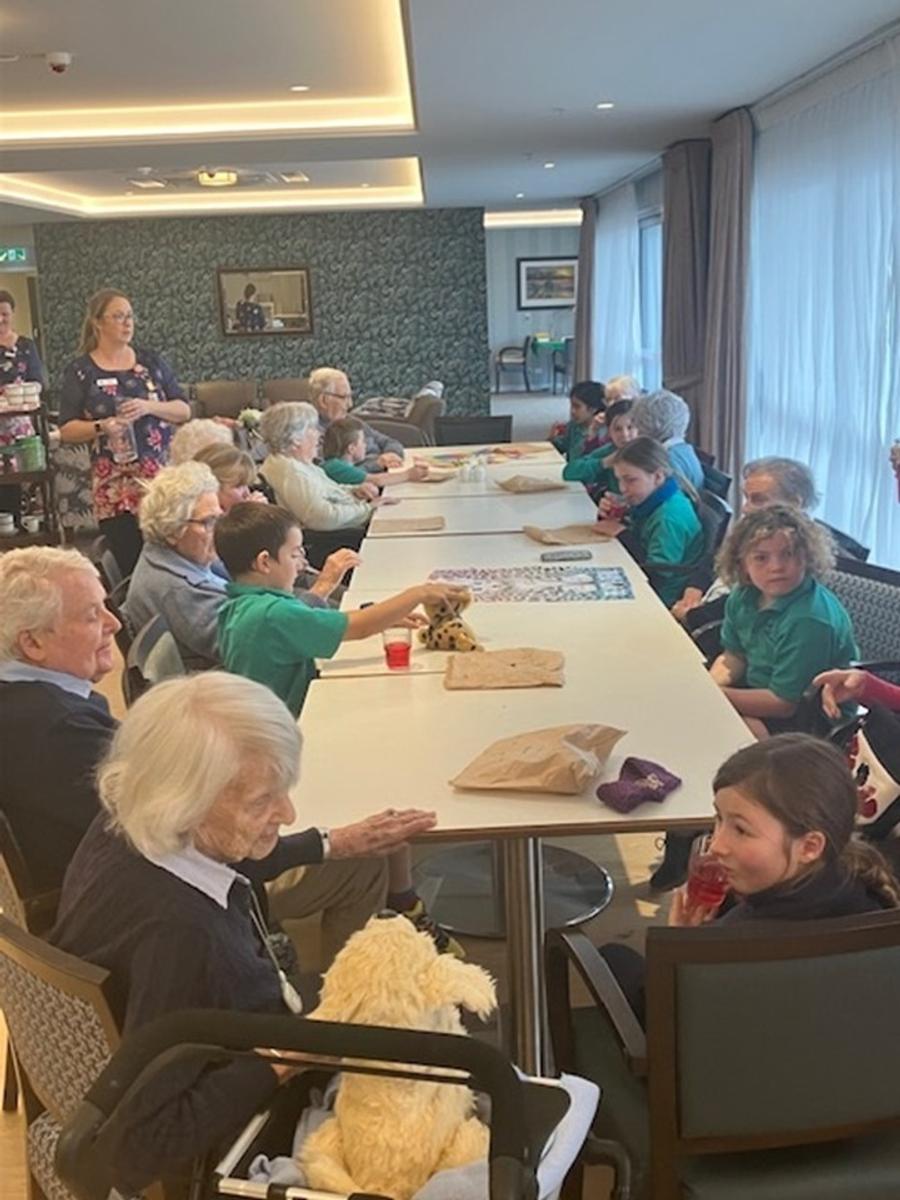
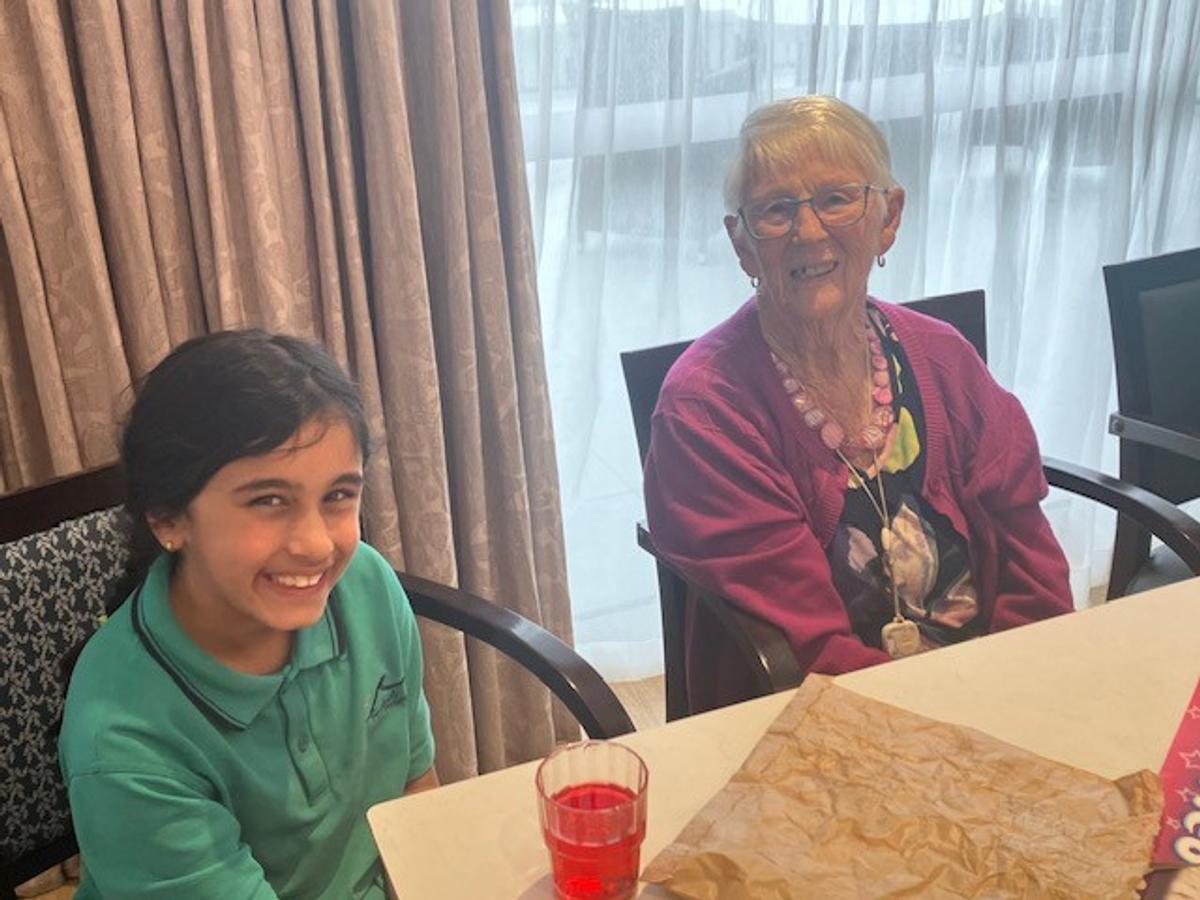
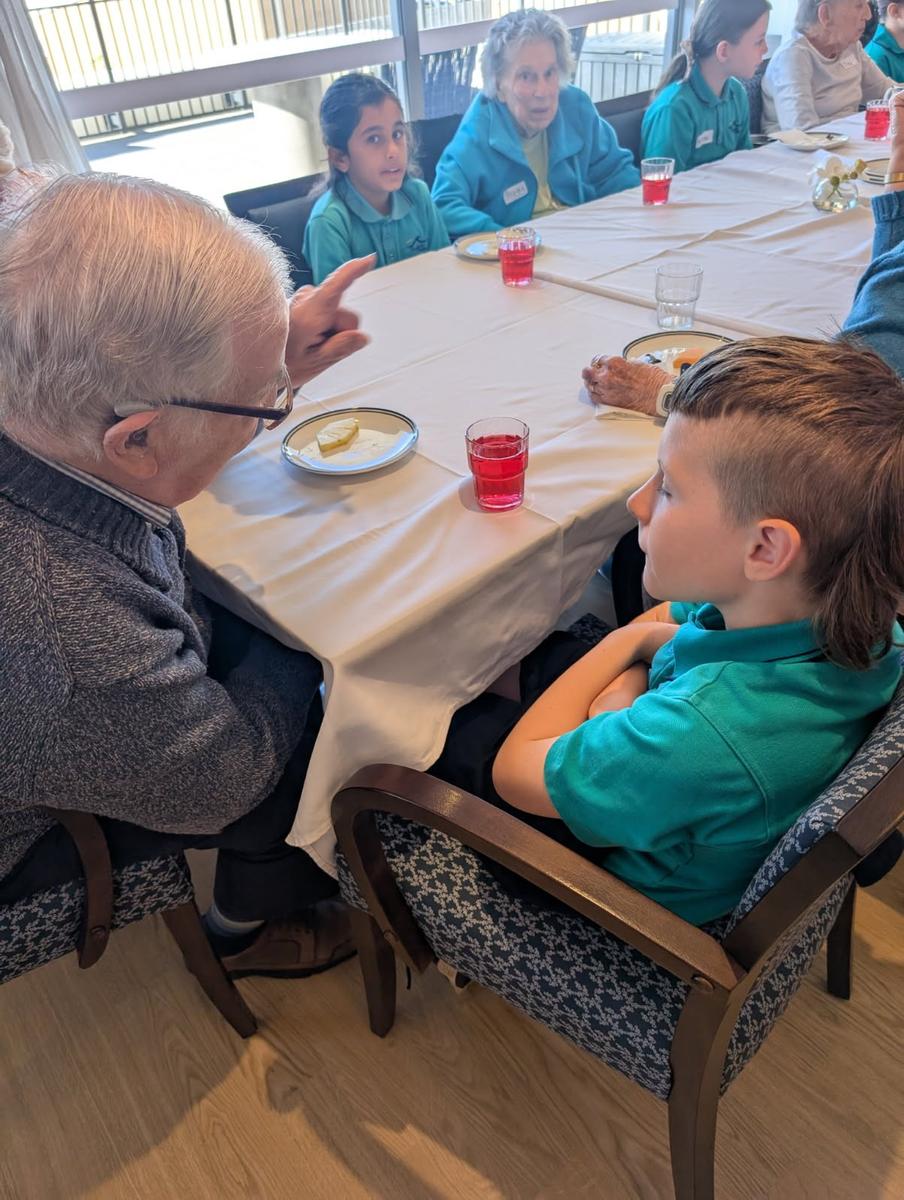
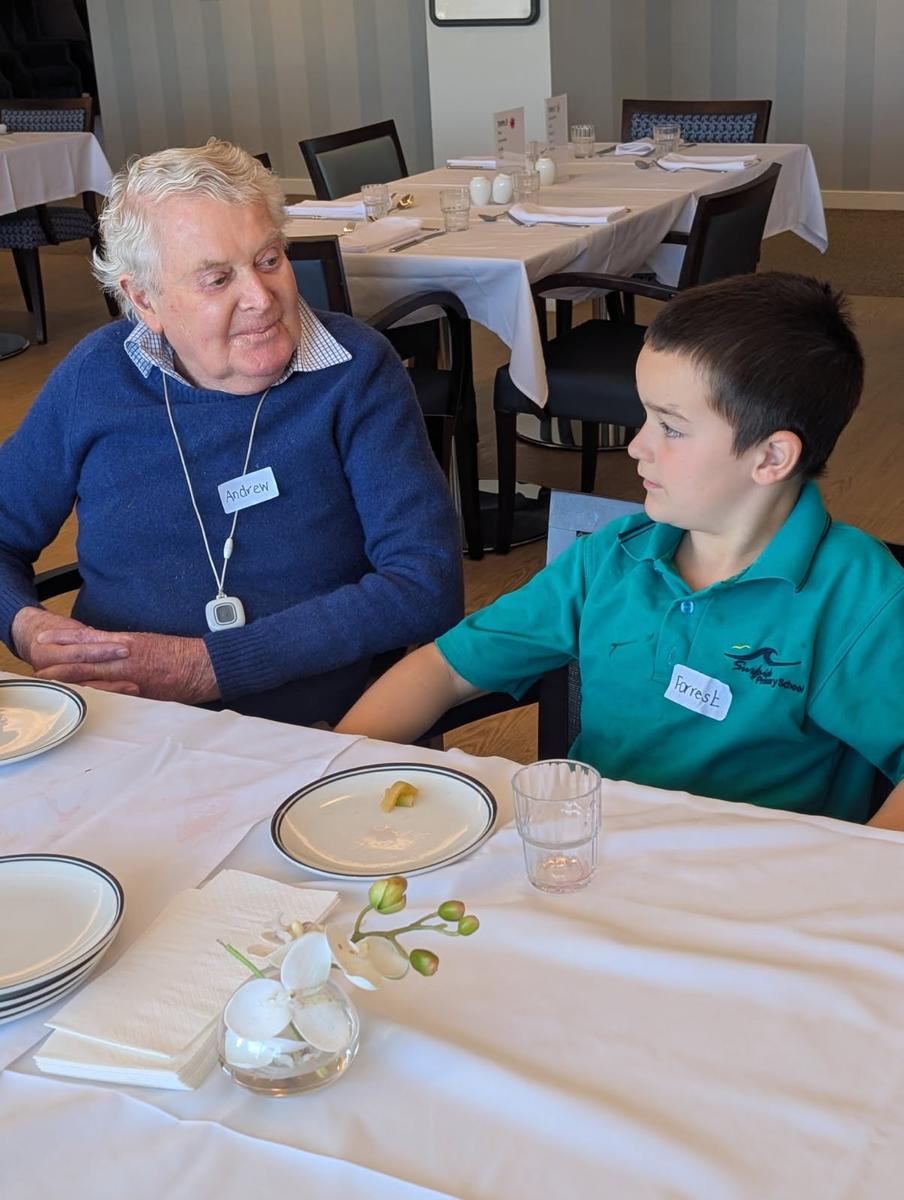
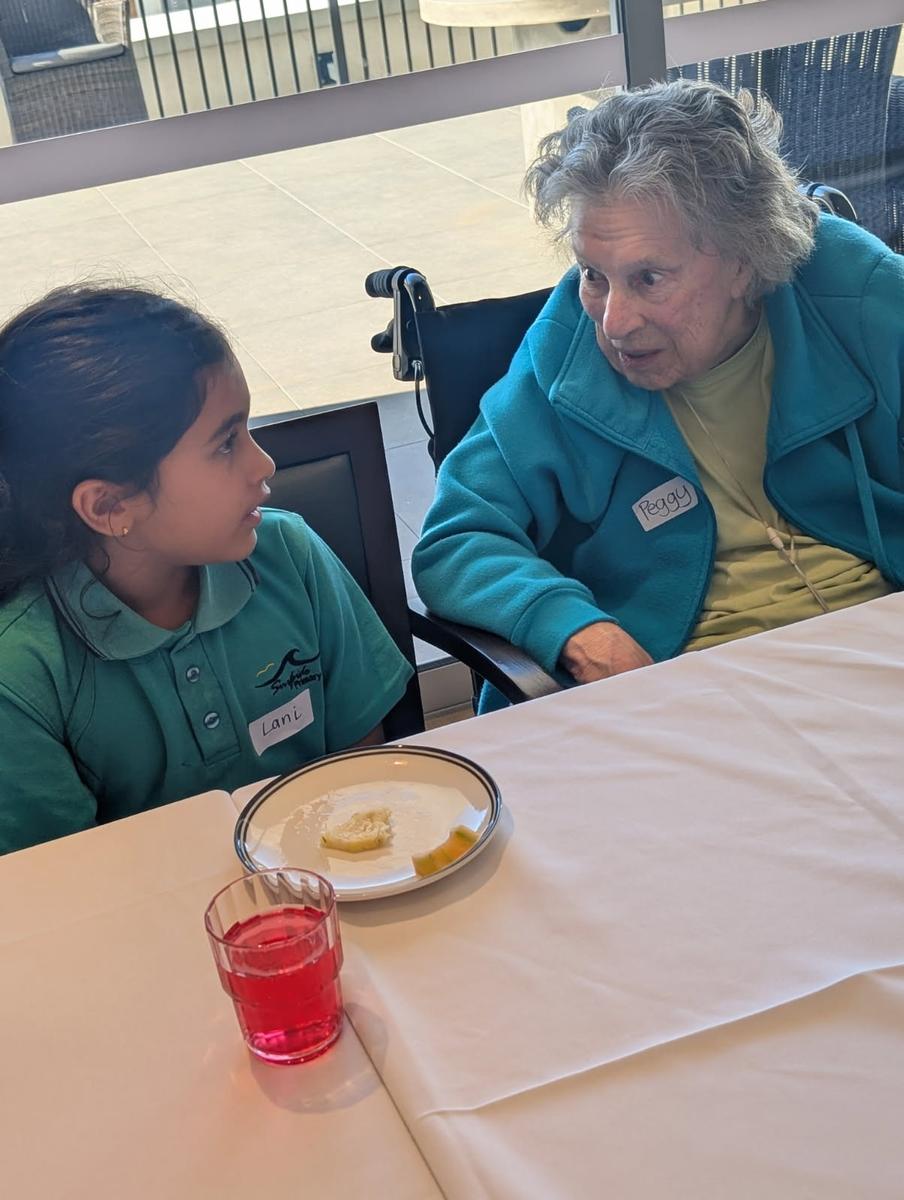
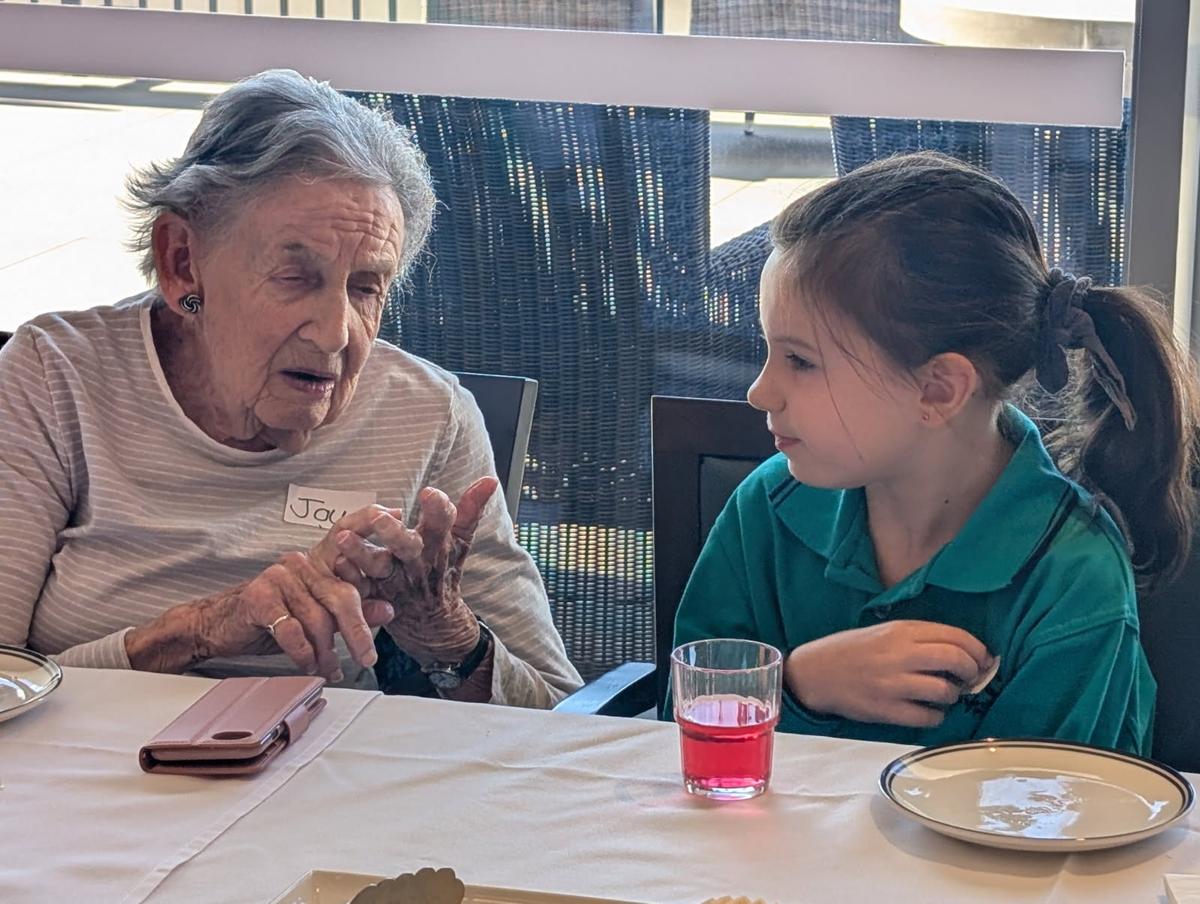







Our school council met on Tuesday to undertake our May meeting. Some of the highlights included the following:
Our school council look forward to our next meeting which will be held on Tuesday 17th June: